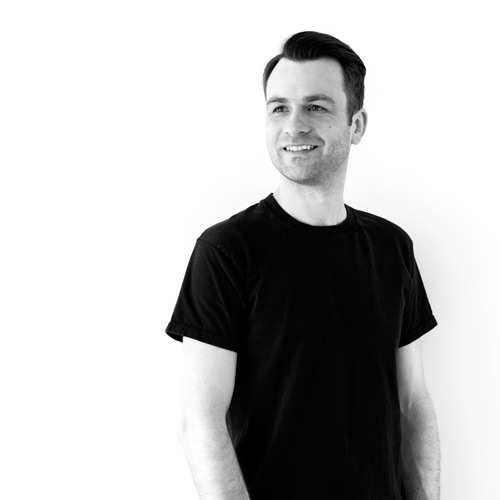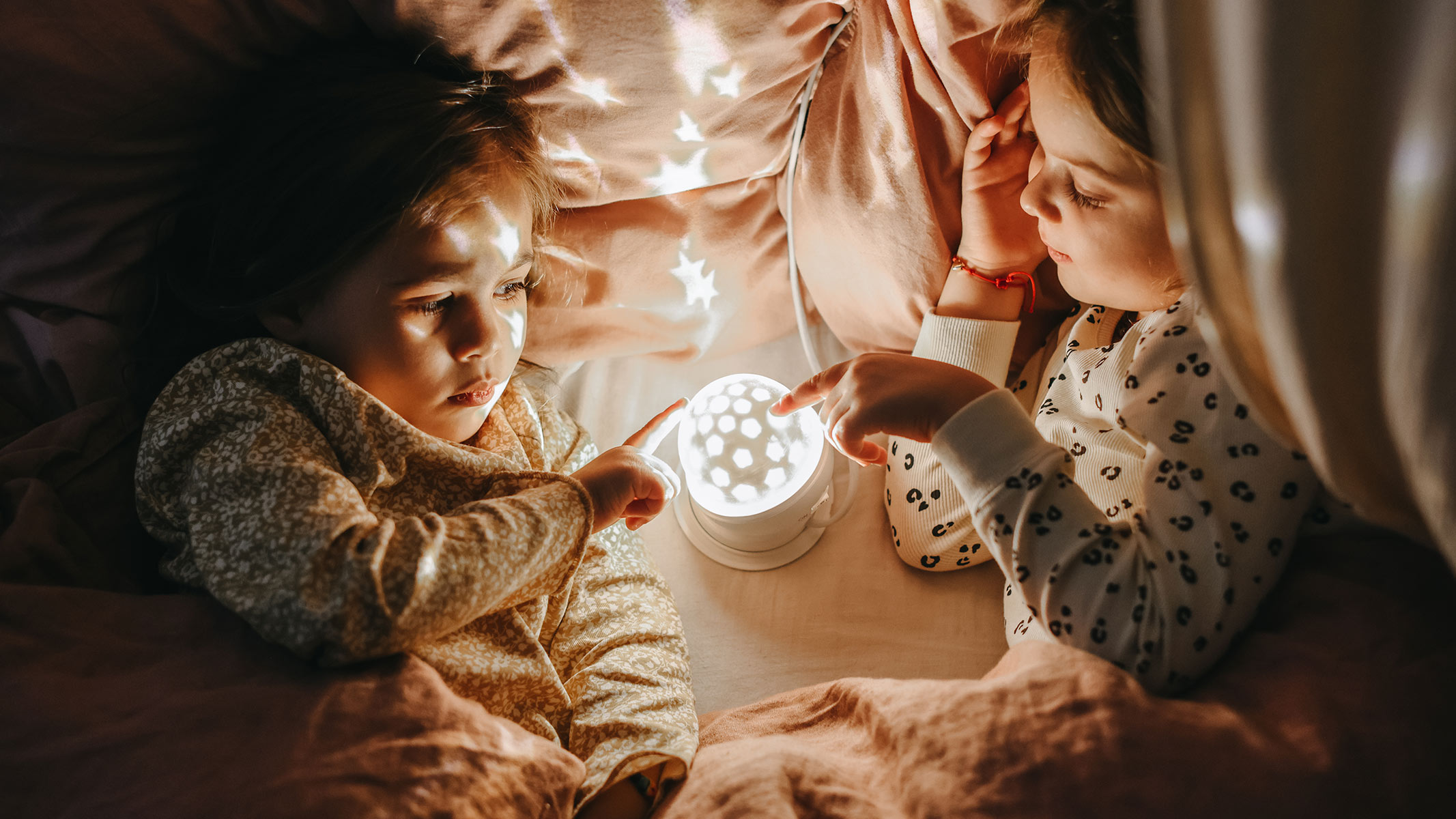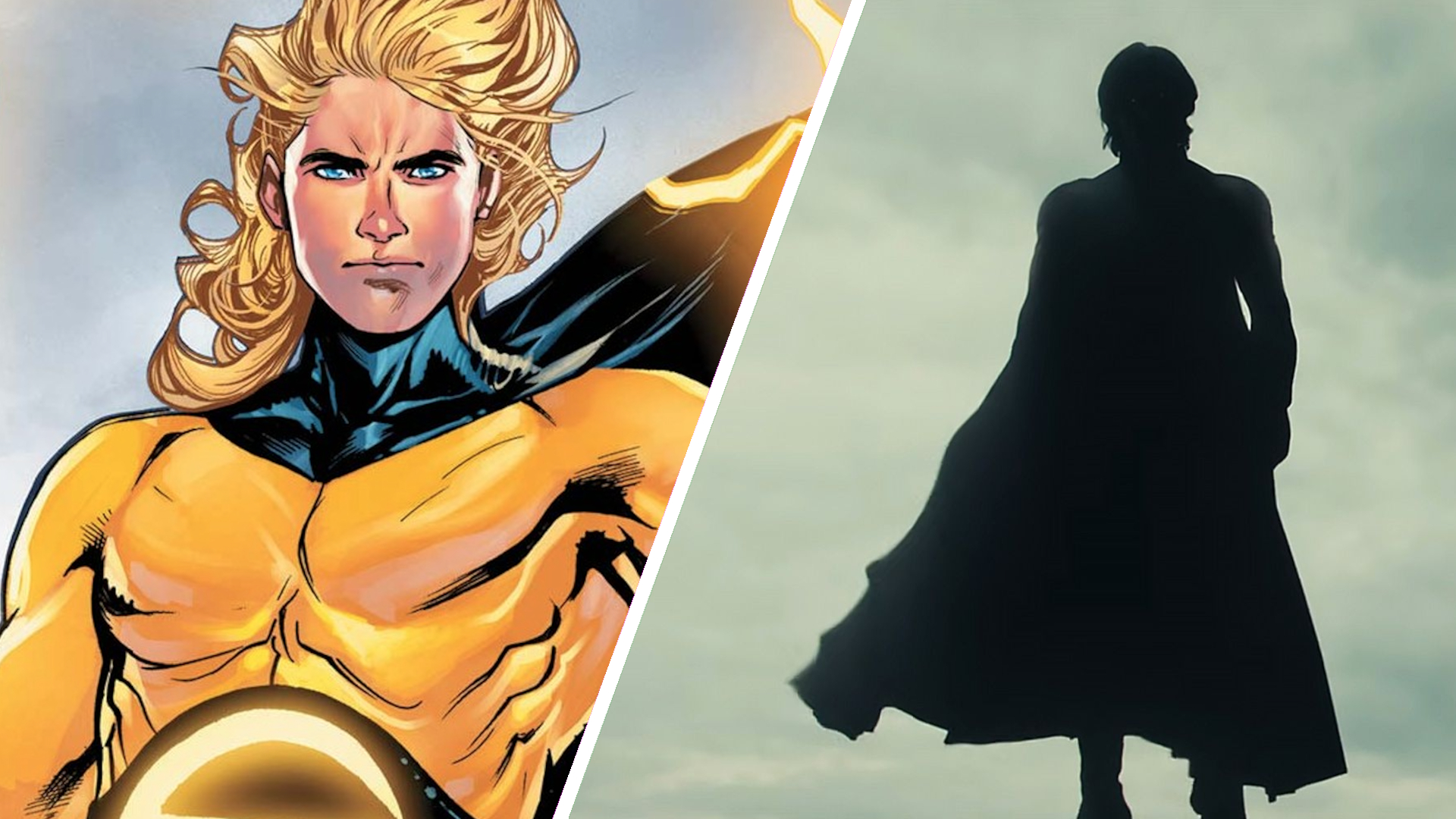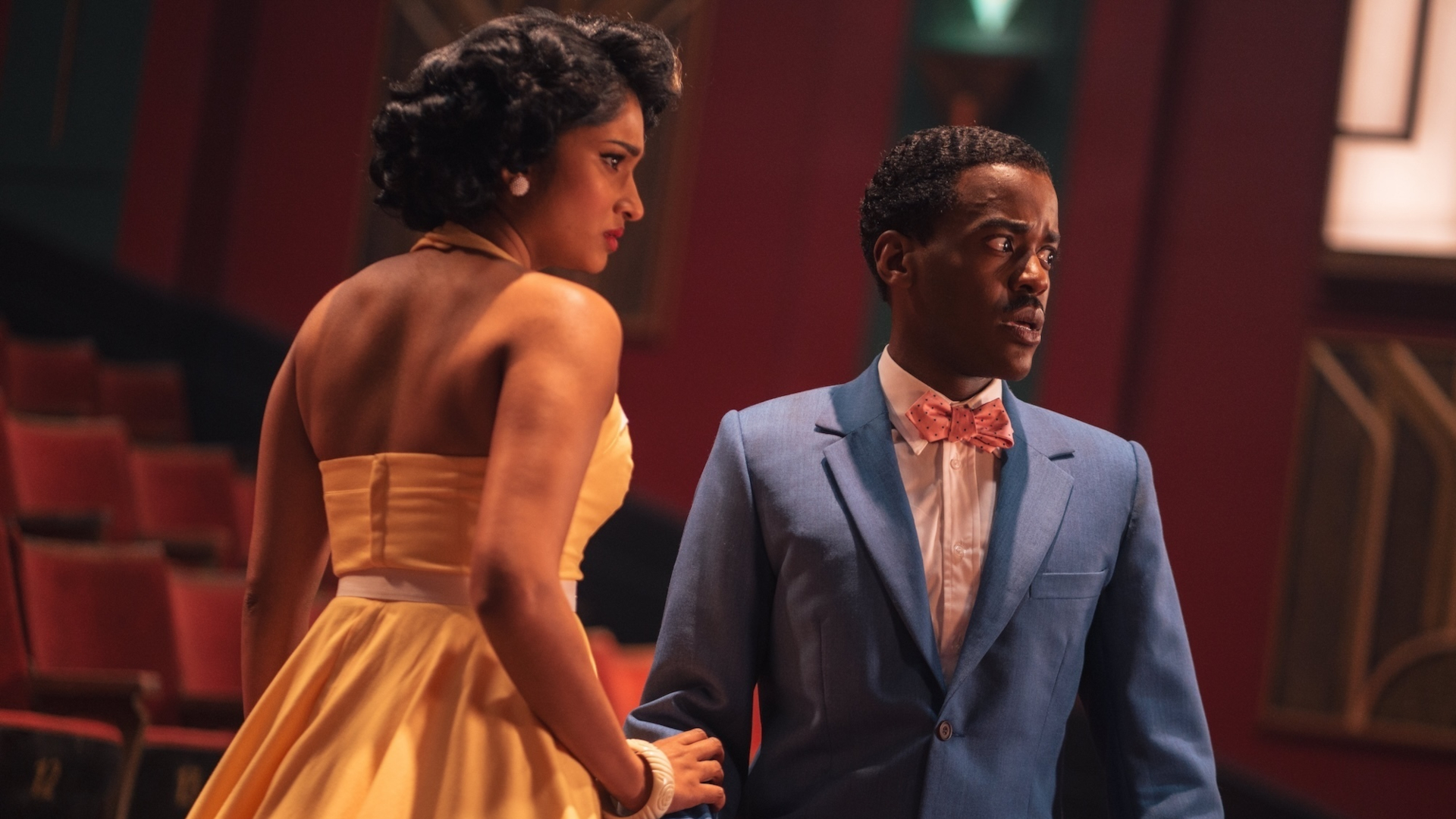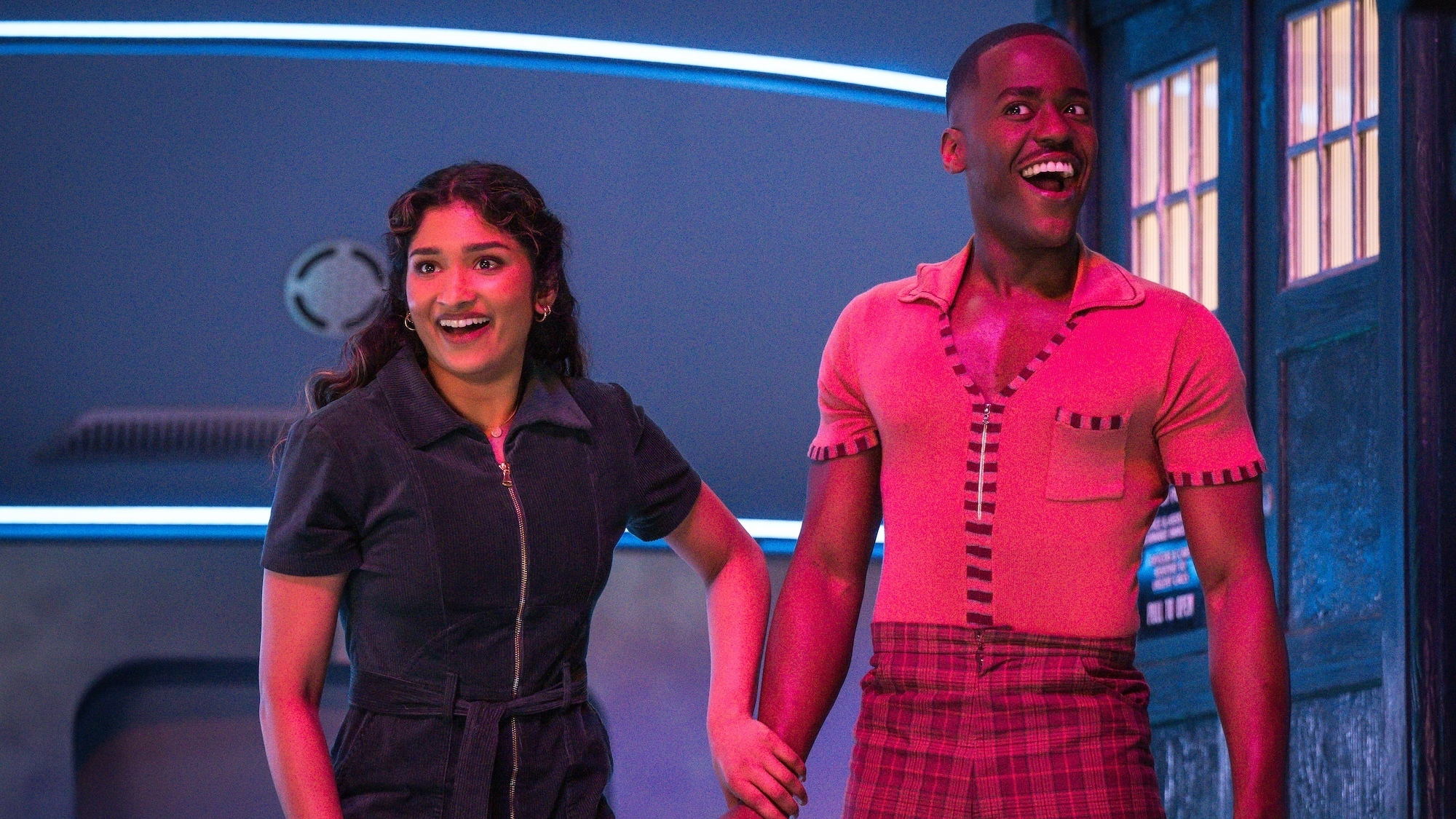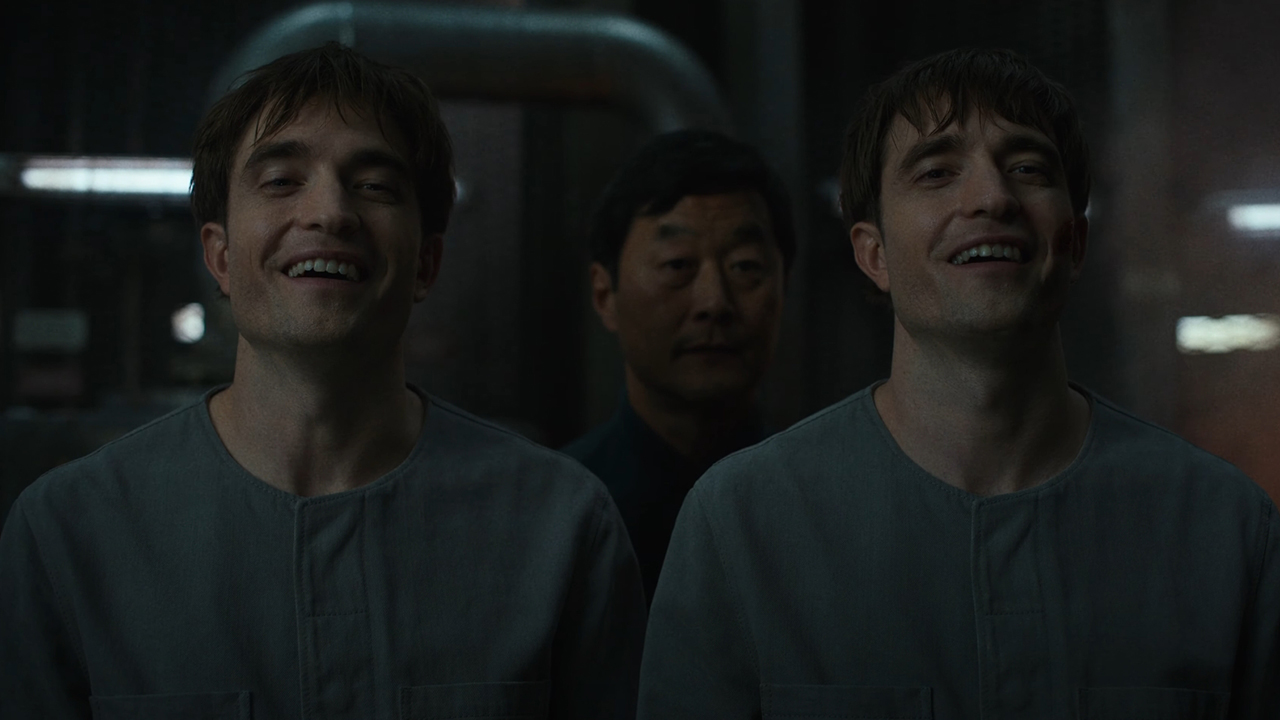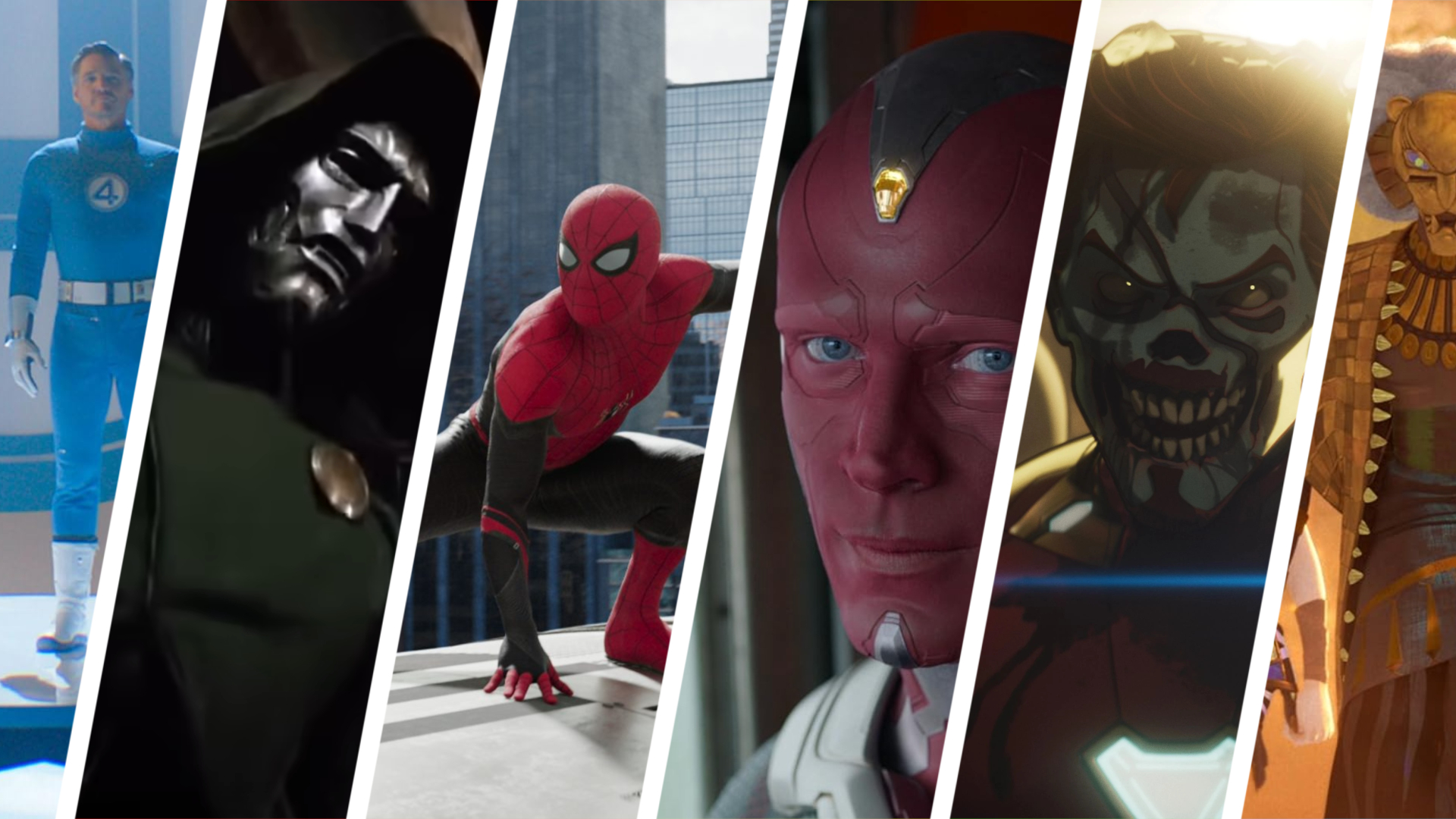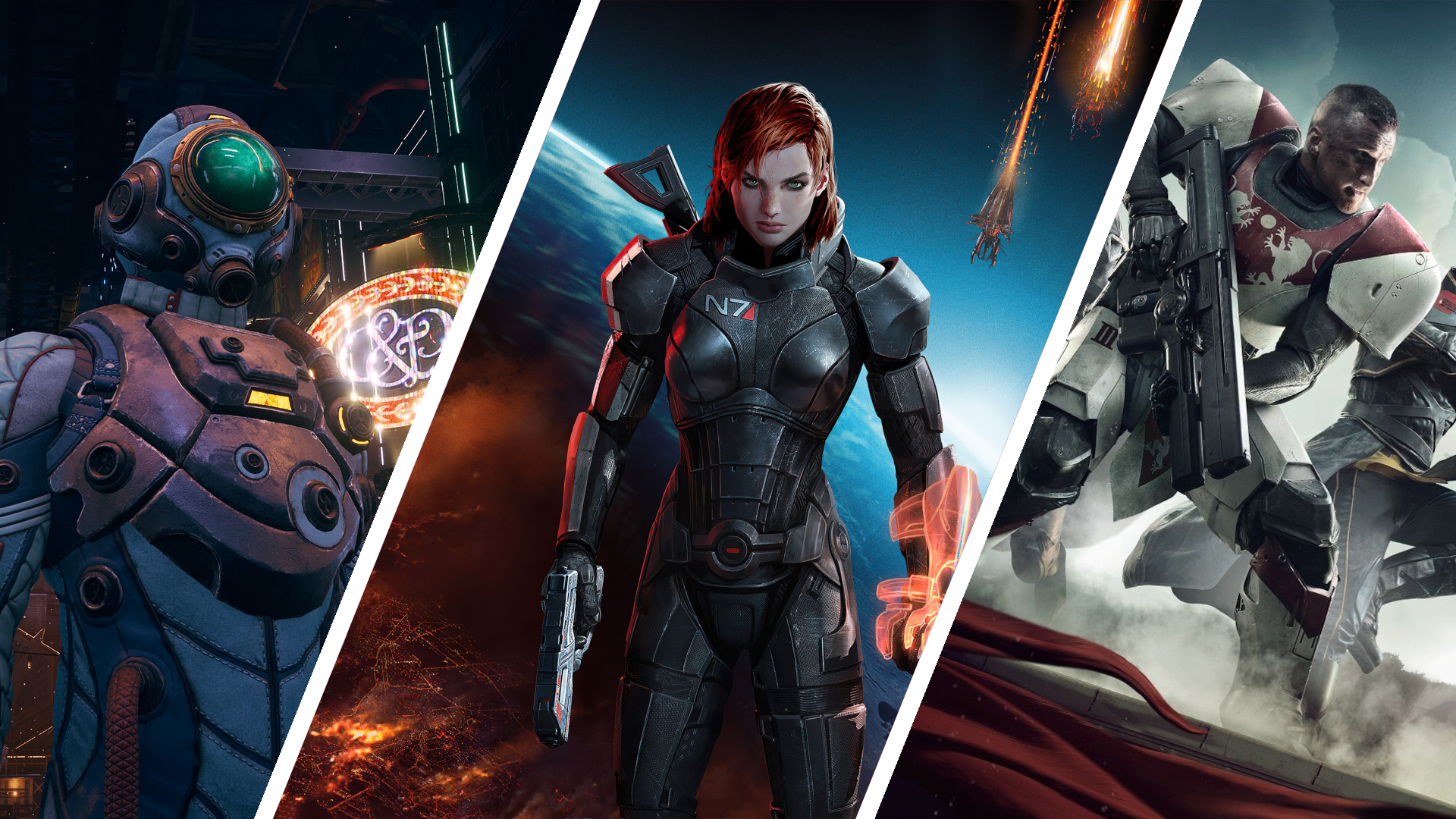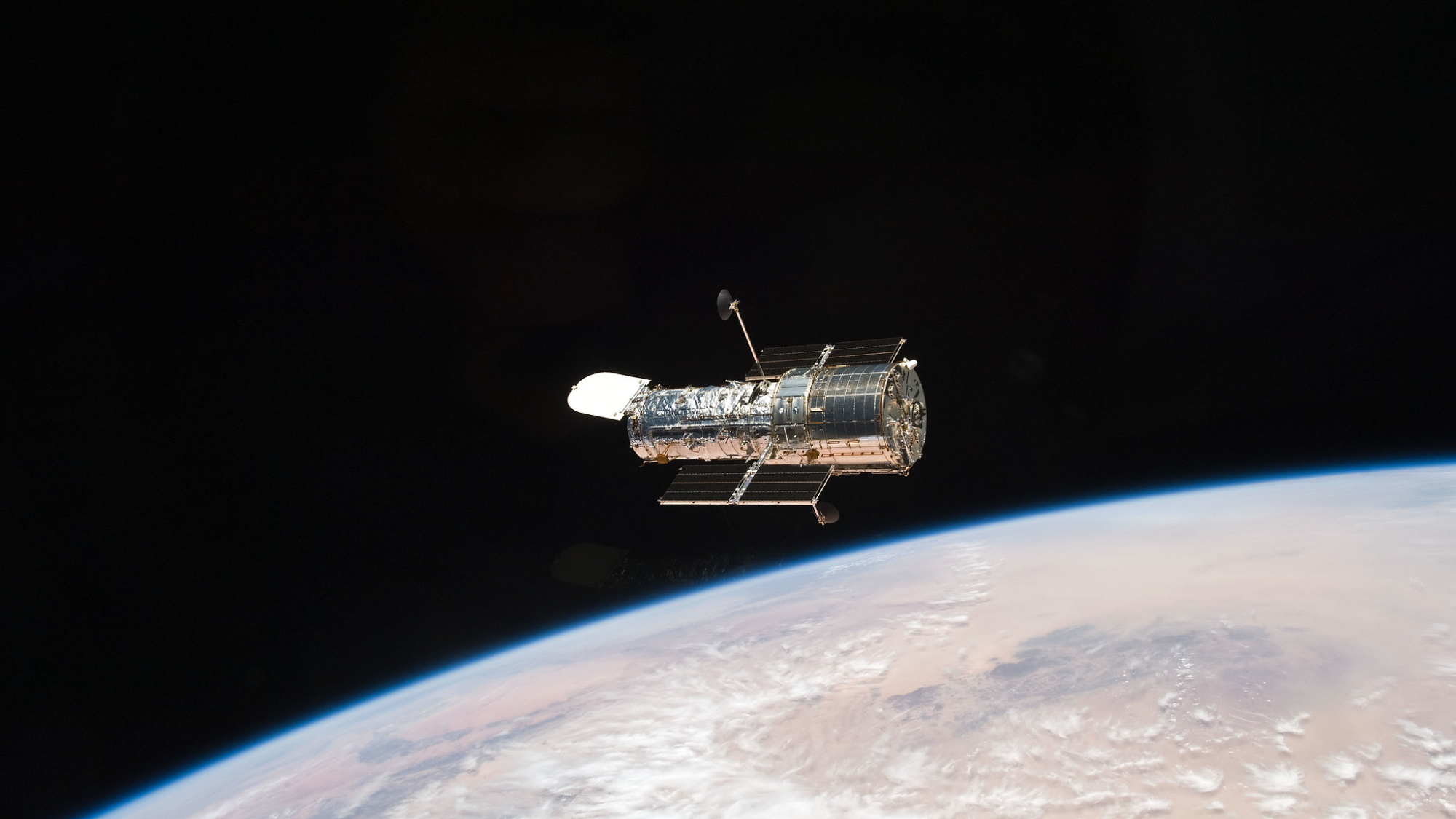Best FPV drones 2025: Enjoy immersive drone flight
The best FPV drones offer the most immersive flying experience and we've rounded up the top models across a range of brands and price points.
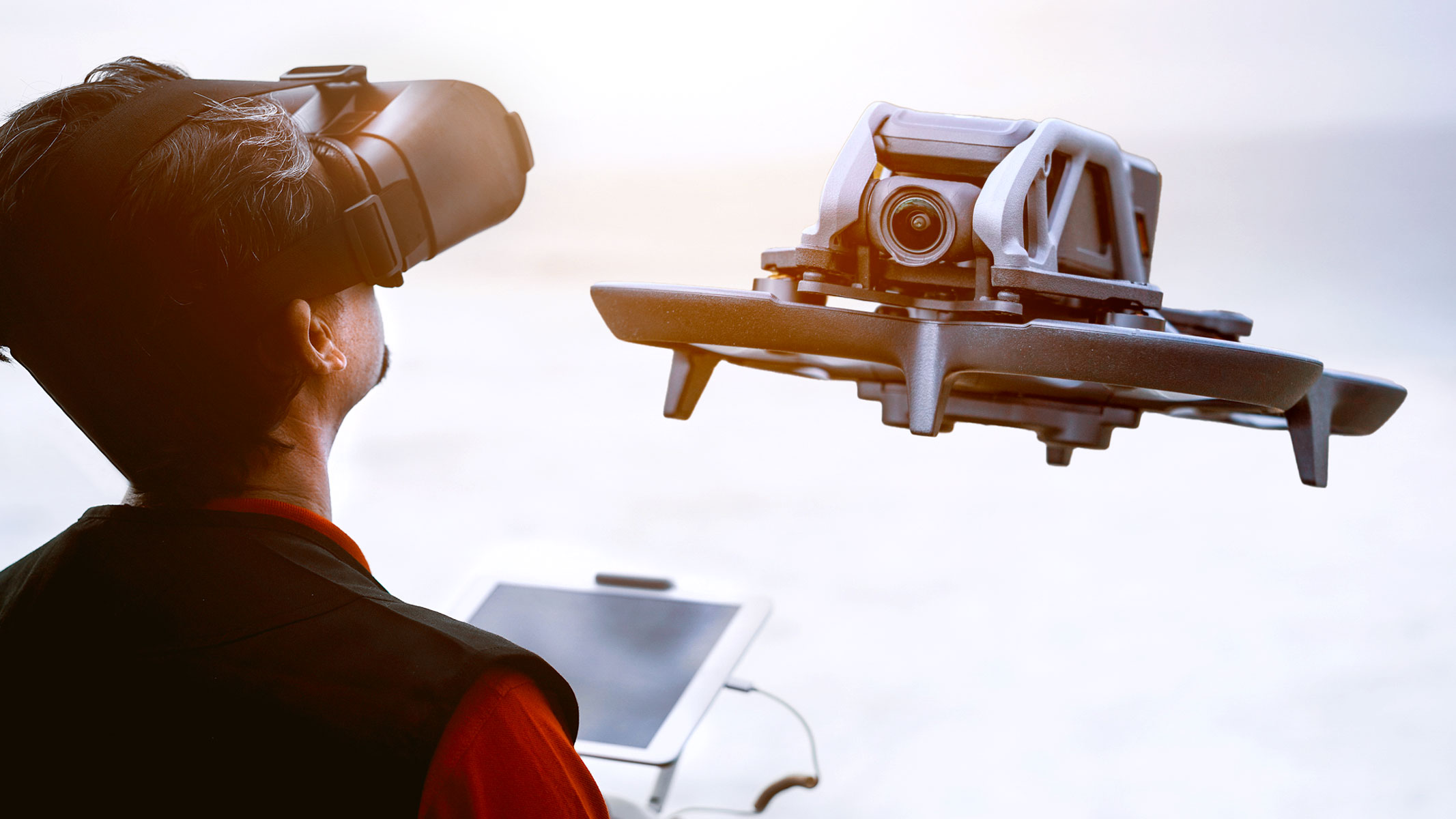
Here is our comprehensive round-up of the best FPV drones on the market. FPV drones — or First Person View Drones — offer you a view from onboard the drone, an immersive experience most drones don't offer.
Typically, this will mean the drones in this guide come with goggles that offer a true perspective of the drone's flight so you don't rely on a screen and a live feed. However, this does mean that controls can seem a little more complicated and the experience is different to what you might be used to. This does mean that once you're used to the setup though, flight time can be a lot more fun.
If you want to check out all drone types before making your next purchase, we recommend scrolling through our guides to the best drones, best camera drones and best beginner drones. Below though, you'll find brands like DJI, BetaFPV and Emax covering a range of categories and price points, so there's something suitable for everyone. So, read on for the best FPV drones on the market.
The Quick list
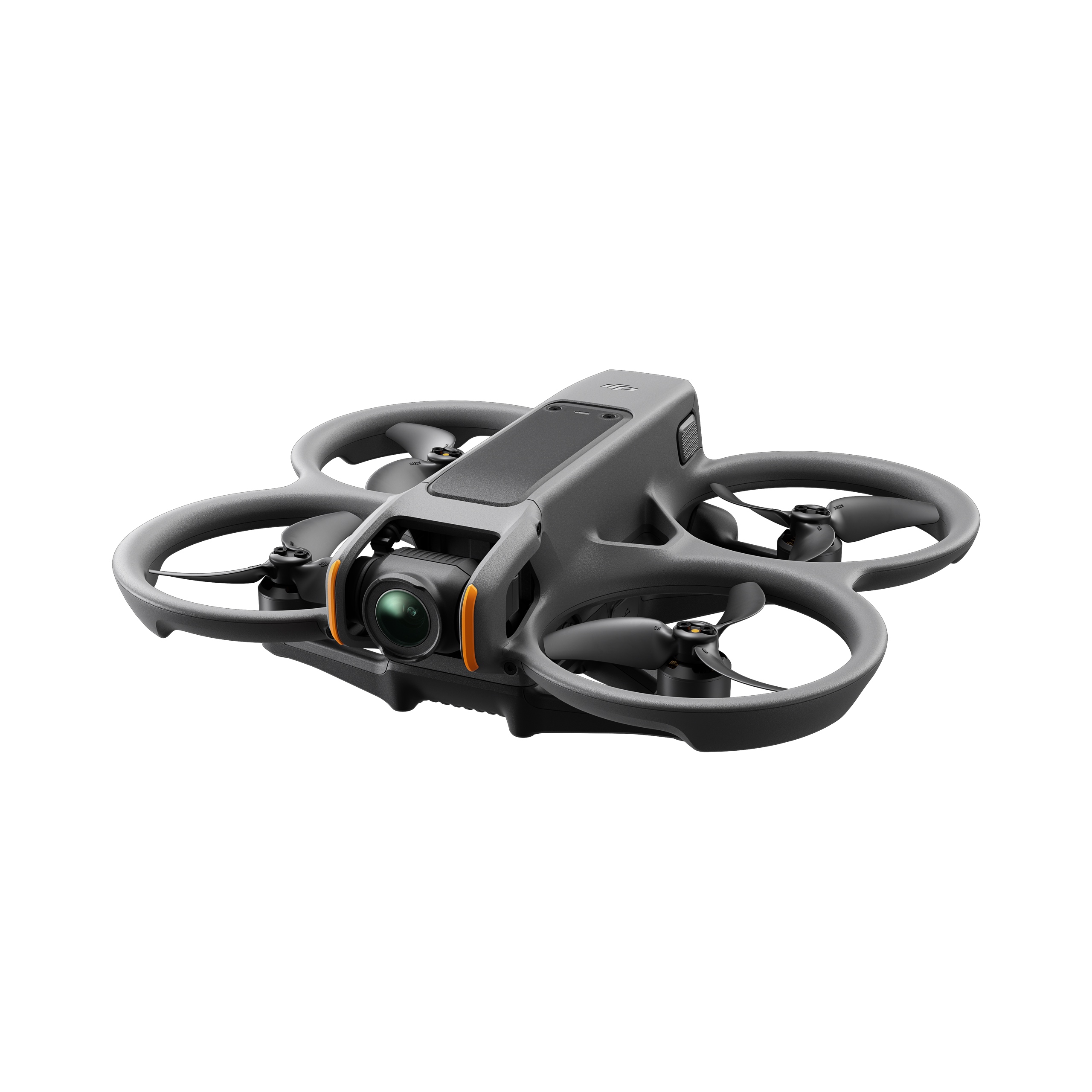
With updated features, goggles and controllers, the DJI Avata 2 offers beginners and experts the ability to capture excellent 4K video while enjoying the immersive flight experience offered by this drone.
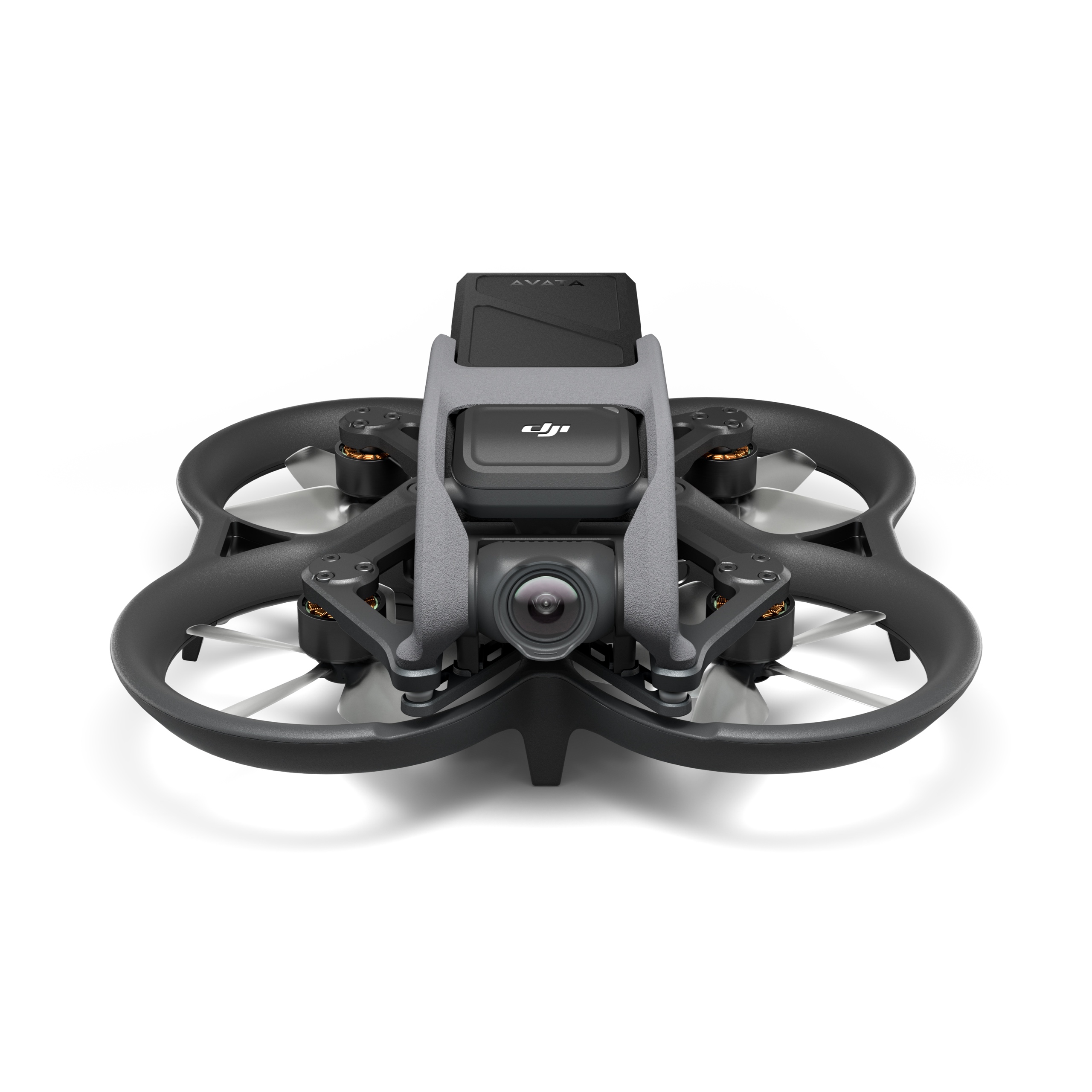
With excellent 4K video capture and the ability for beginners and experts to fly the drone in a way that suits them, immersive FPV video is available to everyone.
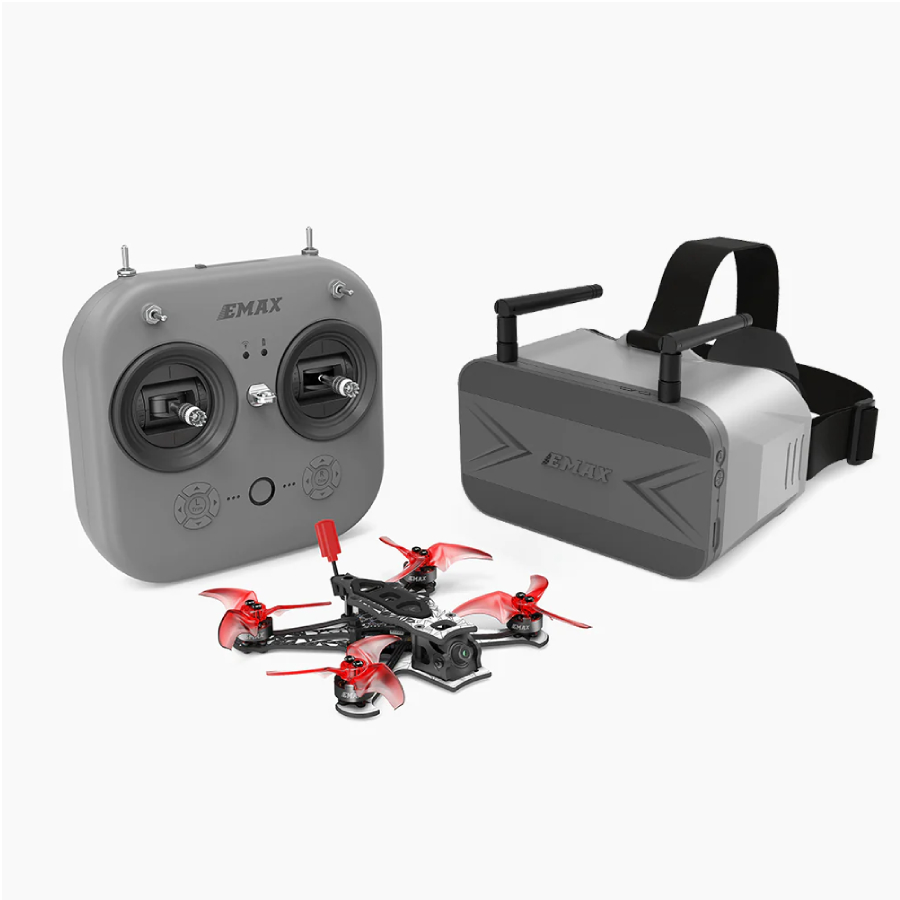
The Emax Tinyhawk III Plus Freestyle RTF Kit offers a digital camera and FPV goggles for a crisp and clear FPV view. This is alongside excellent performance from this mini freestyle FPV drone.
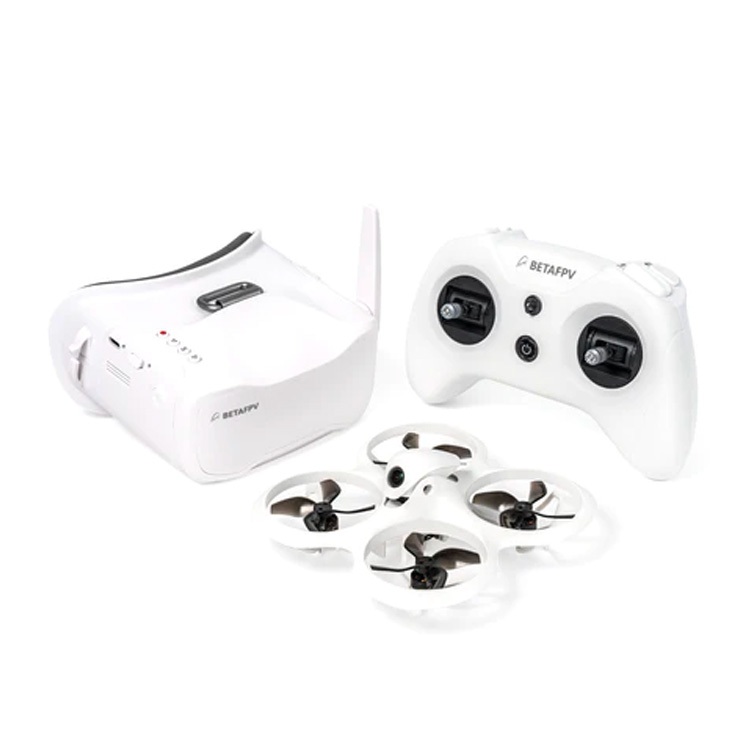
The BetaFPV Cetus X FPV Kit is a powerful microwhoop drone with basic safety features in one flight mode for beginners but also offers Manual mode for experienced pilots.
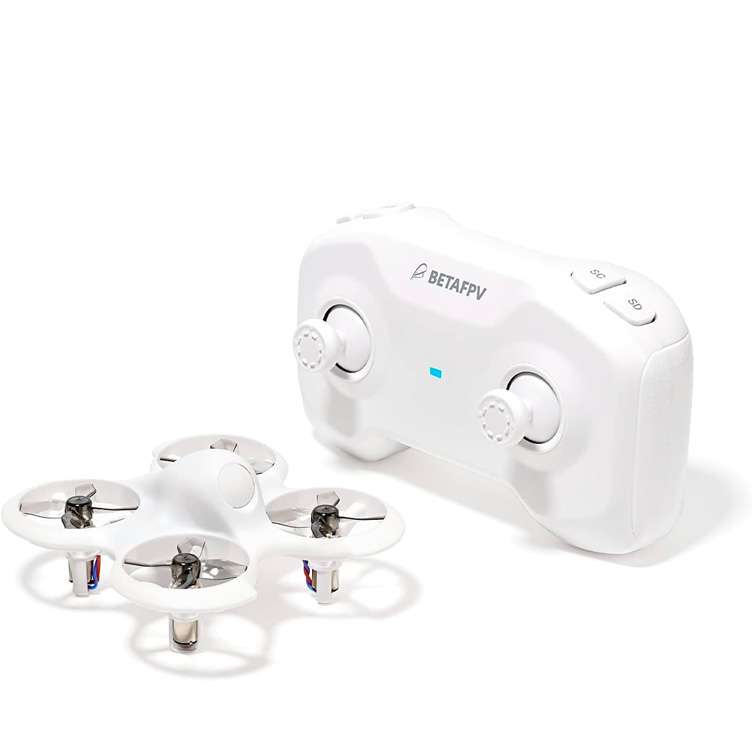
The BetaFPV Cetus Lite FPV Kit comes with everything you need to get started with FPV flight and is perfect for getting used to flying with FPV goggles.
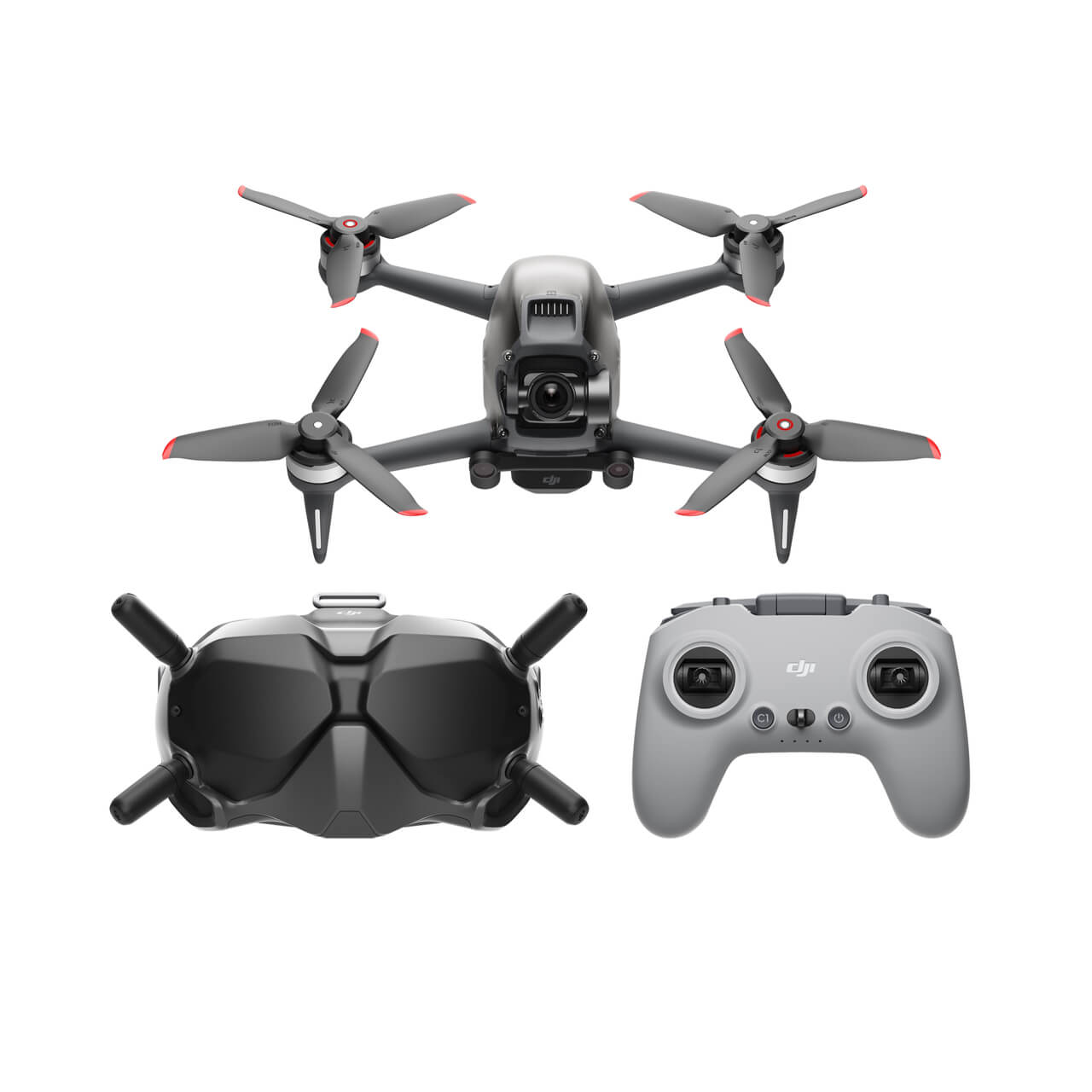
If speed, maneuverability and 4K video capture are on your FPV wishlist, the DJI FPV could be the perfect drone for you.
Load the next 2 products ↴
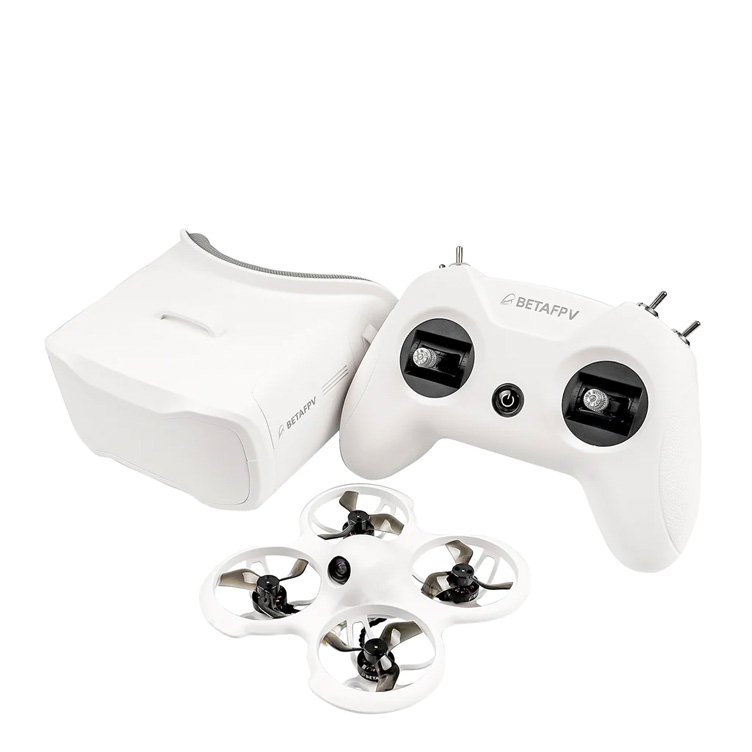
The BetaFPV Cetus Pro kit offers everything you need to get started alongside flight modes that will help to take you from FPV zero to hero in no time.
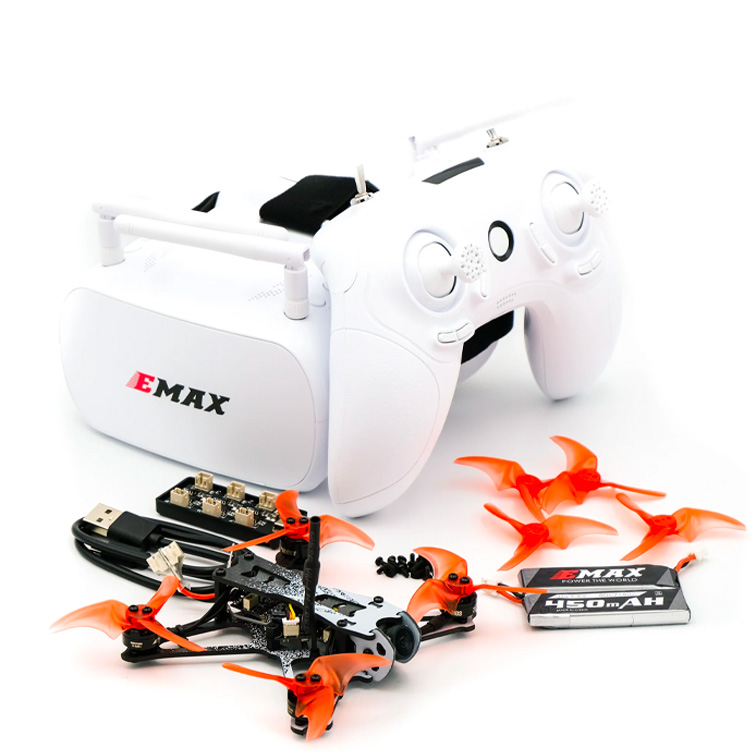
The Emax Tinyhawk II Freestyle RTF Kit is a great option if you plan to learn how to fly freestyle with an inexpensive pre-built FPV drone.
Best FPV Drones we recommend in 2025
Why you can trust Space.com
Best FPV drone overall
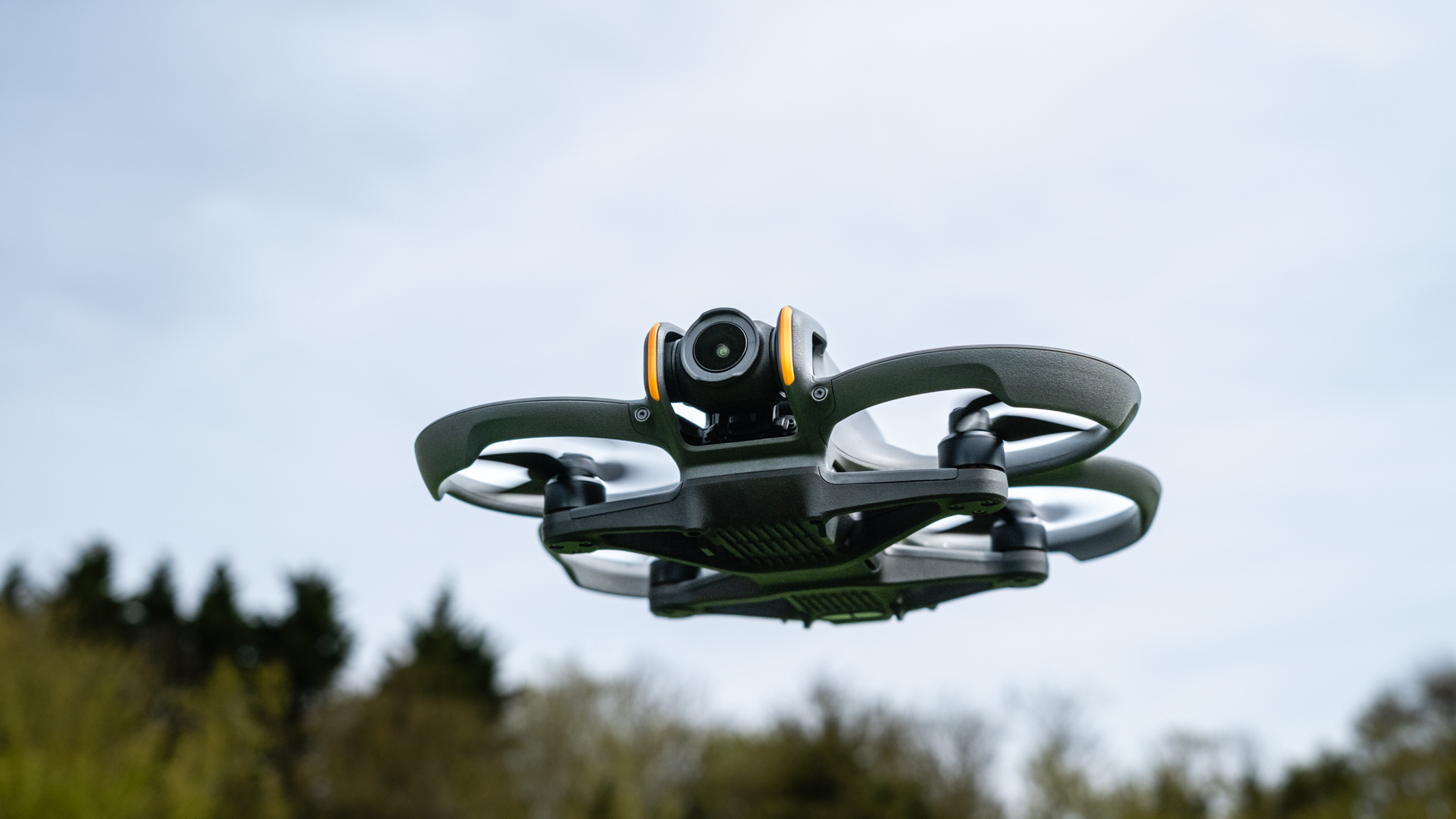
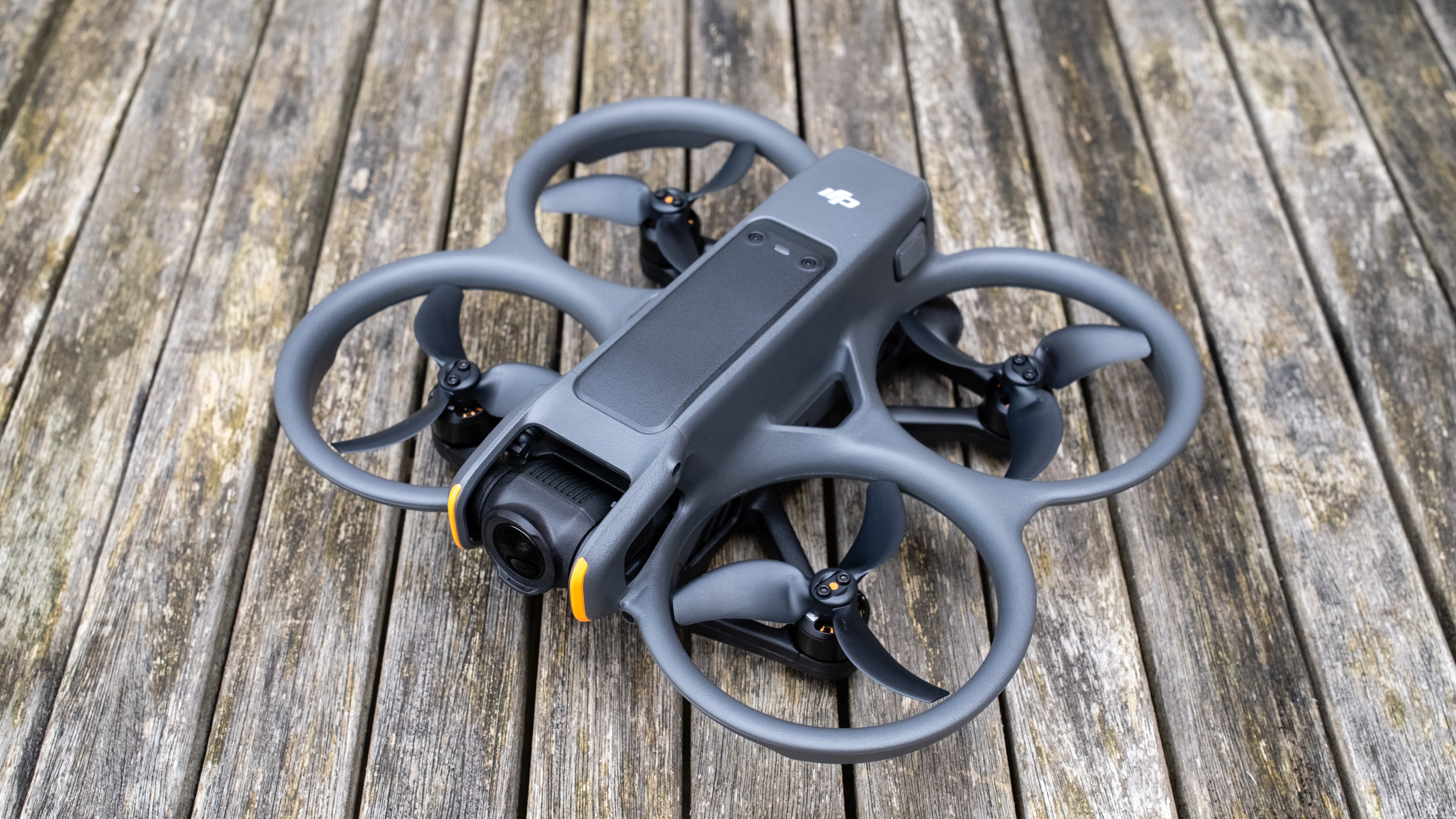
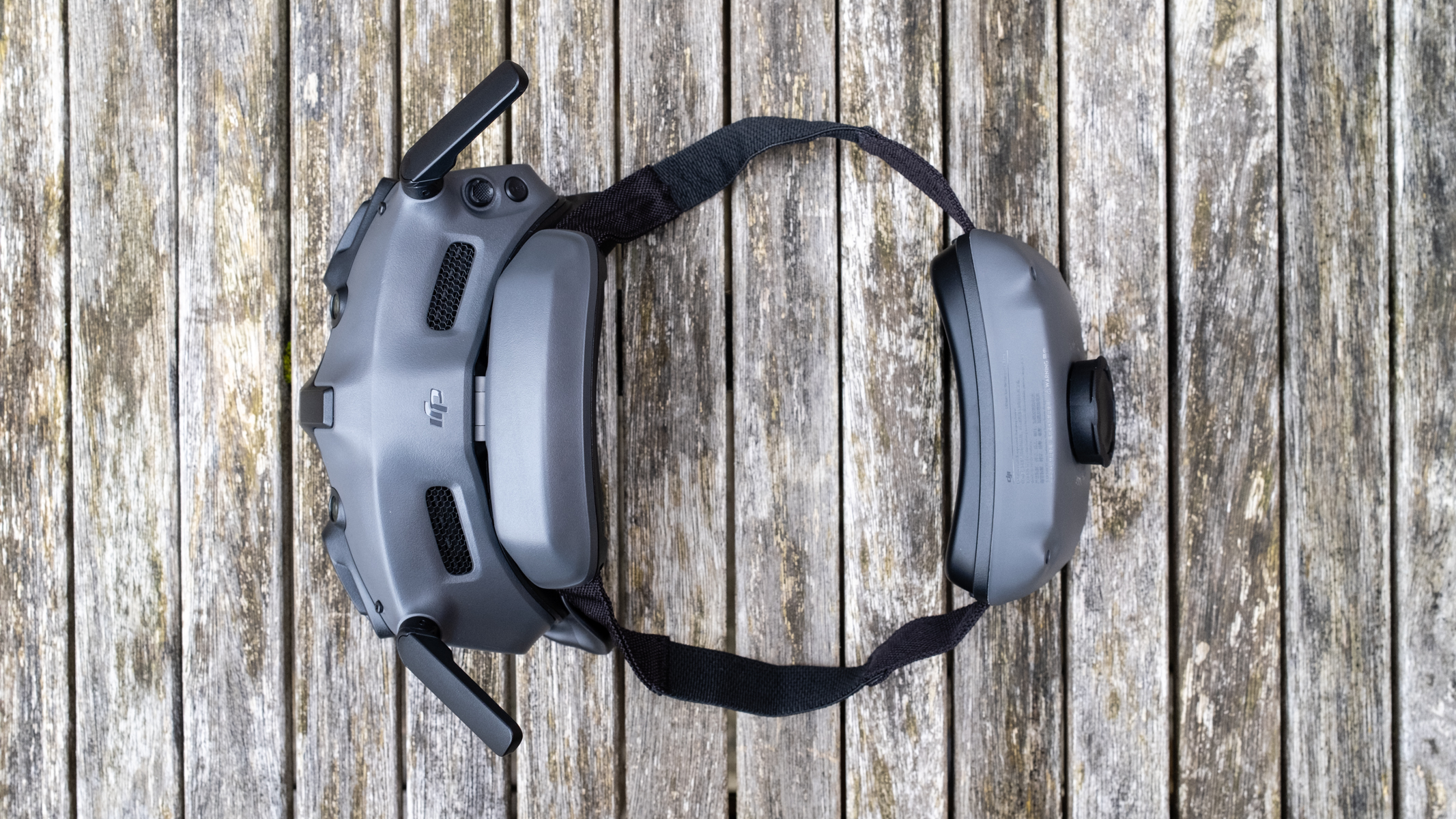
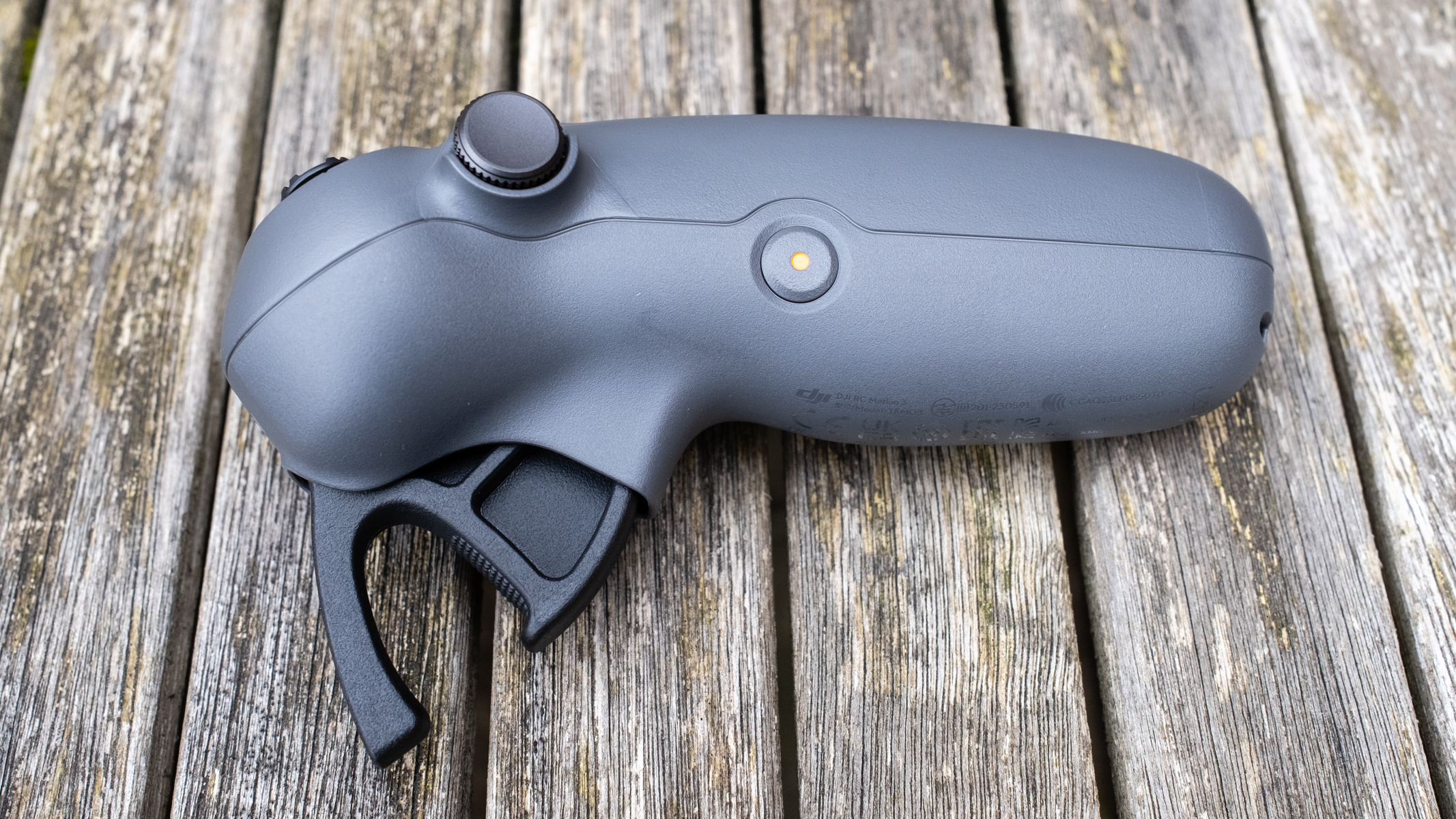
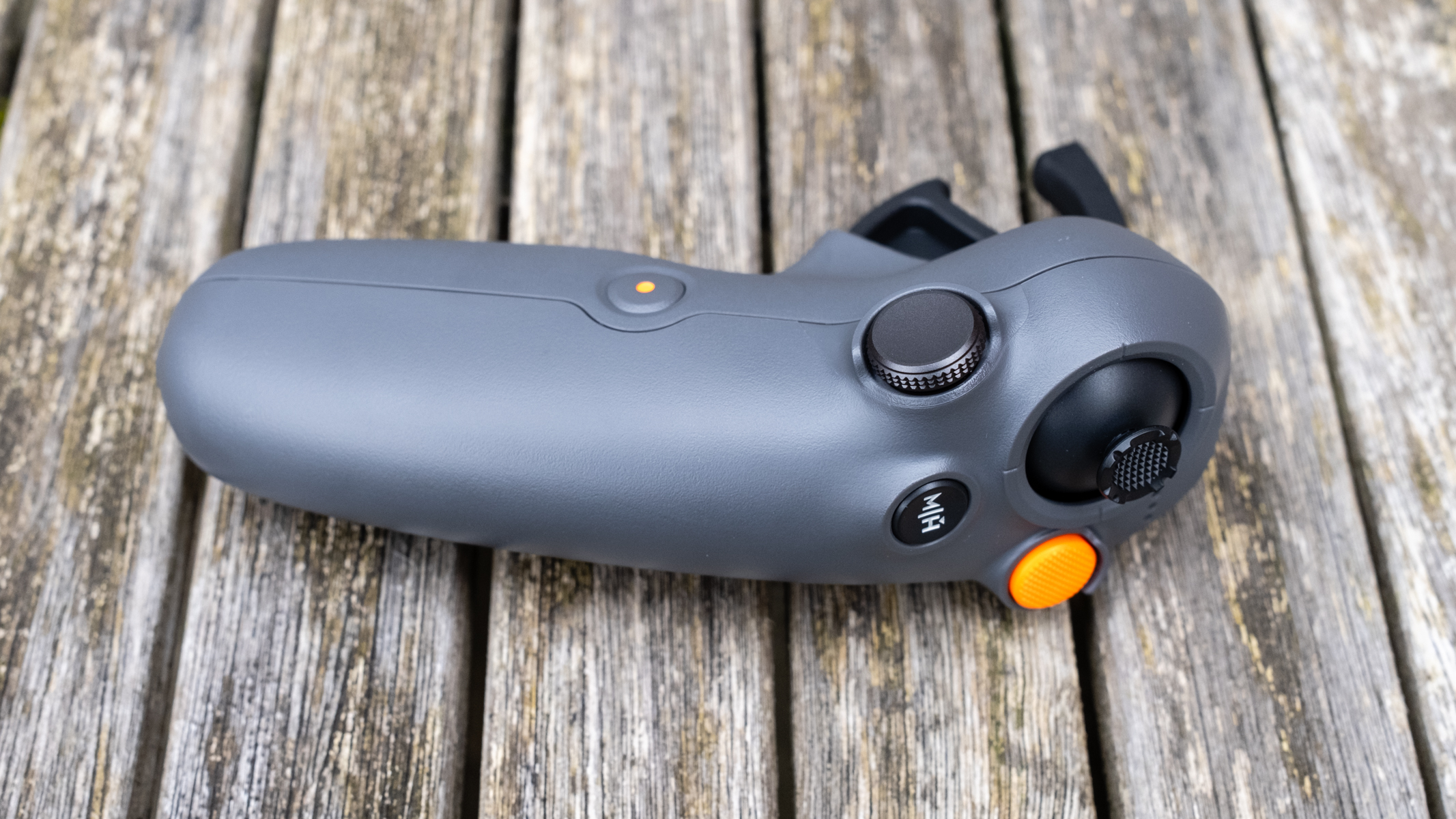
Specifications
✅ You’re looking for simplicity: Alongside providing excellent image quality for video, the Avata 2 is much less hassle than traditional FPV drones with smart batteries and advanced features.
❌ You're on a budget: The Avata 2 is reasonably priced but it may be too expensive for some beginners. If you'd like a more affordable kit to get started, consider the BetaFPV Cetus X Kit.
🔎 The DJI Avata 2 builds upon and improves the experience provided by its predecessor to deliver an FPV drone that's suitable for FPV beginners and professionals alike, with video capture available up to 4K 60 fps. ★★★★★
The DJI Avata 2 delivers advanced features and functionality in an FPV drone that defies convention and is suitable for both absolute beginners and experienced FPV pilots alike. Thanks to GPS positioning, rear and downward sensors and hover functionality, the Avata 2 can function similarly to a camera drone, with the same ease of use while incorporating FPV flight.
DJI is well-known for making drones easy to use, and the DJI Avata 2 is no exception. Taking the concept of simplicity a step further, the Avata 2 can be easily flown by both absolute beginners and experienced FPV pilots thanks to its multiple flight capabilities.
At the simpler end, although this drone can be flown n manual/acro mode, it also features GPS positioning, rear and downward sensors allowing it to be flown in a hybrid way that combines the thrill of FPV but with the simplicity of a camera drone.
The beauty of this drone is that it's easy to use, as discussed in our full DJI Avata 2 review. The kits come with everything you need, including DJI Goggles 3 and a Motion 3 Controller, which is easy and intuitive to use. The DJI FPV Remote Controller 3 can be purchased separately and unlocks the ability to fly in Manual mode for a true FPV experience.
Not many FPV drones can capture 4K video, and that's where the DJI Avata 2 shines. You can record 4K up to 60fps, using either a Normal color profile or D-Log M if you want to be able to professionally edit and color grade your footage afterwards. We've found still image quality to be excellent too, thanks to the 12MP 1/1.3-inch sensor and 12mm equivalent lens.
You'll get up to 23 minutes of flight time from the Avata 2, which is fairly impressive for an FPV drone. It's also worth noting that the batteries used here are smart batteries, meaning they automatically discharge. We think they're much easier to use than traditional LiPo batteries found on traditional FPV drones.
- Read our full DJI Avata 2 review
Attributes | Notes |
|---|---|
Design | Cine whoop design with propeller protection. |
Functionality | GPS, hovering and beeper alongside impressive flight times. |
Performance | Excellent 4K video quality. |
Best older model
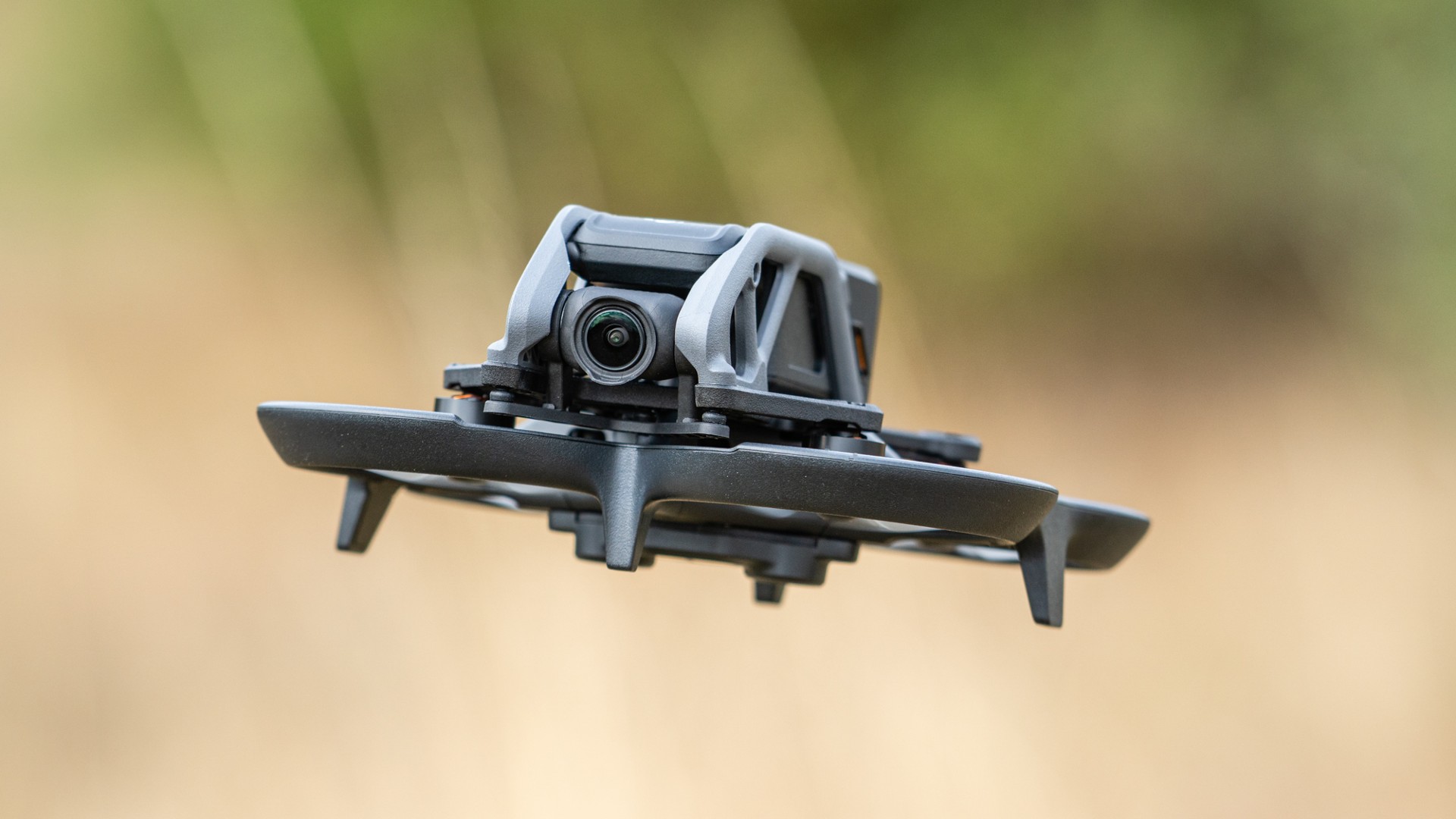
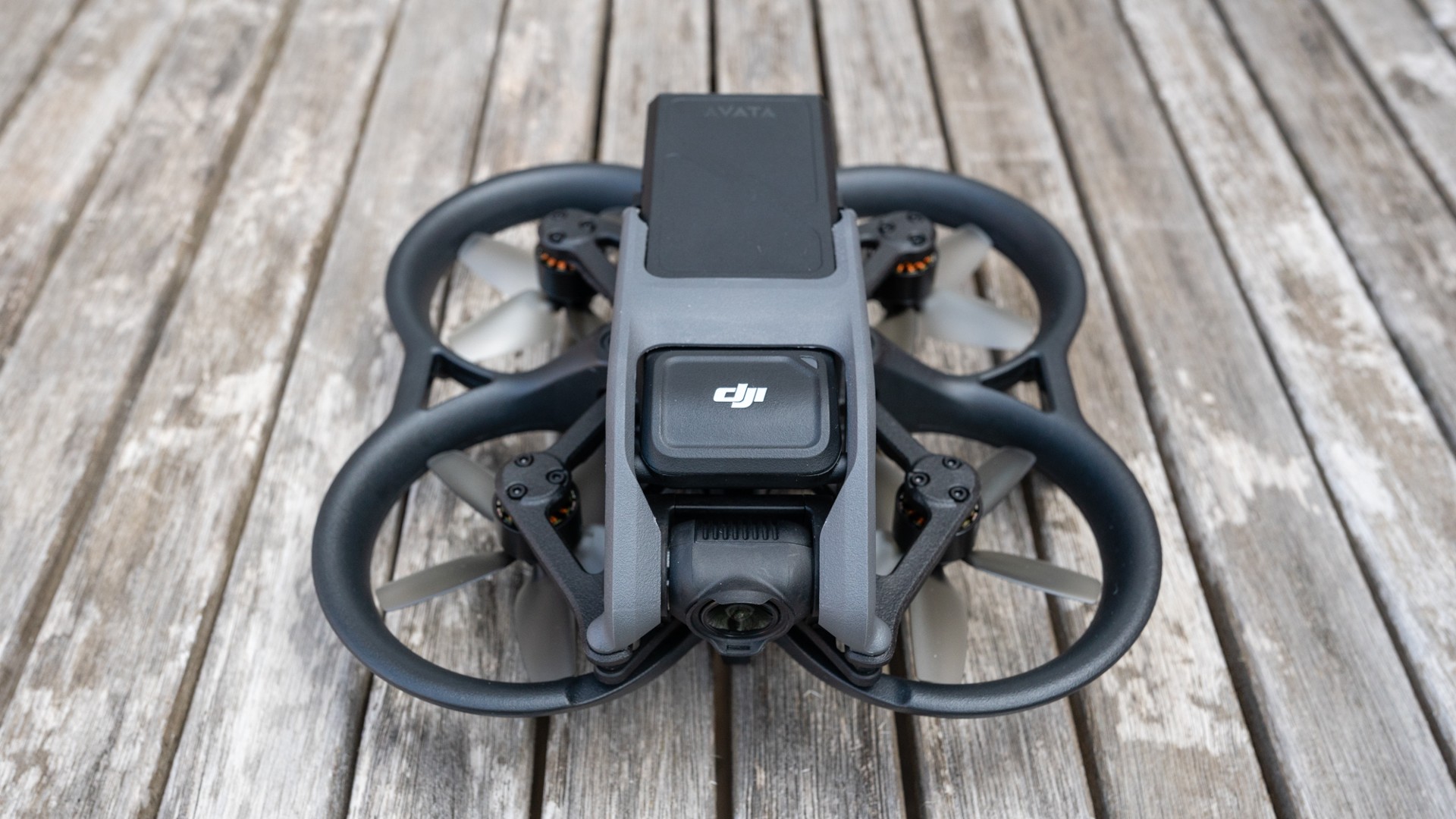
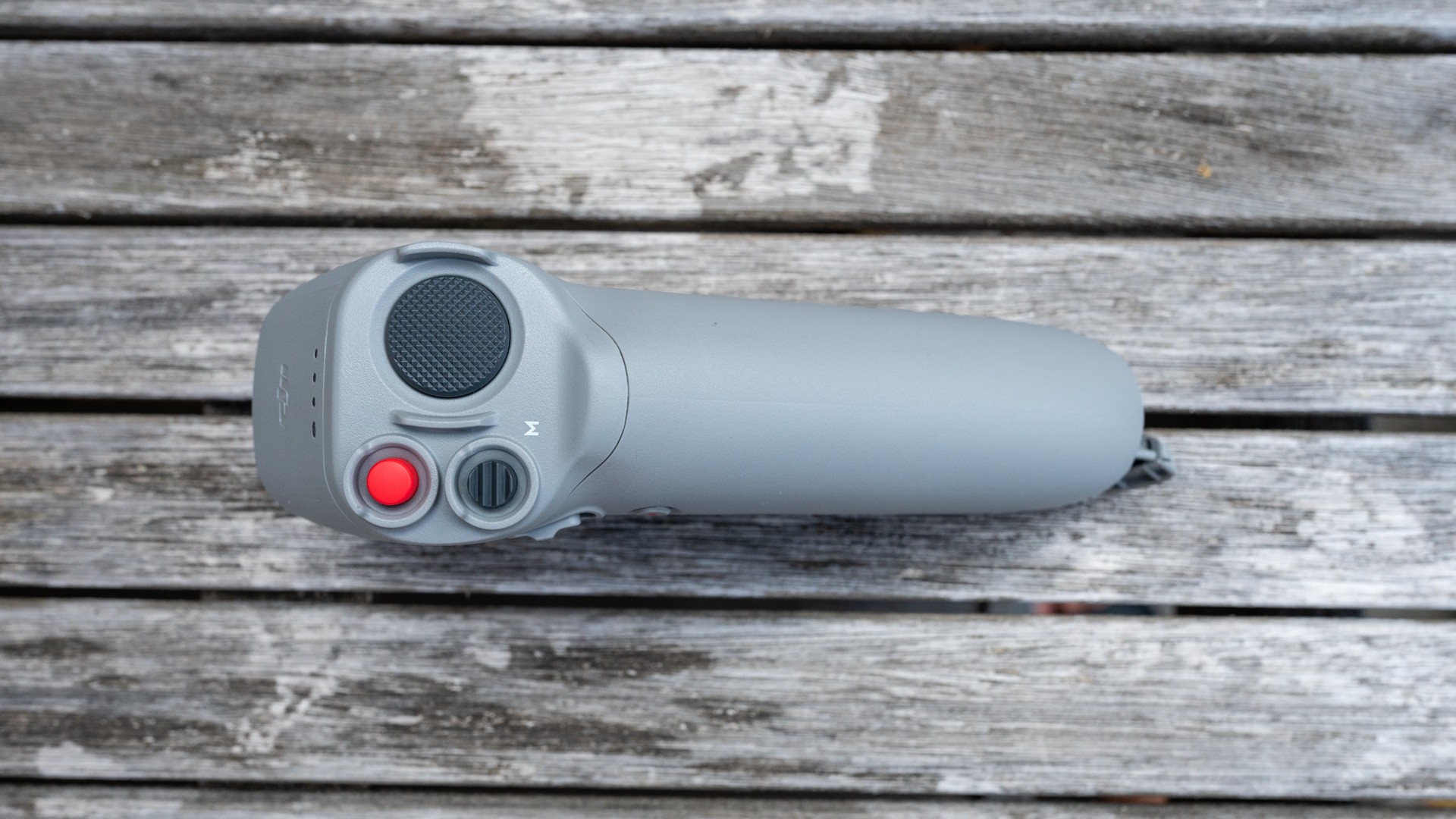
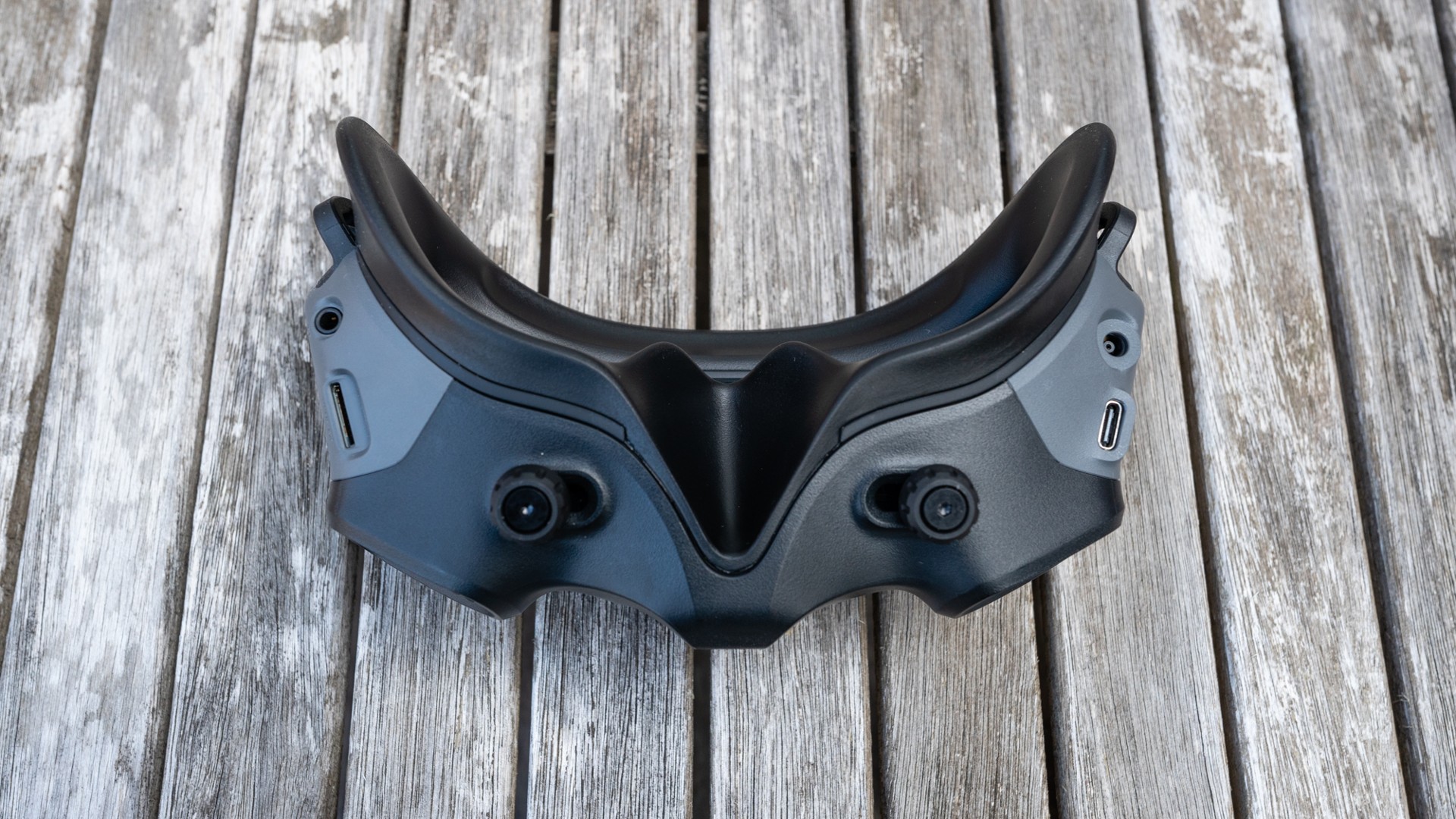
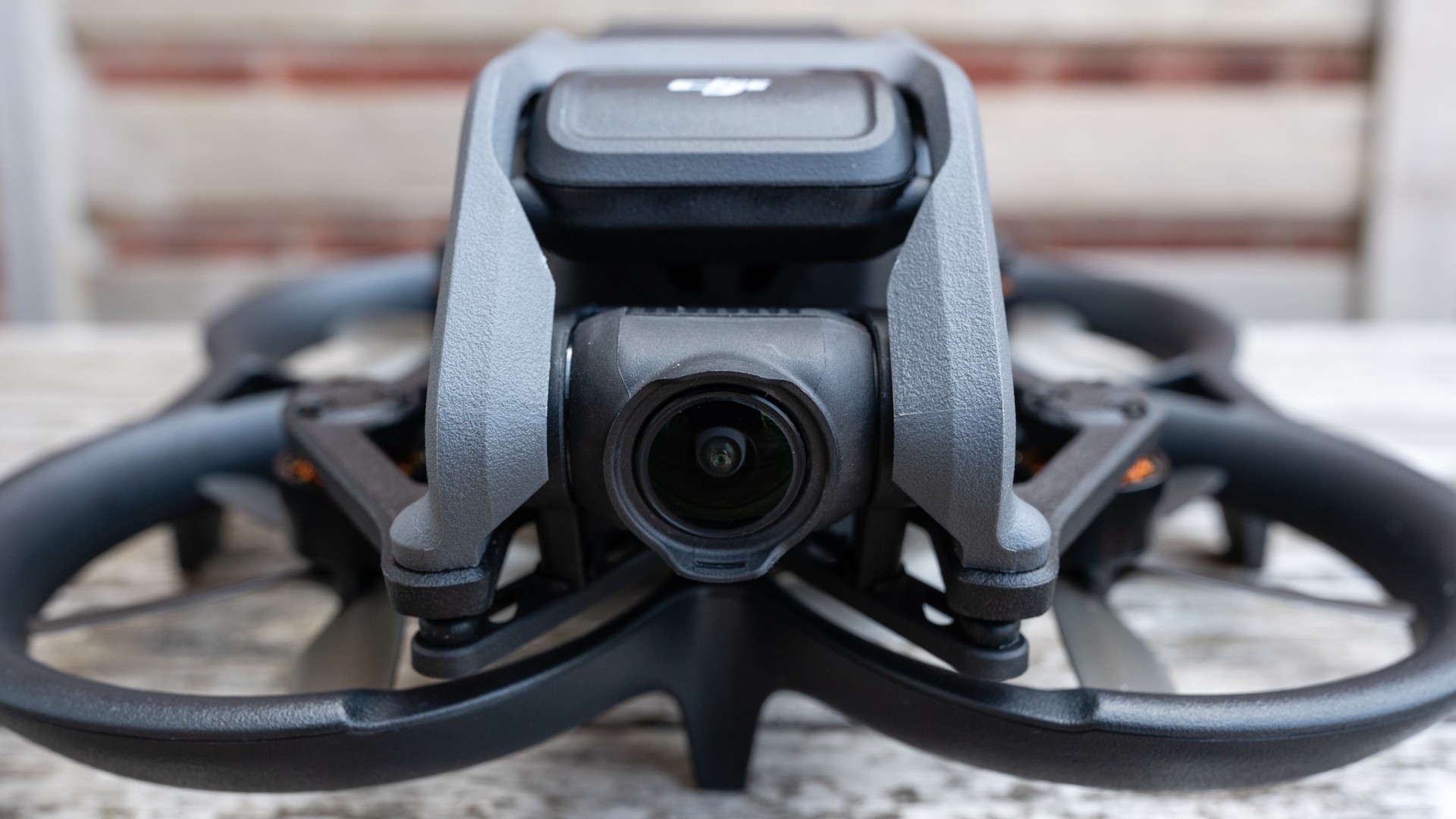
Specifications
Reasons to buy
Reasons to avoid
✅ You're a beginner: While it's not a drone aimed at beginners, we noted that it's easy to fly if you are a beginner and it'll last you beyond beginner status, too.
❌ You want to use it for stills photography: It can capture JPEG images, but there's no option to shoot in RAW, not to mention the horizon will most likely always be wonky.
🔎 FPV drones are notoriously difficult to fly, but with the DJI Avata anyone can capture immersive FPV video footage in stunning 4K resolution at up to 60 fps, and it’s a whole lot of fun to fly, too. ★★★★★
The DJI Avata may now be an older DJI FPV drone model, but since it's still available to buy and at a lower cost than the Avata 2, so it's well worth considering if you're on a budget.
It features GPS positioning and downward sensors, along with the freedom to fly manually in Acro mode so it's highly versatile. Plus, it can be flown by beginners using the Motion Controller 2 or by experienced pilots using the FPV Remote Controller 2 with the latter only available separately.
You'll find some features typical of camera drones built into the Avata, such as GPS positioning and downward sensors, along with the freedom to fly manually in Acro mode. The only downside here is that if you want to fly in Acro mode, you'll need to buy the FPV Remote Controller 2 which is only available separately.
You do get a Motion Controller included, though, which we've found to be an intuitive way to fly the Avata and is great for beginners, but it doesn't give as much freedom as the FPV Remote Controller 2. The latter, however, is only suitable for more experienced pilots because flying in acro mode isn't easy.
Video can be captured in 4K up to 60fps, 2.7K at up to 100fps and 1080p at up to 100fps with DJI Goggles 2. The DJI FPV Goggles V2 however, can shoot 2.7K and 1080p video at a rate of up to 120fps.The video quality from the 48MP 1/1.7-inch CMOS sensor with an f/2.8 lens with a 12.7 mm equivalent focal length is excellent overall, as we discussed in our DJI Avata review.
The DJI Avata features a cinewhoop design with prop guards around the propellers to protect them in the event of a crash. These can be purchased separately and replaced if damaged. The drone is 180 x 180 x 80 cm and weighs in at 14.46 oz/410 g with a battery, which is quite heavy for a drone of this style, but it does include 20 GB of built-in storage alongside a separate microSD card for additional video storage.
You can purchase the Avata by itself, if you already have the other FPV accessories or need a replacement. But also in two kits with different goggle choices. There's also a Fly More Bundle available if you want more extras.
- Read our full DJI Avata review
Attributes | Notes |
|---|---|
Design | Robust cinewhoop design. |
Functionality | FPV Goggles 2 provide a clear digital FPV feed. |
Performance | Fantastic video quality. |
Best beginners freestyle kit
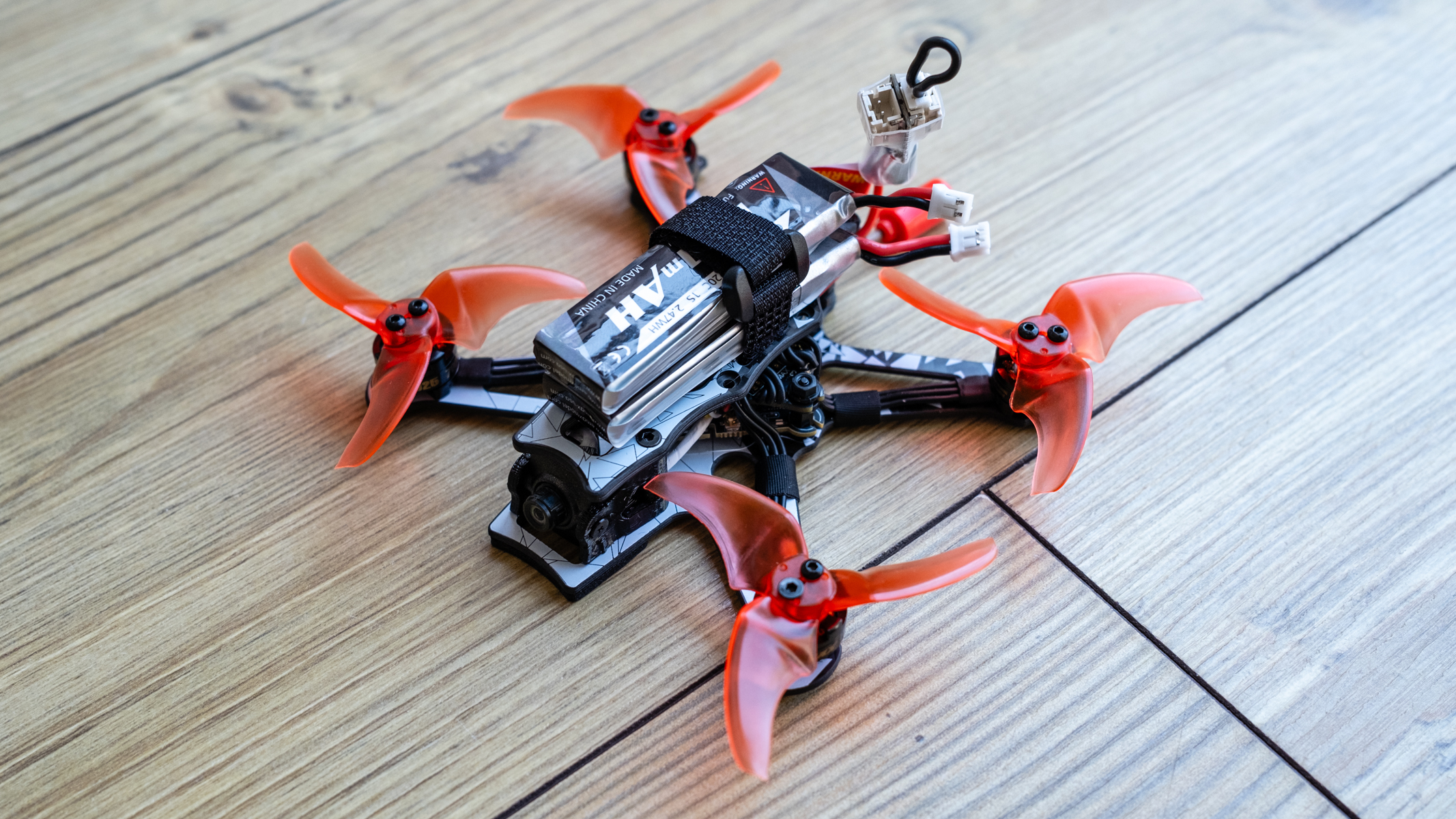
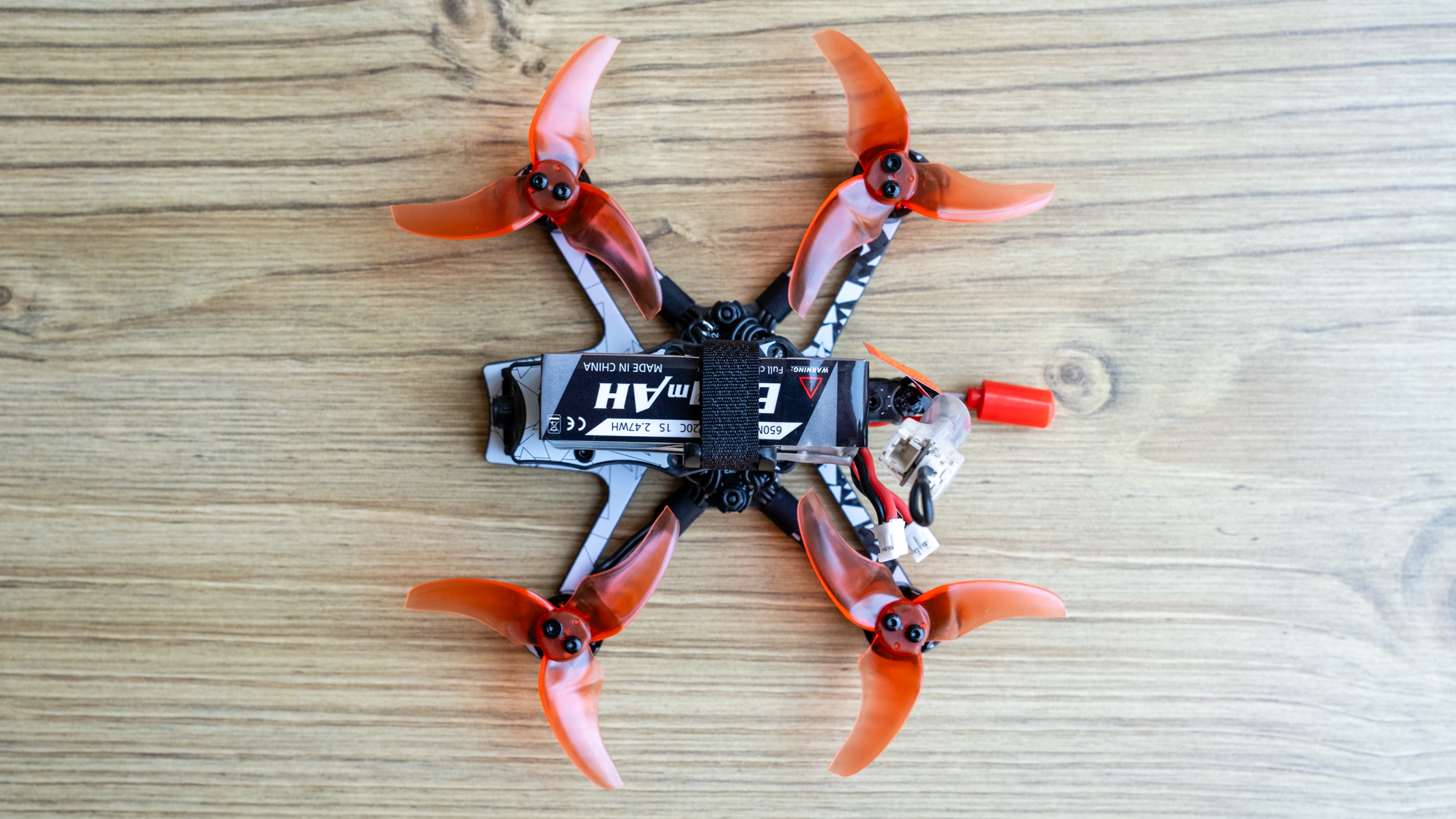
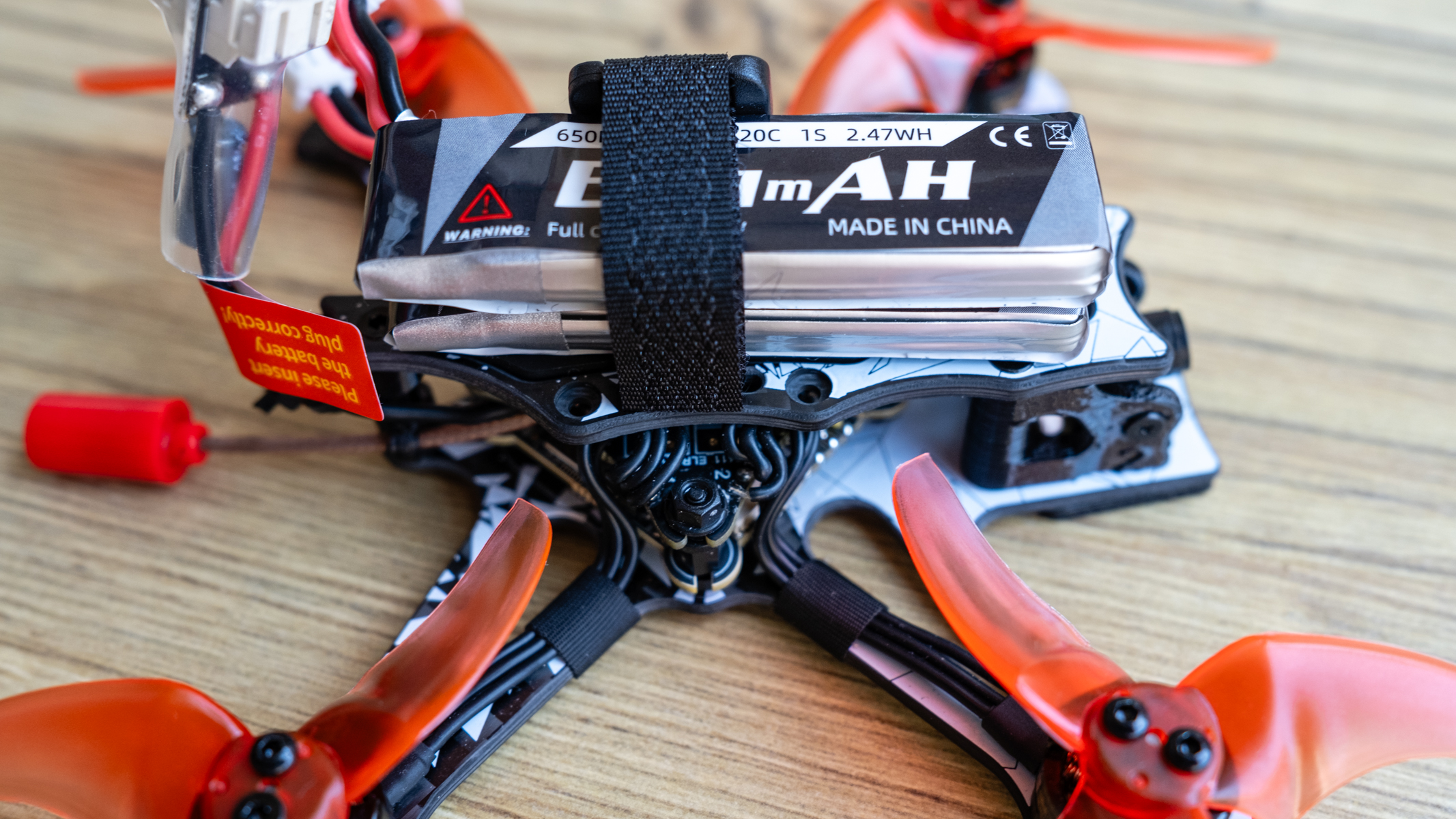
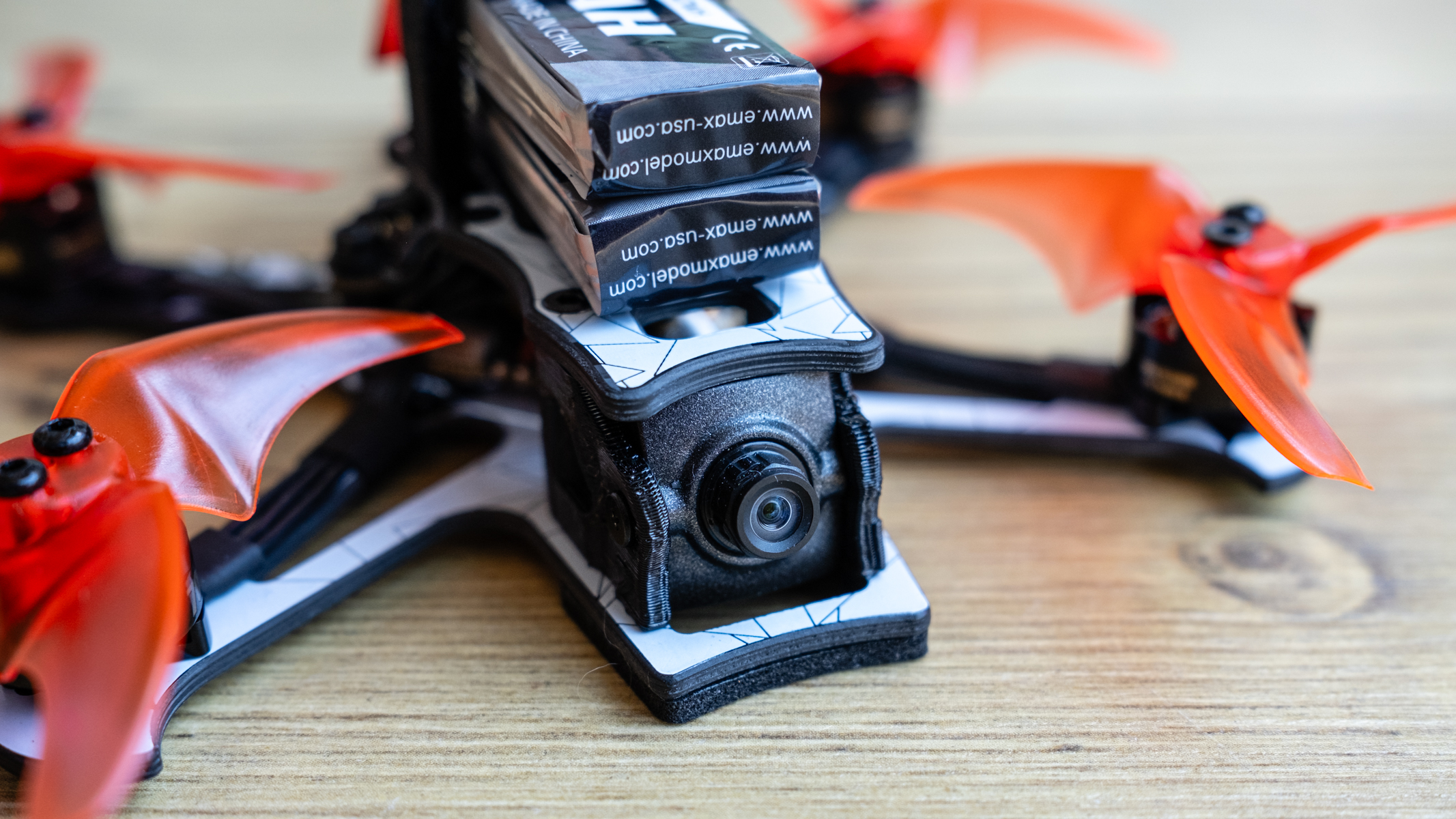
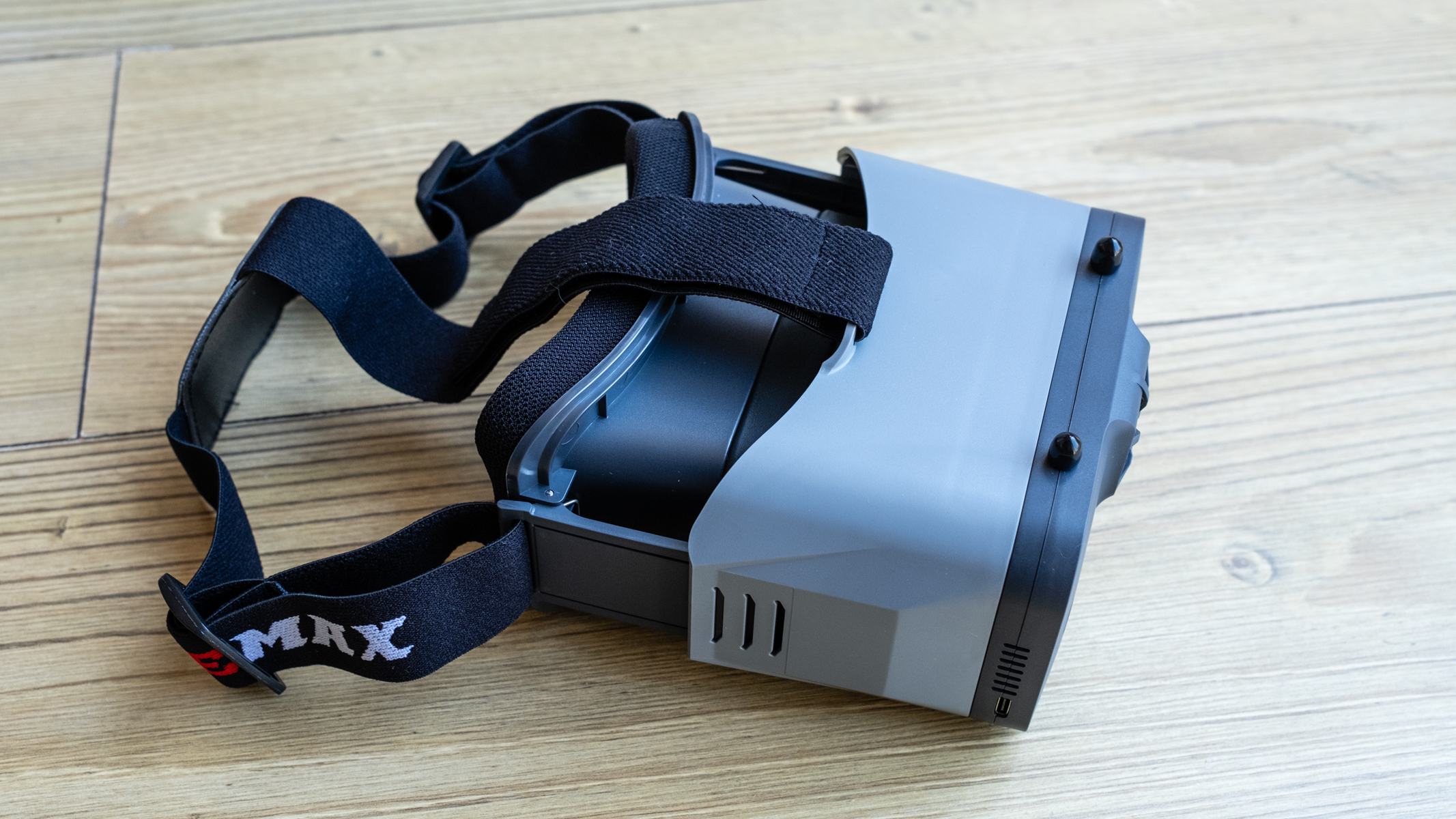
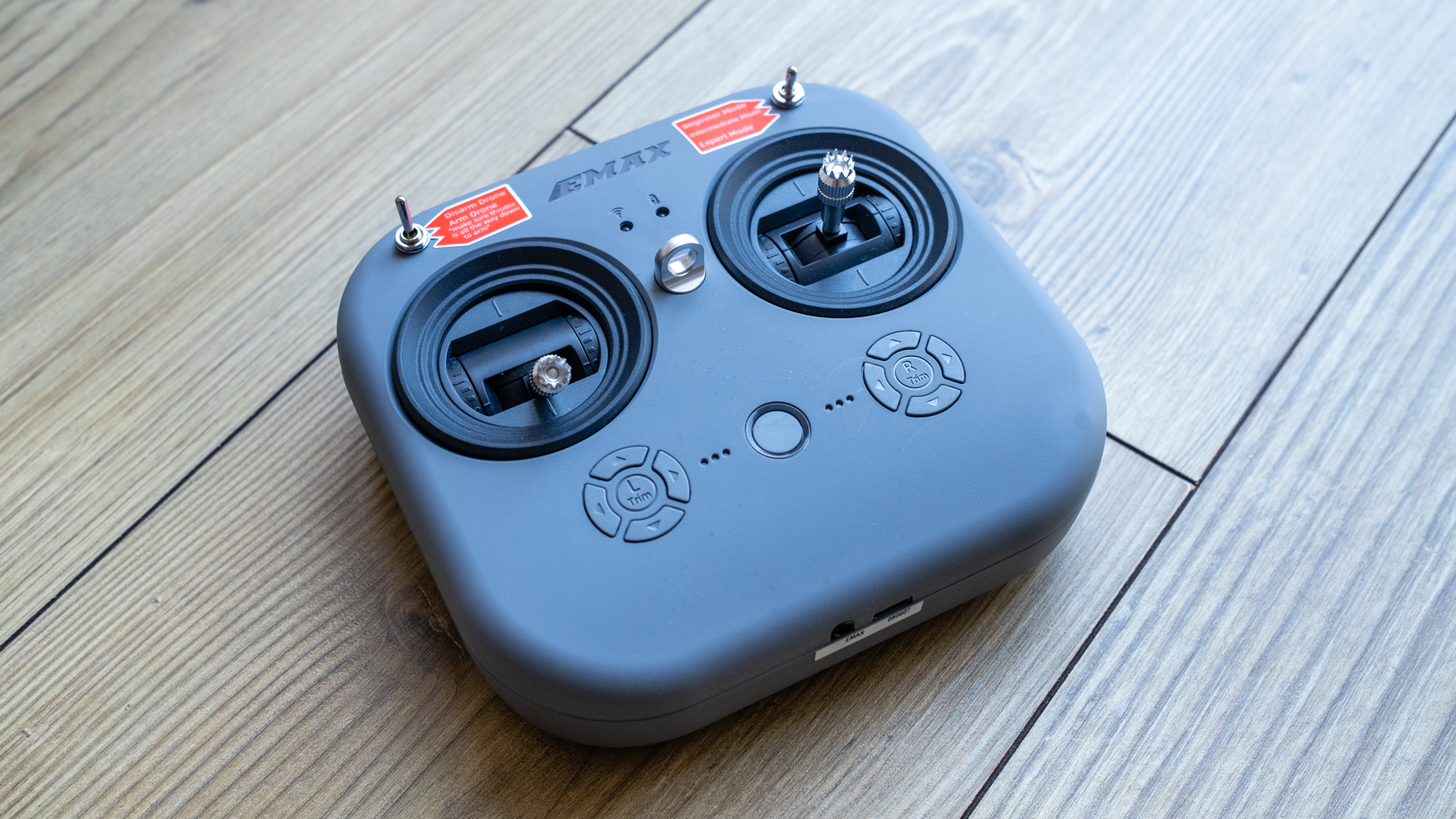
Emax Tinyhawk III Plus Freestyle RTF Kit
Our expert review:
Specifications
Reasons to buy
Reasons to avoid
✅ You would like to learn how to fly freestyle: This kit is highly capable despite its small size and is designed for beginners and intermediate pilots.
❌ You would like hover functionality: If you'd like camera drone functionality such as hovering and Return to Home, the Avata 2 is an FPV drone that can do both.
🔎 The Emax Tinyhawk III Plus Freestyle RTF Kit is one of the best ready to fly kits we've tested. It's incredibly agile and, indeed capable, not to mention is a huge amount of fun to fly with 1S and 2S battery configurations for less or more power to the motors. ★★★★★
If you're aiming to learn how to fly FPV drones in acro mode where you can flip, dive and roll the drone, the Tinyhawk III Plus Freestyle could be the perfect FPV drone for you. Scoring a perfect score in our Tinyhawk III Plus Freestyle review, this is a drone that's perfectly tuned for freestyle flight and can be run with 1S or 2S battery configurations where you can control speed and power depending on your flying ability.
You'll find everything you need to get started within the Tinyhawk III Plus Freestyle package. Along with the drone itself, you'll get Emax Transporter 2 HD FPV Goggles, an Emax E8 Transmitter, two sets of propellers, two 1S batteries, a six-port USB battery charger and a wealth of other accessories.
Flight times are short with all traditional FPV drones, and the Tinyhawk III Plus Freestyle is no exception. With batteries usually providing round three or four minutes of flight time, it's worth buying extra batteries to prolong your flights. Especially if you're flying with two 1S batteries for the more powerful 2S configuration.
This drone features an HDZero digital VTX, and the Transporter 2 HD FPV Goggles produce an HD image and can capture up to a 720p 60 FPS (1280 x 720 px) video using the built-in DVR when a microSD card is inserted. These videos can be viewed in the goggles or downloaded to your computer where you can share your best FPV flights to social media and beyond.
This kit isn’t cheap, and there is a less expensive analog version, but what you get is well worth the money in terms of quality, versatility and performance.
- Read our full Tinyhawk III Plus Freestyle review
Attributes | Notes |
|---|---|
Design | Small, lightweight X-shape freestyle design. |
Functionality | Three flight modes, an HD VTX and a beeper. |
Performance | Excellent all-round performance from this tiny but mighty drone. |
Best for beginners

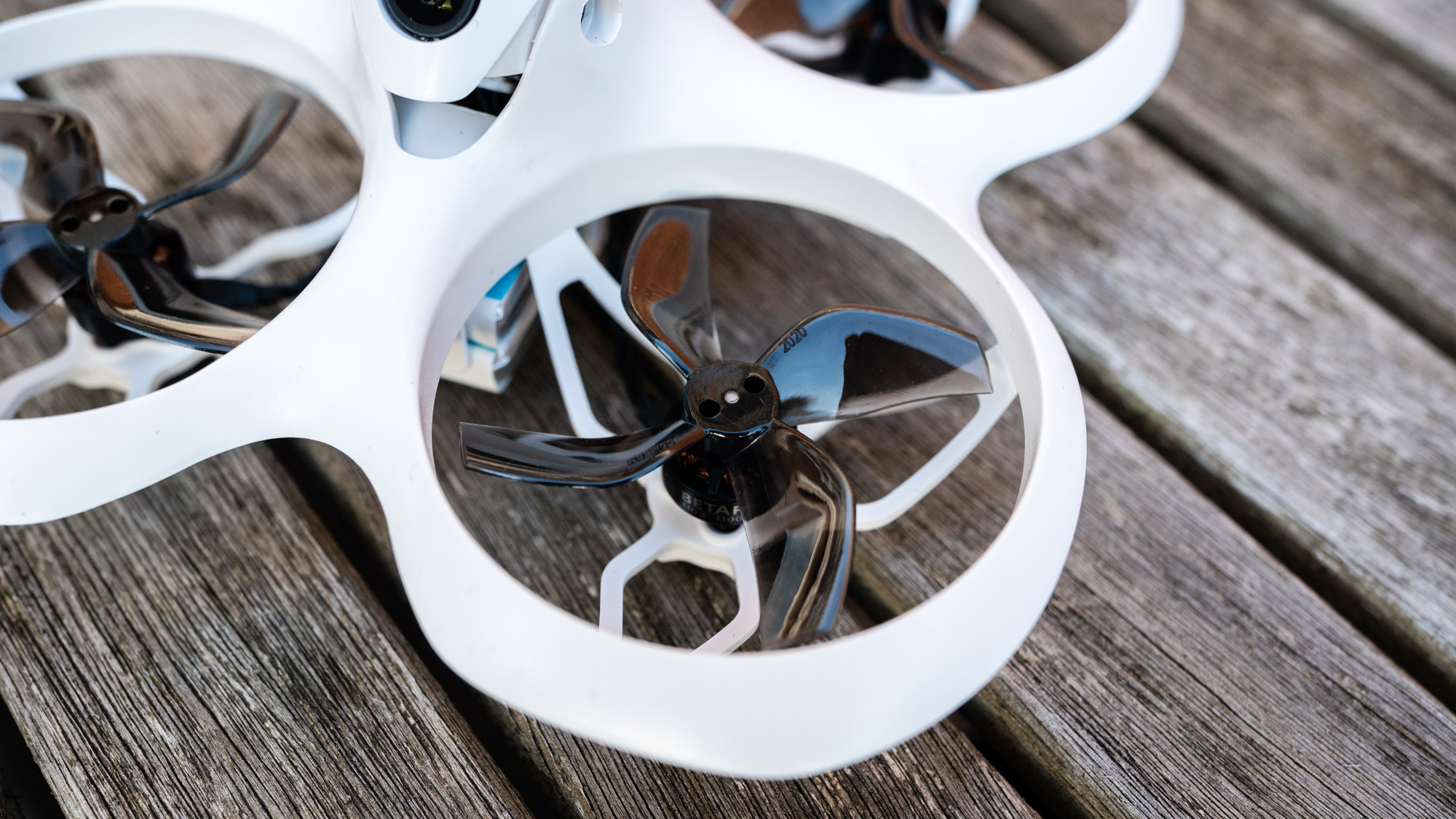
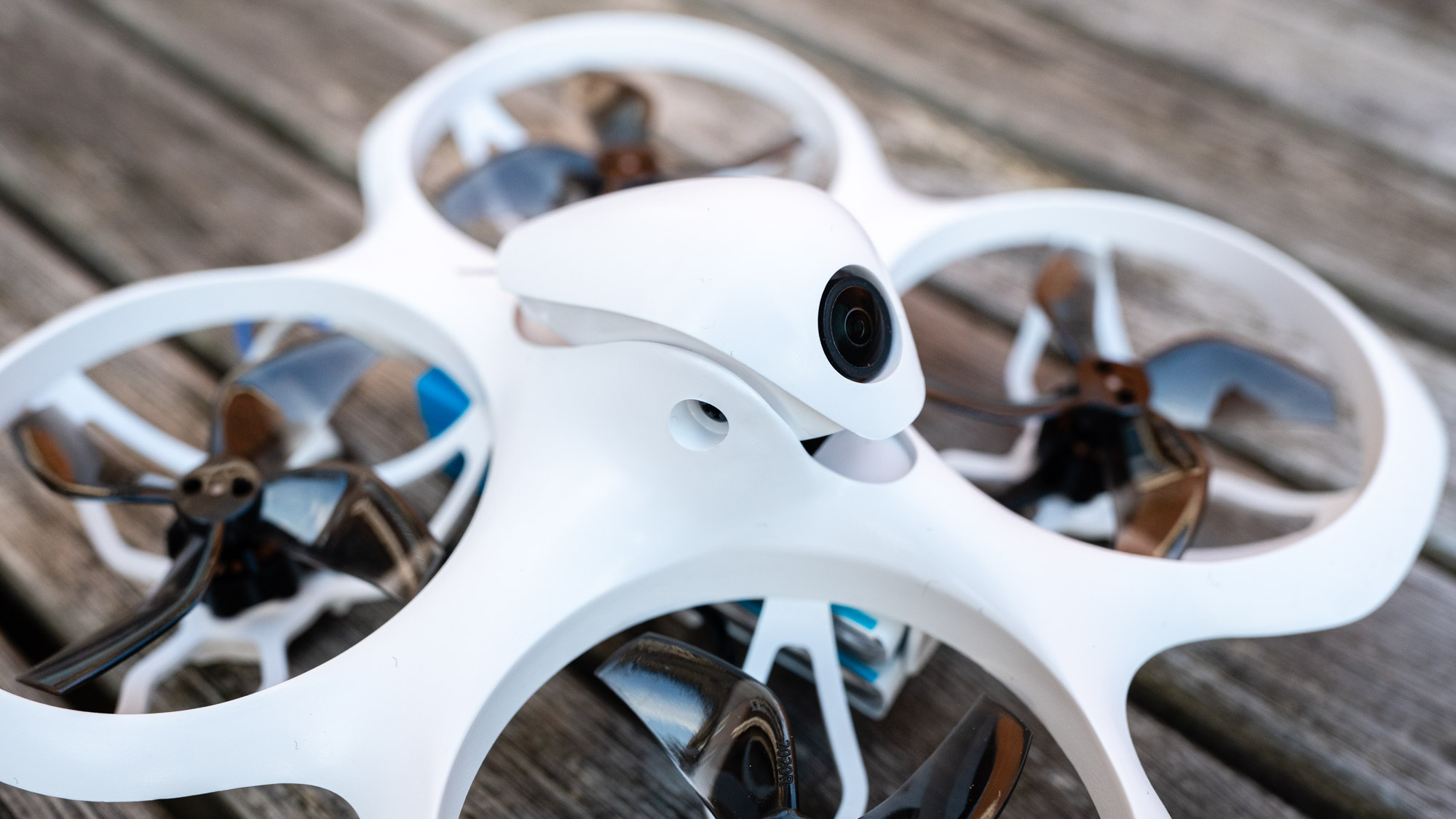
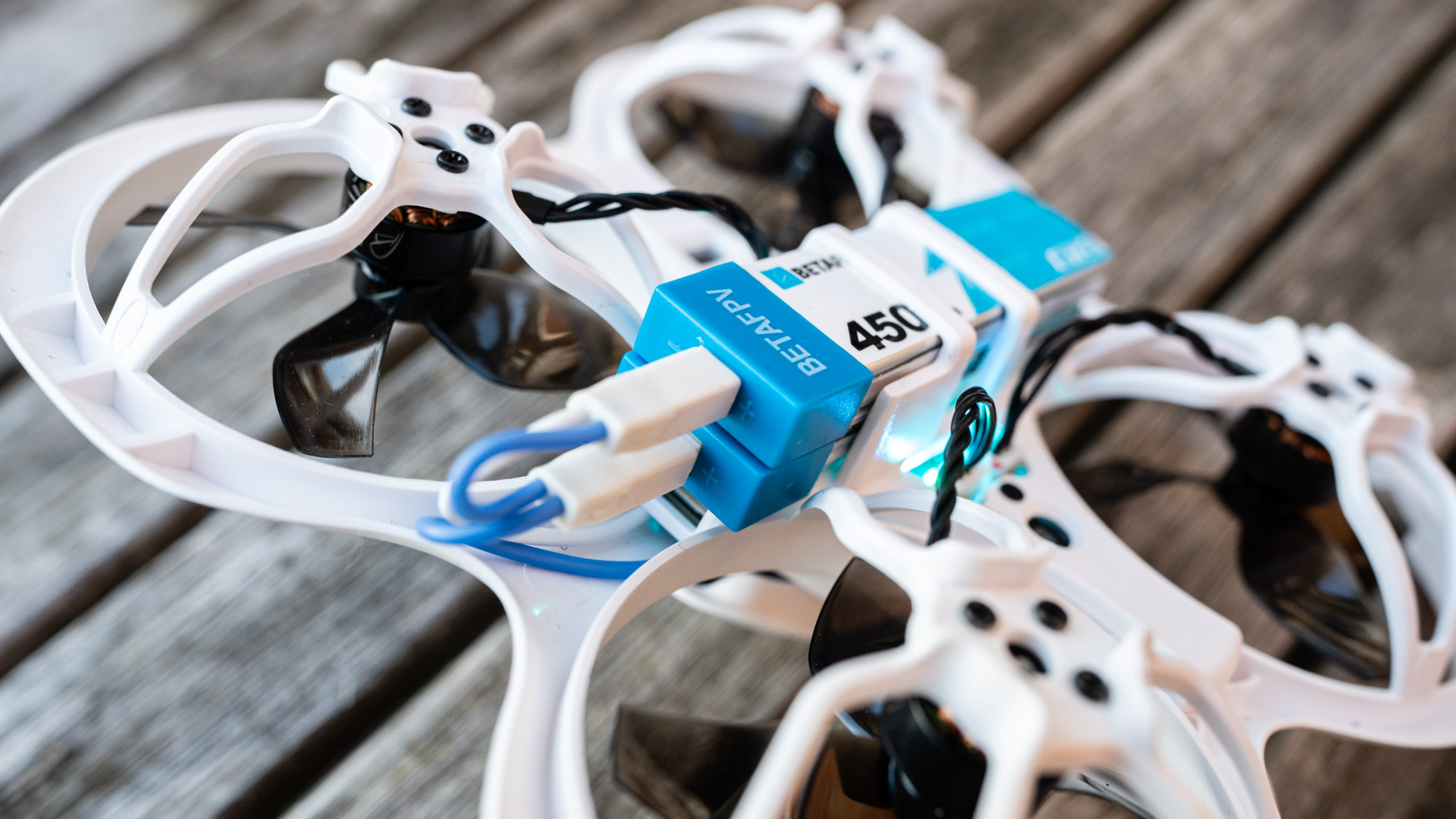
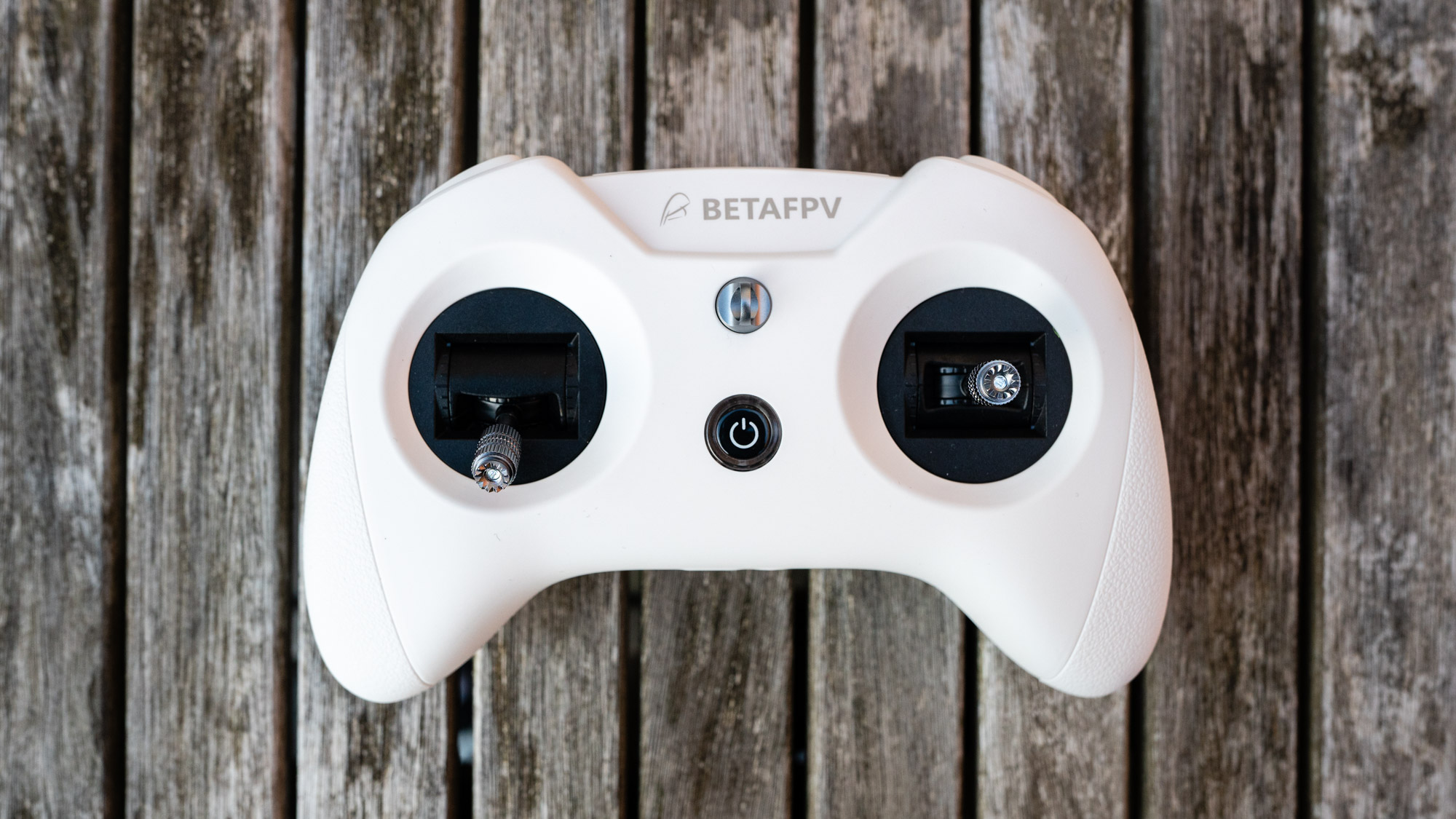
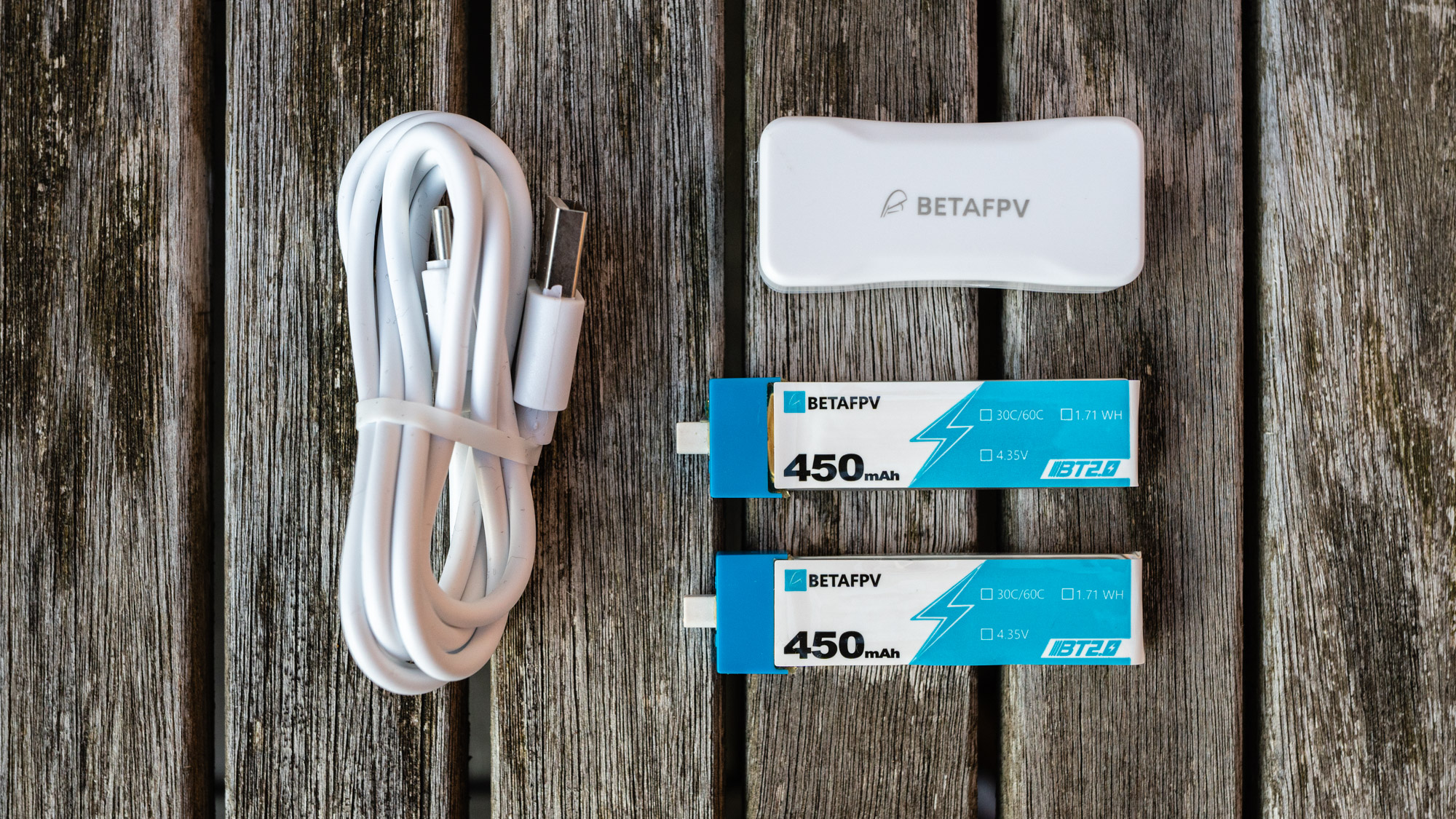
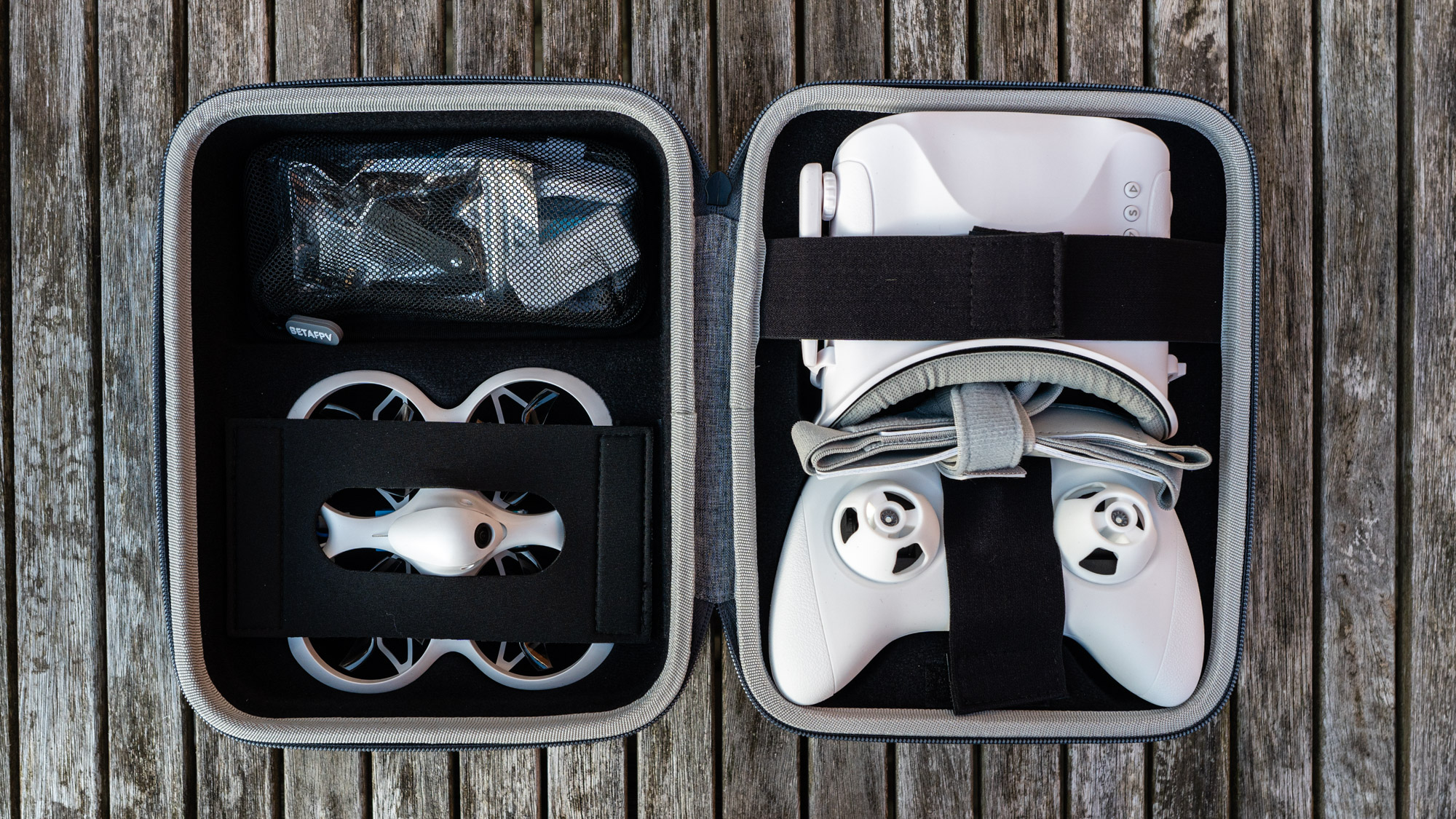
Specifications
Reasons to buy
Reasons to avoid
❌ You want long flight times: The battery life is short at just 5 minutes. The batteries charge in 20, but if you're looking to fly for longer it's worth looking at some other options.
❌ You want long flight times: The battery life is short at just 5 minutes. The batteries charge in 20, but if you're looking to fly for longer it's worth looking at some other options.
🔎 The Cetus X is BetaFPV’s top-of-the-line Cetus kit with everything you need to get started in FPV with a drone that’s suitable for absolute FPV beginners but is still powerful enough and maneuverable to satisfy more experienced FPV pilots. ★★★★½
The BetaFPV Cetus X is the flagship model in the Cetus series, delivering power and flight capabilities not available with the other models. The Cetus X is available in two slightly different models, and we reviewed the Cetus FC version. This option features position hold, hovering and emergency landing in Normal flight mode which makes learning how to fly FPV easier for beginners.
These features make the Cetus X behave more like a camera drone than a FPV drone, which is great for getting used to using FPV goggles. Beyond this, the most useful mode is Manual/Acro where the Cetus X is powerful enough to perform freestyle tricks such as rolls, flips and dives etc.
The advantage of the Cetus X, particularly the FC version, is that it's the perfect FPV drone to take you from beginner to experienced pilot. What's more, it's incredibly cost-effective and the kit comes with everything you need to get flying. If you crash and damage a part of the drone, replacement parts can be purchased and the drone is essentially plug and play so it's easy to repair.
One thing to bear in the mind is that the battery life is fairly short; each set of batteries will provide around five minutes of flight, although that's pretty good for microwhoop FPV drones. You'll get a full charge in about 20 minutes, so we'd recommend purchasing extra batteries to give you with longer flight times while you're waiting for more to charge.
The Cetus X is a powerful and fun drone, with better endurance and power than the other three Cetus models. Plus, it comes with goggles that can record the 480p FPV video feed.
- Read our full BetaFPV Cetus X review
Attributes | Notes |
|---|---|
Design | Small, lightweight and powerful 2S drone. |
Functionality | Three flight modes and three speed settings. |
Performance | Turtle Mode flips the drone after crashes. |
Best cheap FPV drone
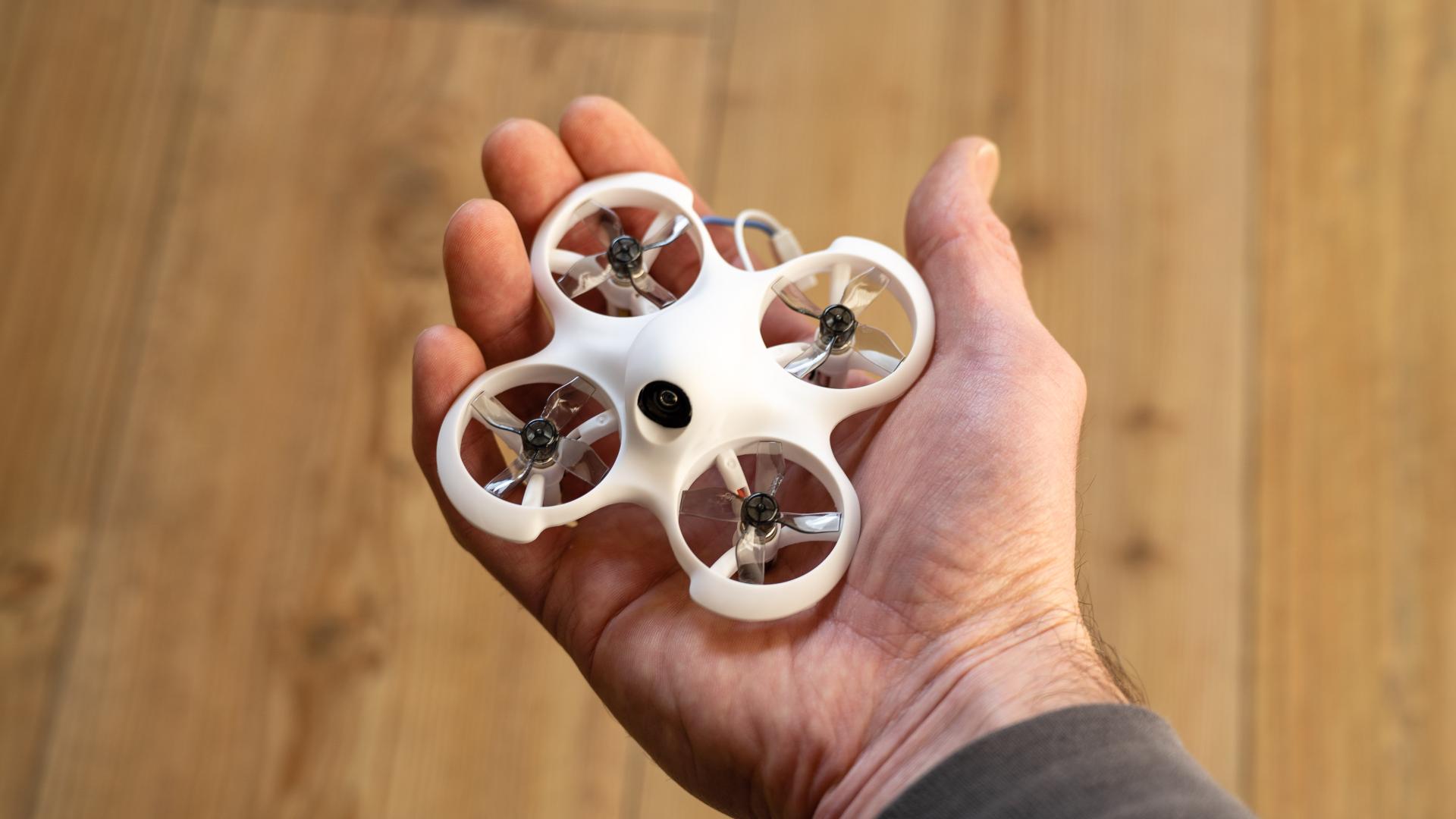
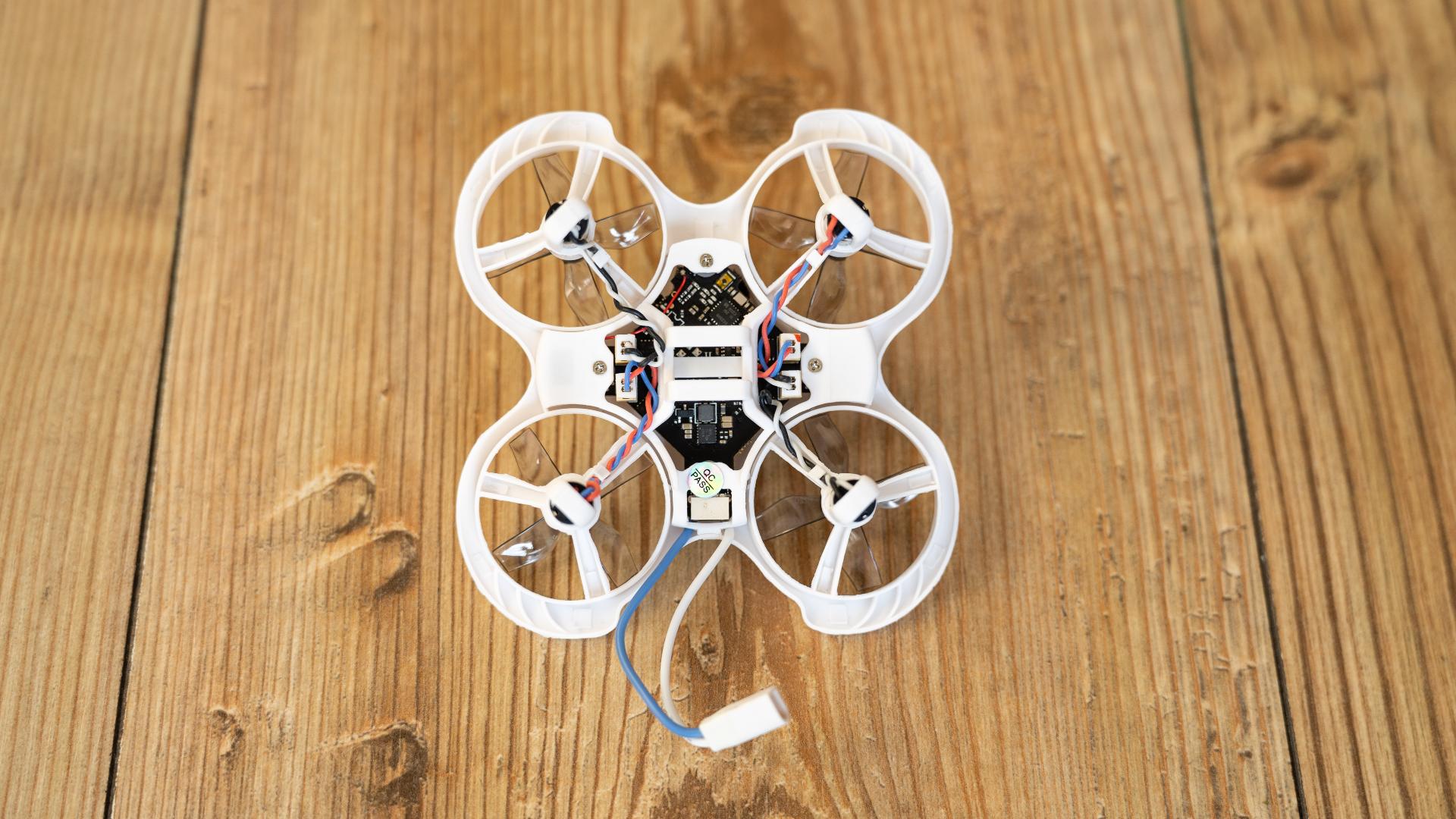
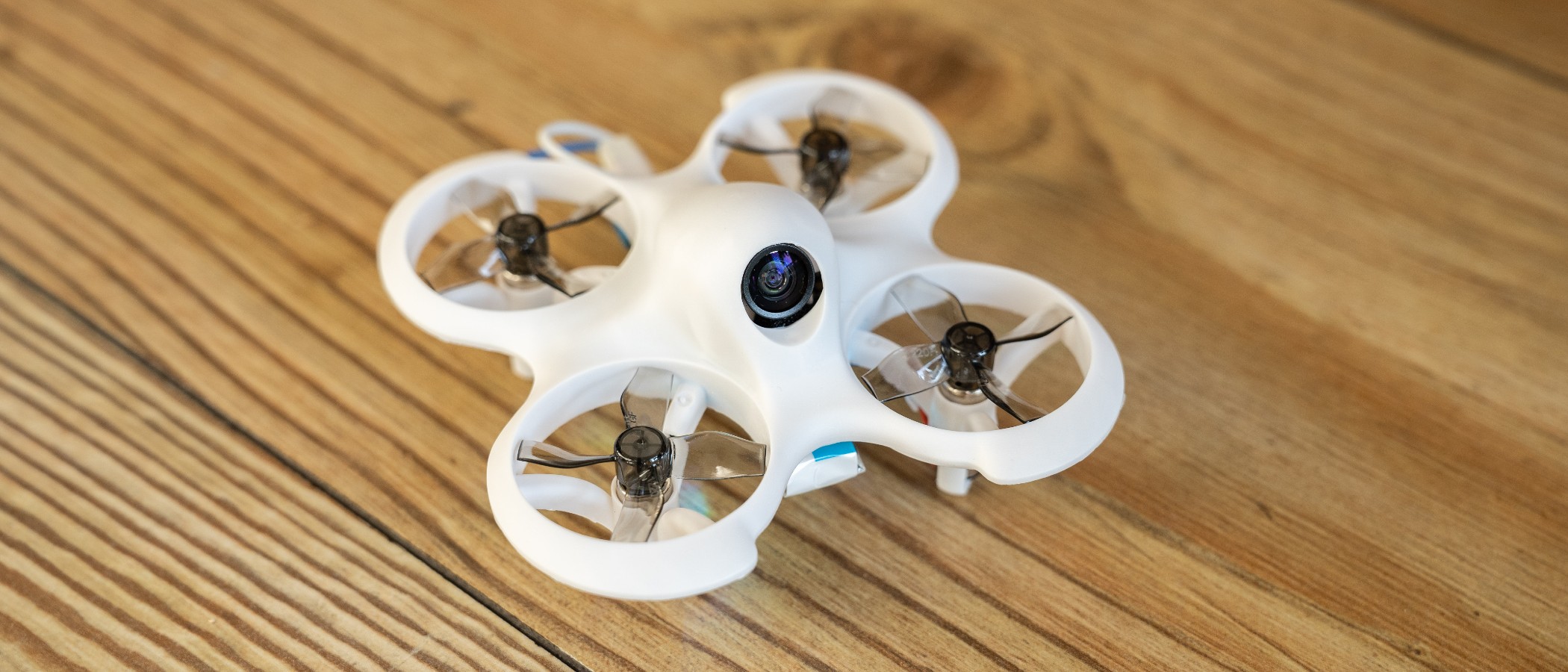
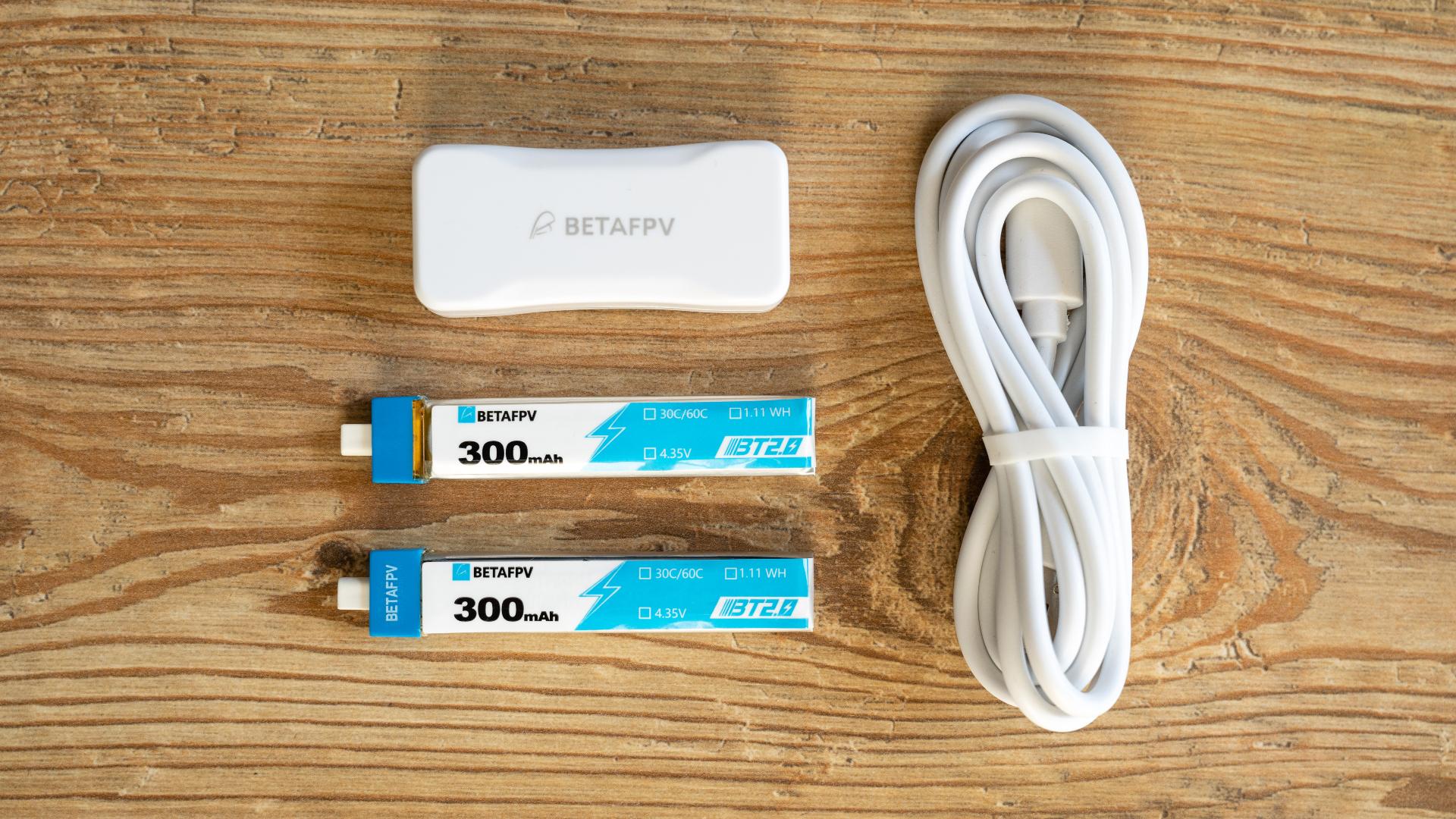
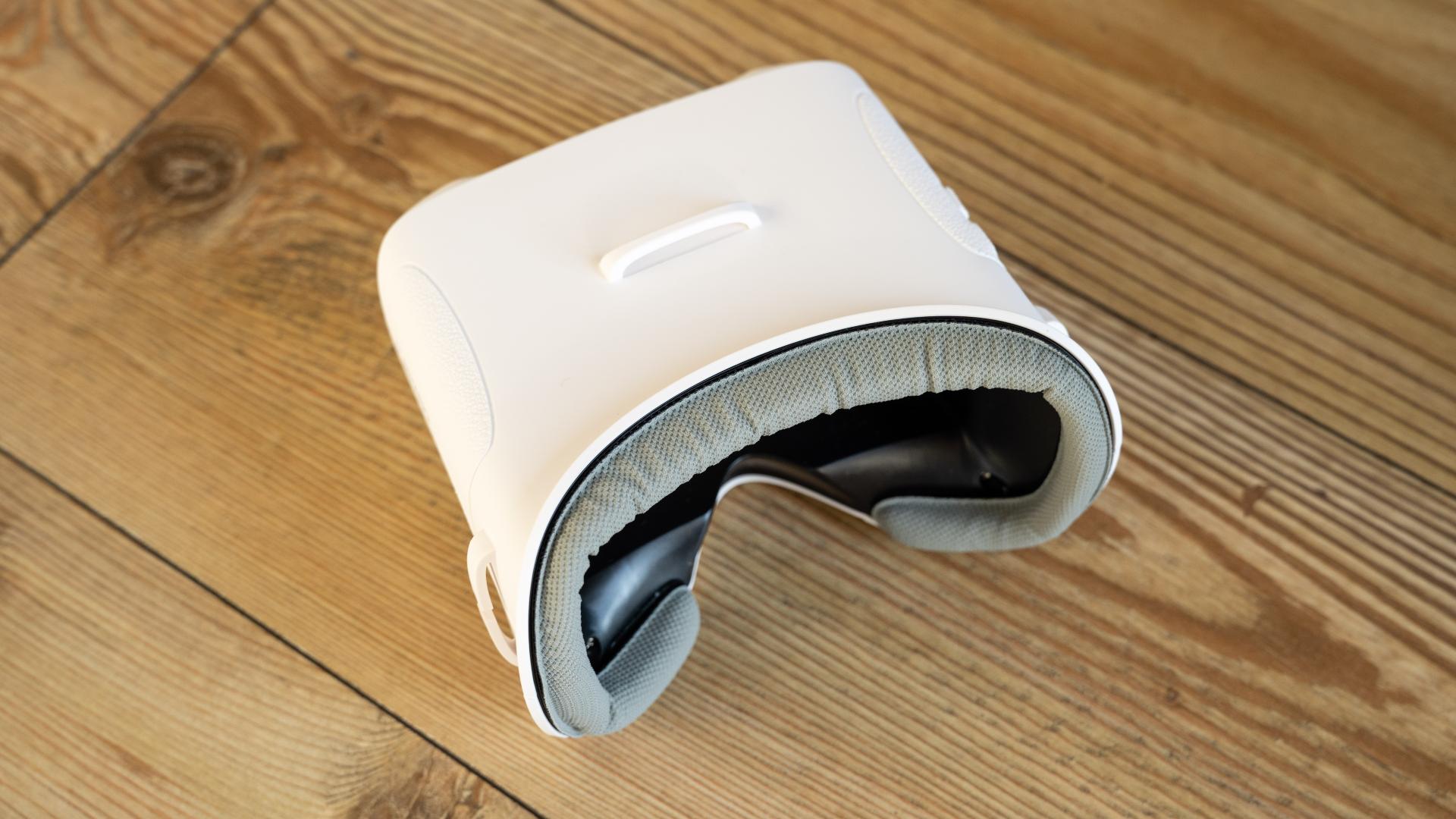
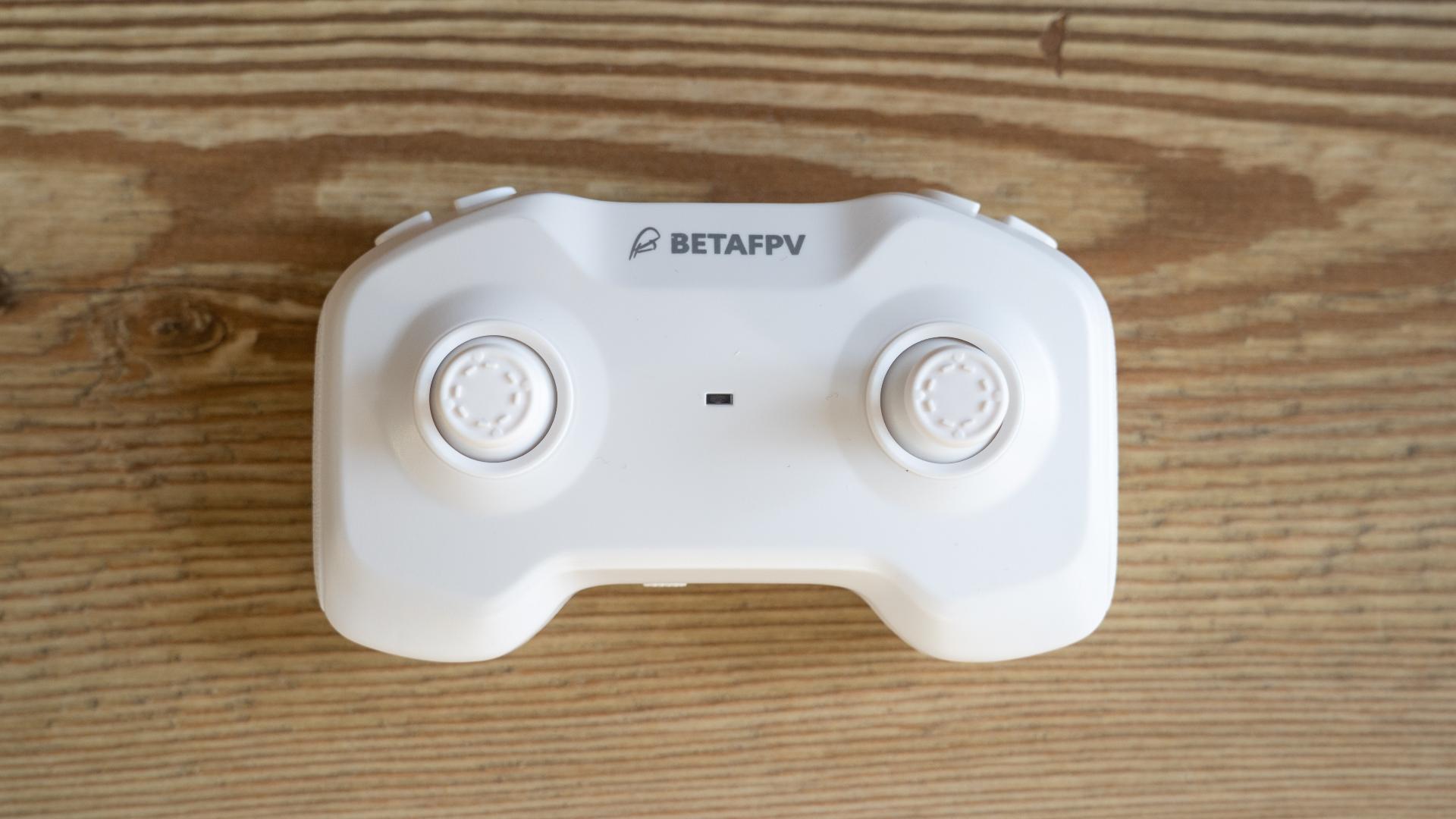
Specifications
Reasons to buy
Reasons to avoid
✅ You're a beginner: This would be a great option if you're a beginner, or if you're buying for children, and it's really easy to fly.
❌ You want to shoot photos or videos: It isn't capable of recording, so photographers or videographers will definitely want to look elsewhere.
🔎 The BetaFPV Cetus Lite FPV Kit is a unique kit for getting started with FPV drone flight for a low cost. However, with just one self-leveling flight mode and two sedate speed modes, you can’t progress your FPV flying skills beyond getting used to goggles so an upgrade would be required fairly soon. ★★★½
Coming in at a low cost and providing a great way for beginners and children to get into FPV, the BetaFPV Cetus Lite FPV Kit is the perfect option. Check out our Cetus Lite FPV Kit review to learn more about this small and lightweight FPV drone kit that offers the perfect amount of power for beginners flying indoors. It's a basic analogue kit, but you get everything you need to get started.
It includes all the necessary components to start, such as analog FPV goggles and batteries. This kit is known for its simplicity and user-friendly design, making it suitable for everyone, including children. It's a budget-friendly way to dive into the world of FPV hassle-free.
The Cetus Lite is unbelievably easy to fly and is suitable for children and beginners who would like to get used to flying a drone while wearing FPV goggles. This drone always remains level, which is part of what makes it so easy to fly. It's not the most exciting FPV drone available, but it has undoubtedly earned an important place in our guide.
The downside, of course, is that you won't be able to level up your flying skills by using the Cetus Lite and for most users, that will make the lifespan of the product rather short. On the upside, you'll also get used to using FPV goggles by flying this drone, so if you're not sure if FPV piloting is for you, this is an inexpensive to discover if FPV drones are for you.
- Read our full Cetus Lite FPV Kit review
Attributes | Notes |
|---|---|
Design | Extremely small and lightweight. |
Functionality | Only one flight mode and two speeds. |
Performance | Incredibly easy to fly. |
Best for 4K video capture
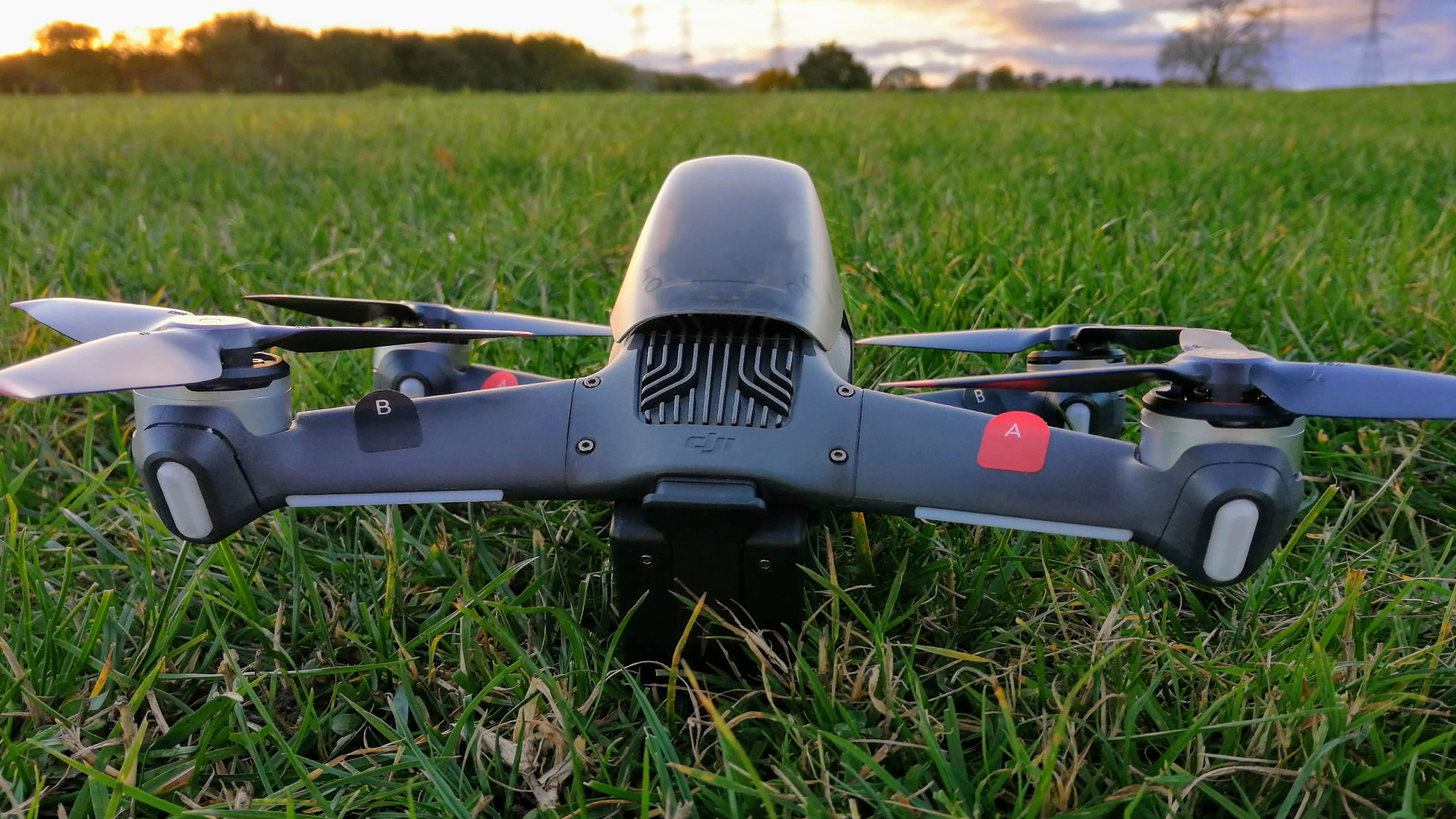
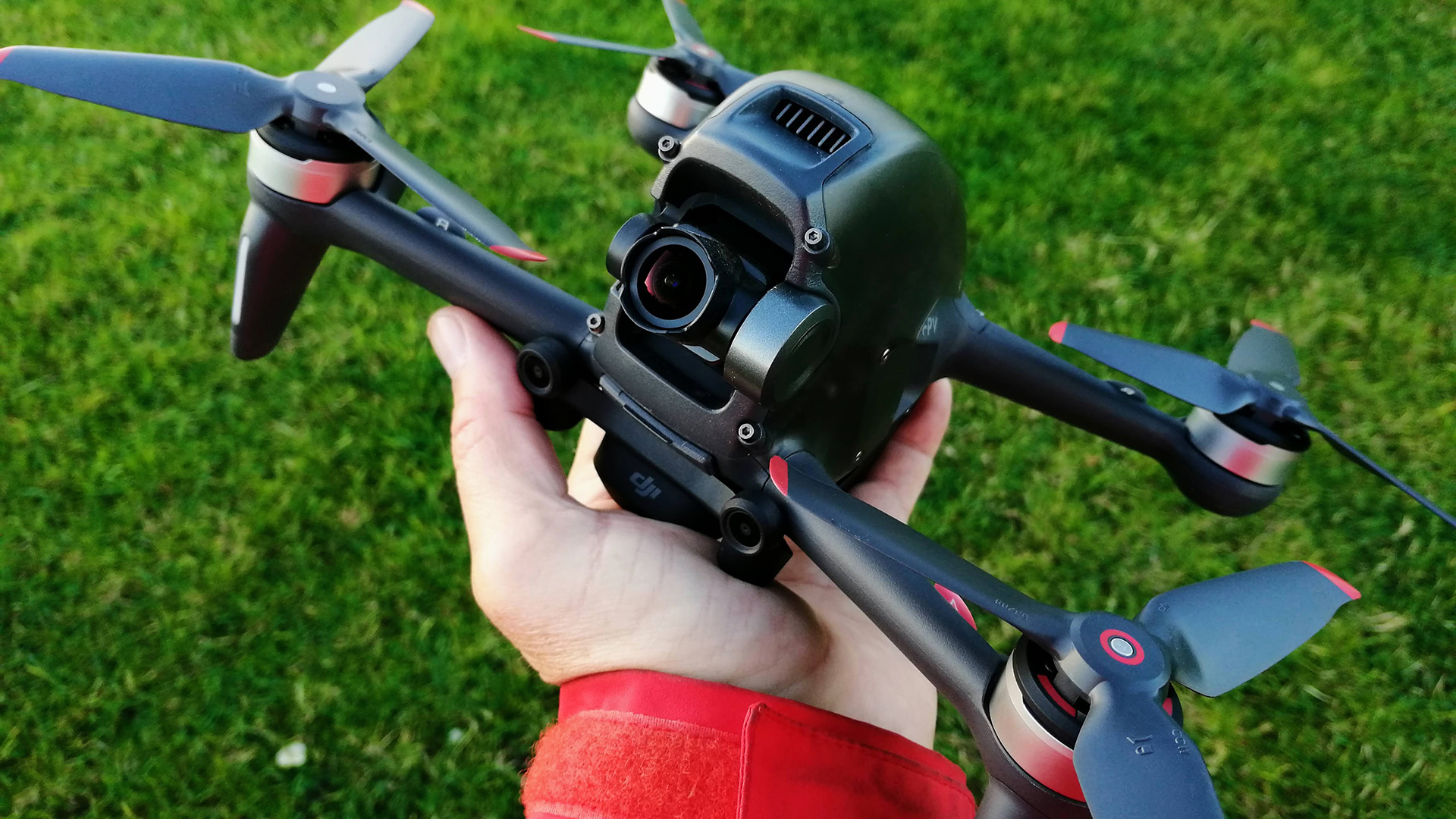
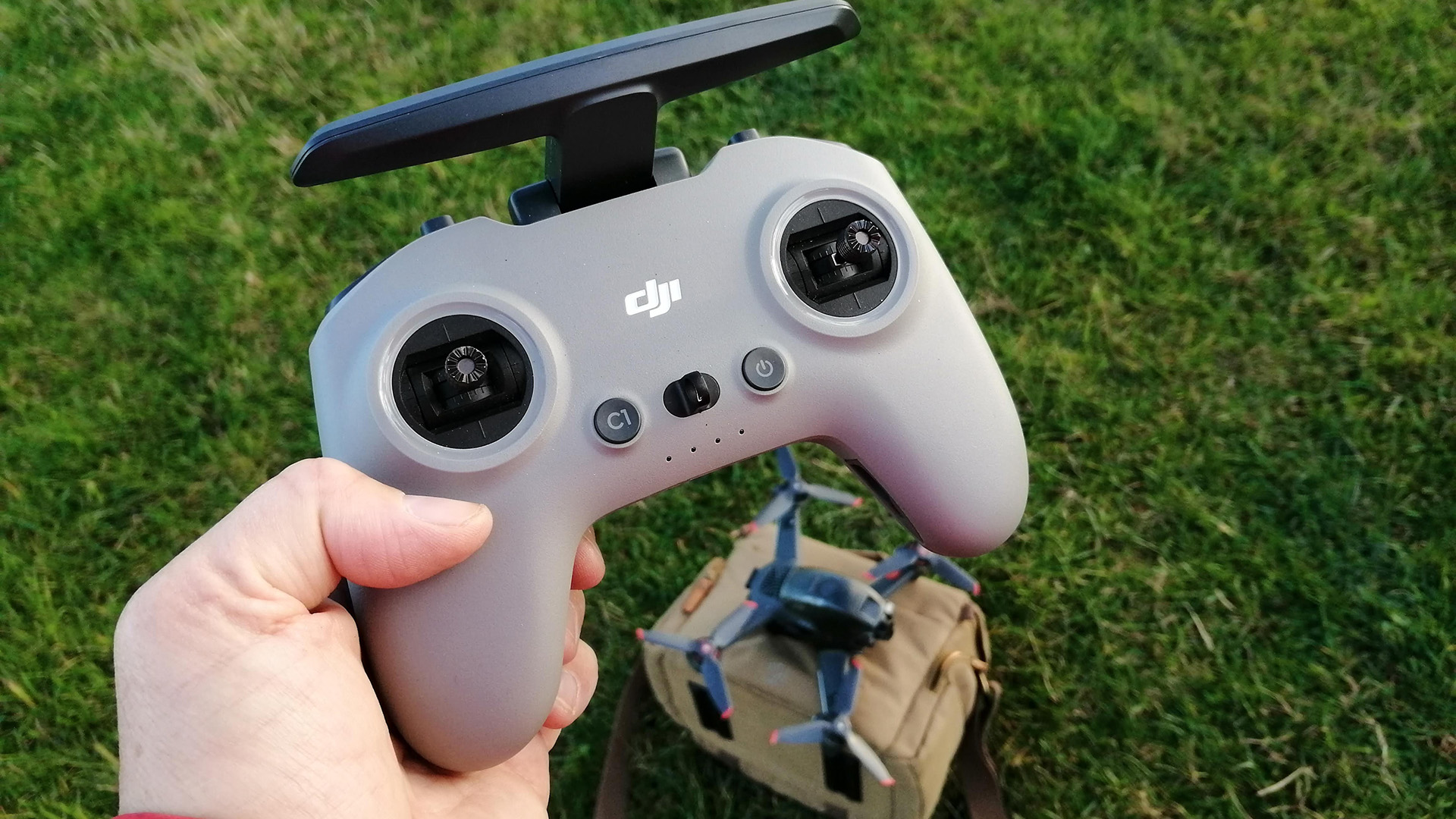
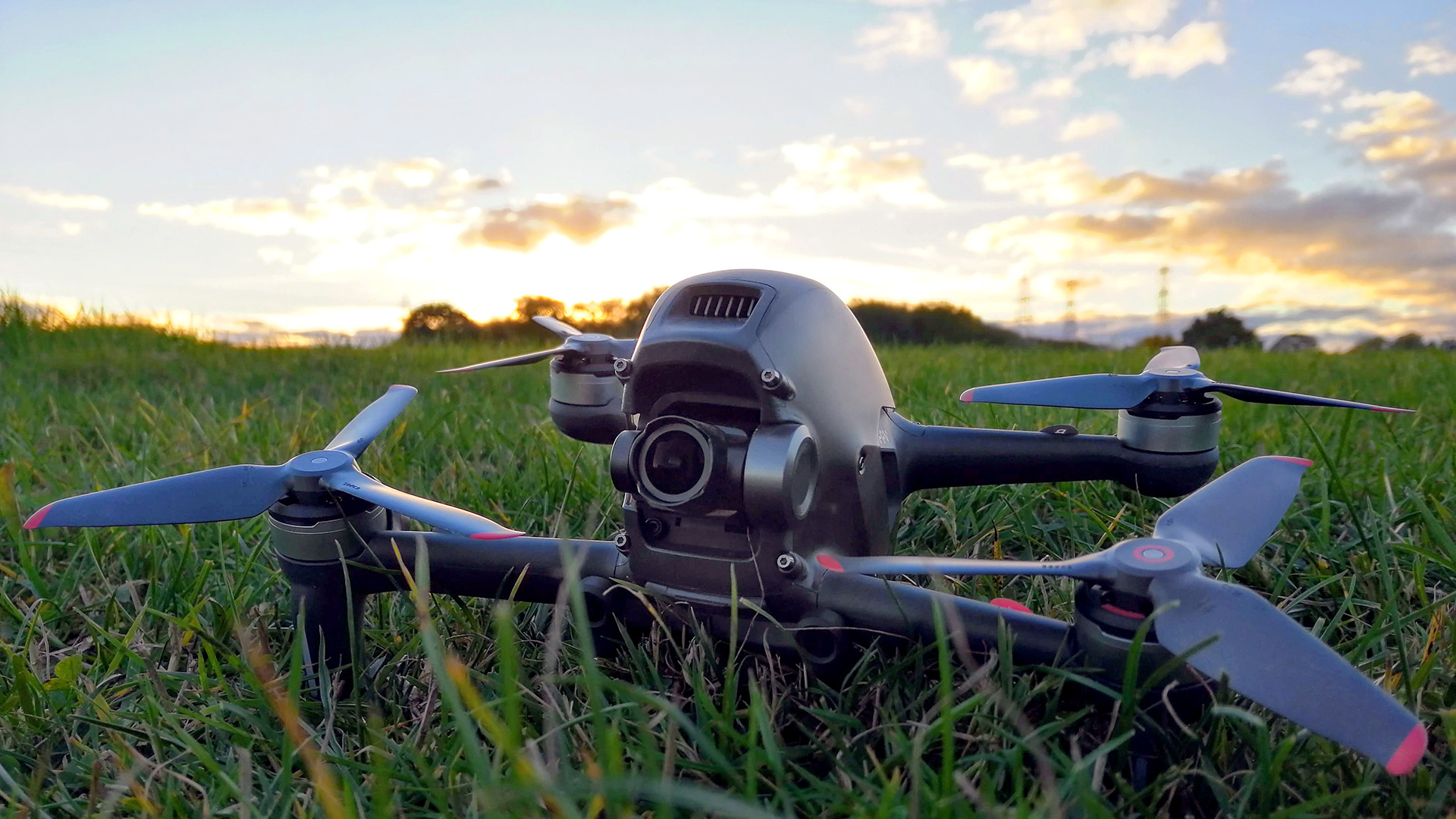
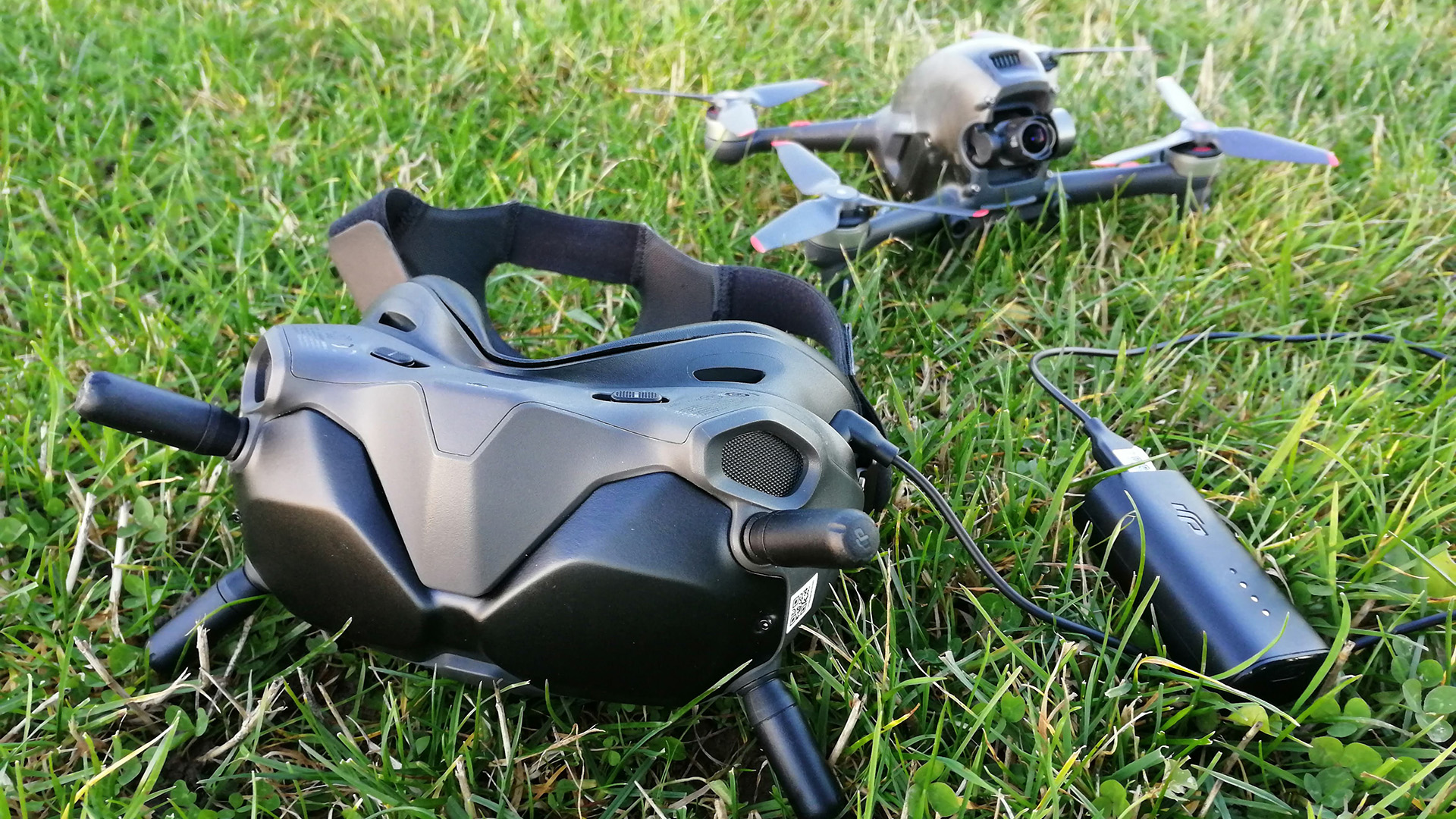
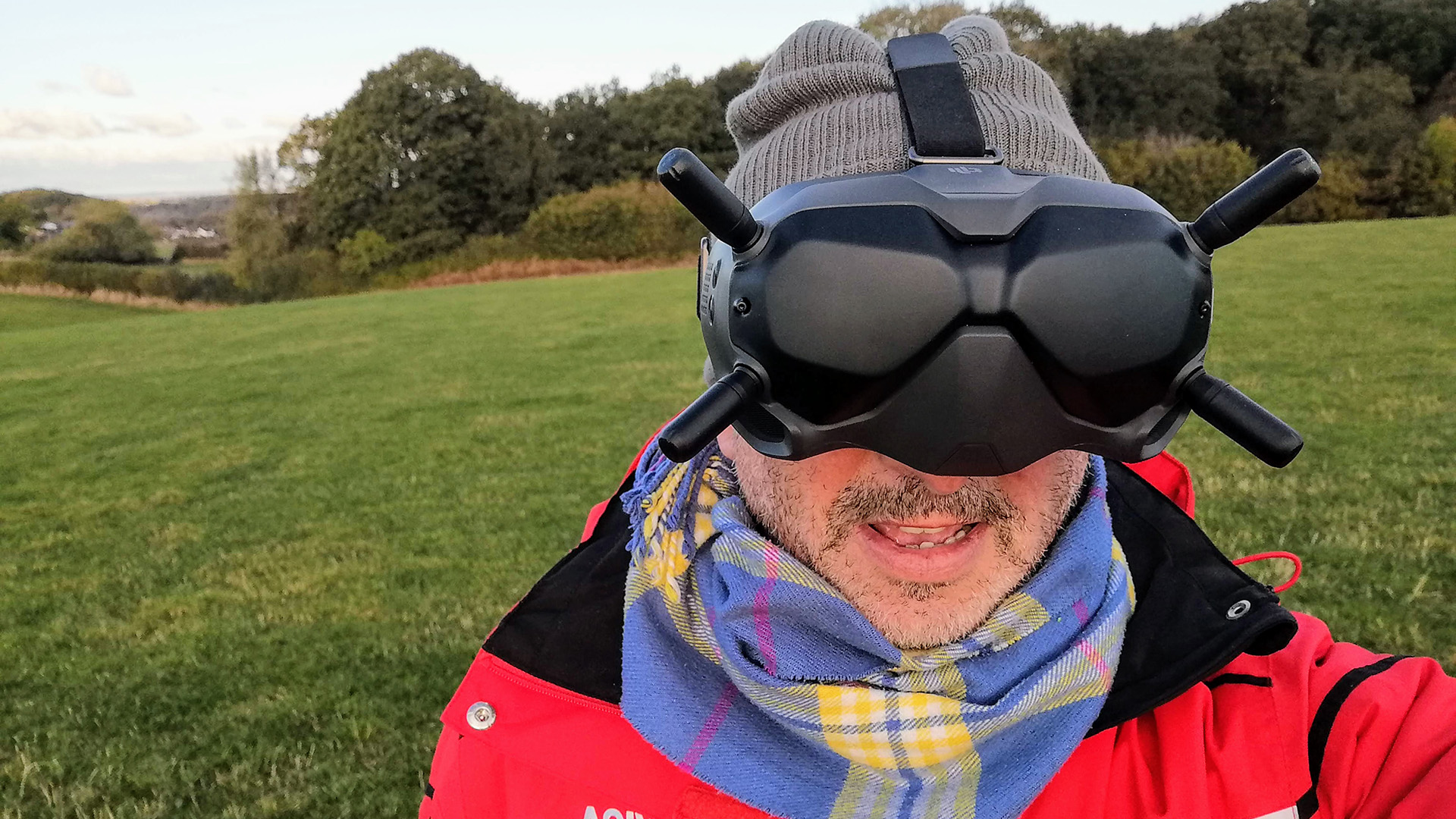
Specifications
Reasons to buy
Reasons to avoid
✅ You're a more experienced FPV pilot: This isn't a drone for beginners, both in terms of experience and budget.
❌ You want something small and lightweight: It weighs around 28oz (794g), which is heavier than many FPV drones.
🔎 For more seasoned flyers, one flight with the DJI FPV will likely have you hooked. Just don't crash it unless you have rather deep pockets. ★★★★
The DJI FPV has been around for a while now and DJI has since released two DJI Avata models, but the FPV is still going strong. The bonus here is that you can pick one up new for an attractively low price and this large and powerful FPV drone, when compared to traditional models, can be flown like an FPV or camera drone depending on the mode you're flying in.
Features include GPS positioning and sensors that slow the drone when obstacles are detected, although it won't bring the drone to a complete stop so caution is always required. It's an impressive drone despite its age and we enjoyed its performance in our DJI FPV review.
The camera provides both the digital FPV video feed as well as the ability to capture immersive footage up to 4K at 60fps. This can be captured in the Standard color profile for straight out-of-camera footage, or in D-Cinelike (RAW) for color grading and incorporating into a professional workflow.
There are three modes to choose from on the DJI FPV: Normal, Sport and Manual. While you're in Sport mode, you can fly up to 60 miles per hour, and in Manual, you can go even faster at an incredible 87 mph. We wouldn't recommend using Manual mode unless you're an expert with plenty of FPV experience, however.
If you're a beginner just getting started with the DJI FPV, Normal mode is the best balanced option to choose from, with the much faster Sport mode more suitable for when you've got to grips flying. But however you choose to fly this drone, it's incredibly powerful and will provide many hours of high-speed aerial fun.
- Read our full DJI FPV review
Attributes | Notes |
|---|---|
Design | Fixed (non-foldable) frame. |
Functionality | Stills and video functionality limited. |
Performance | Fast 87mph in Manual mode. |
Best for learning to fly manual FPV
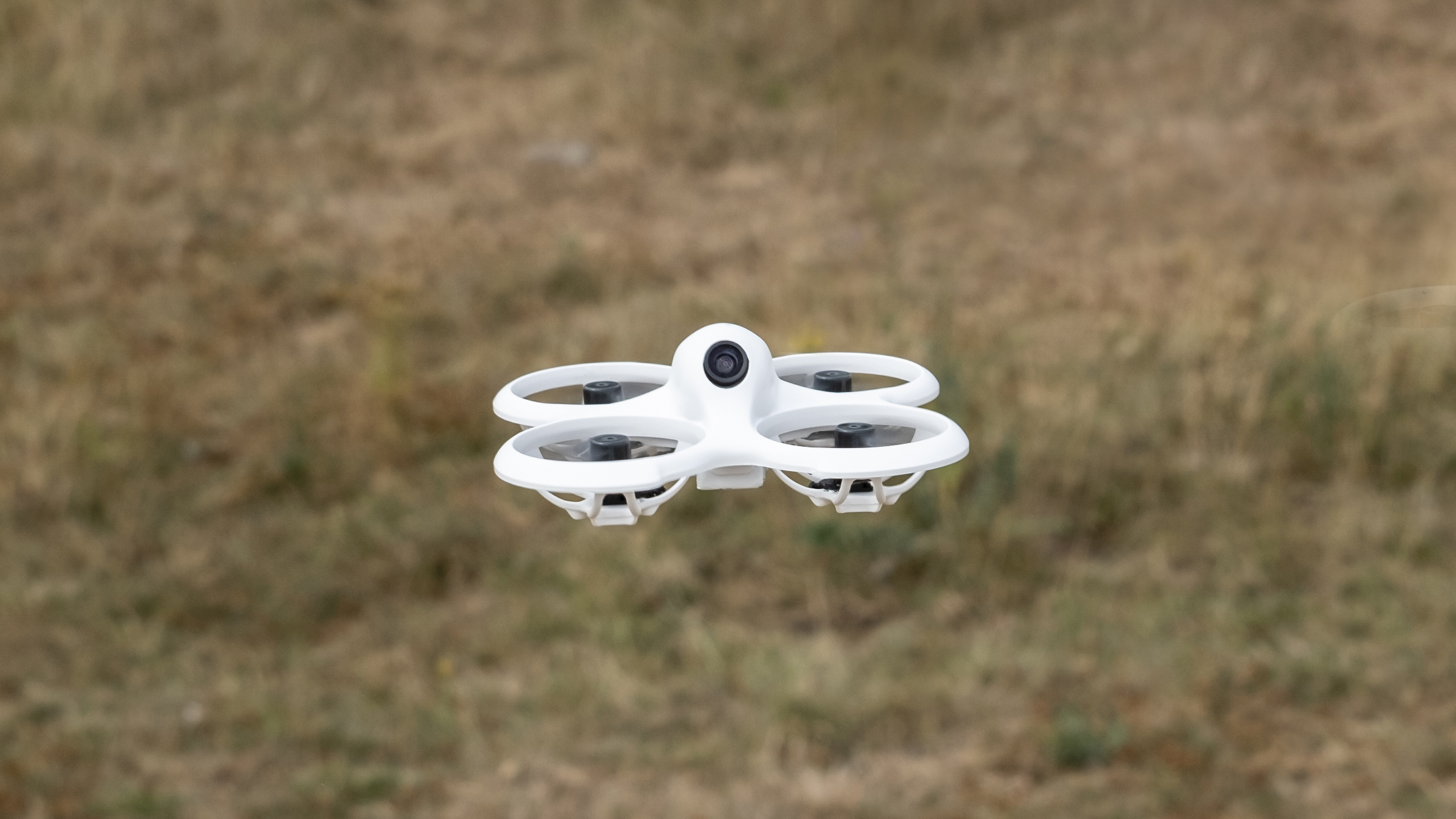

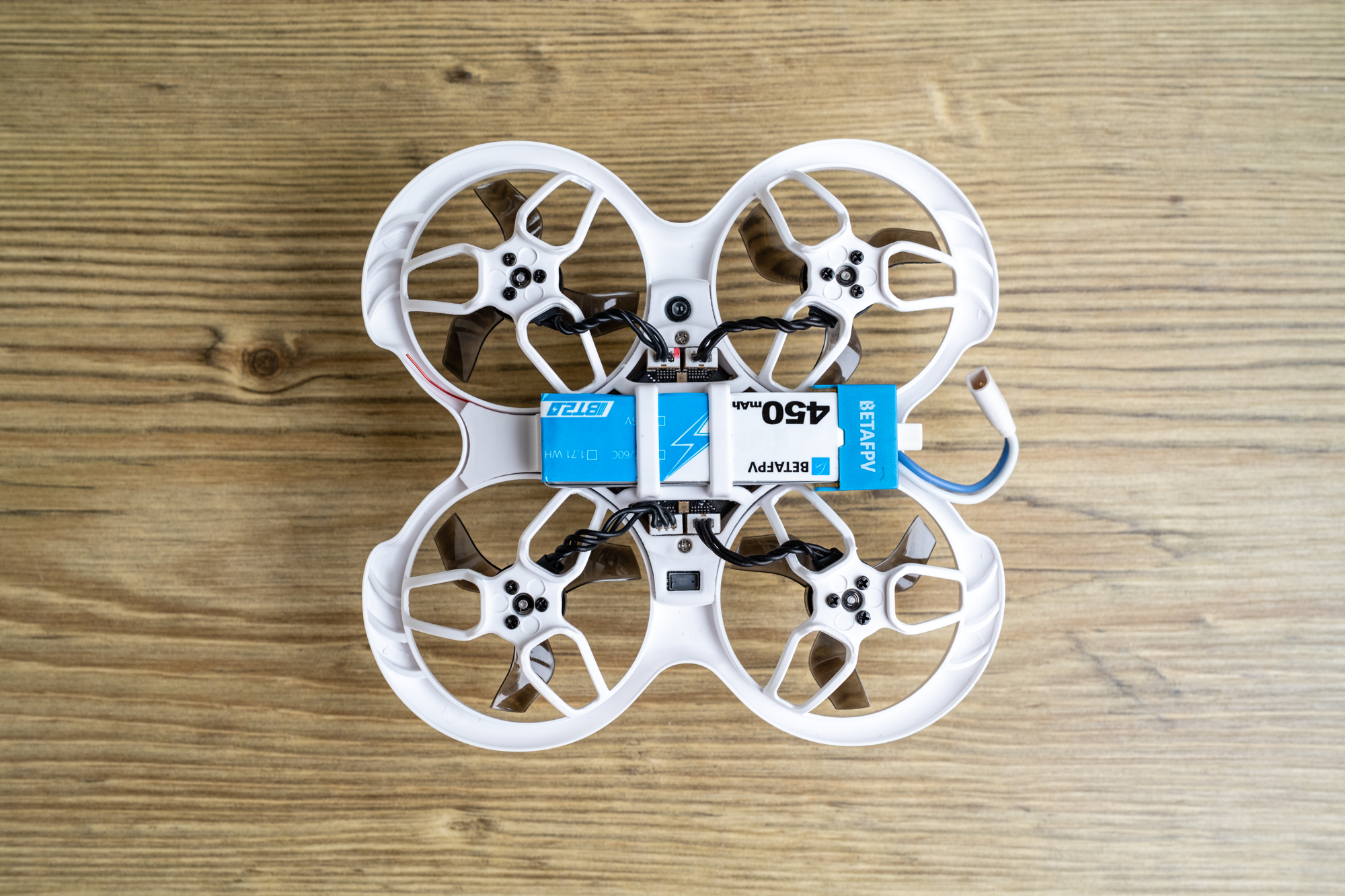
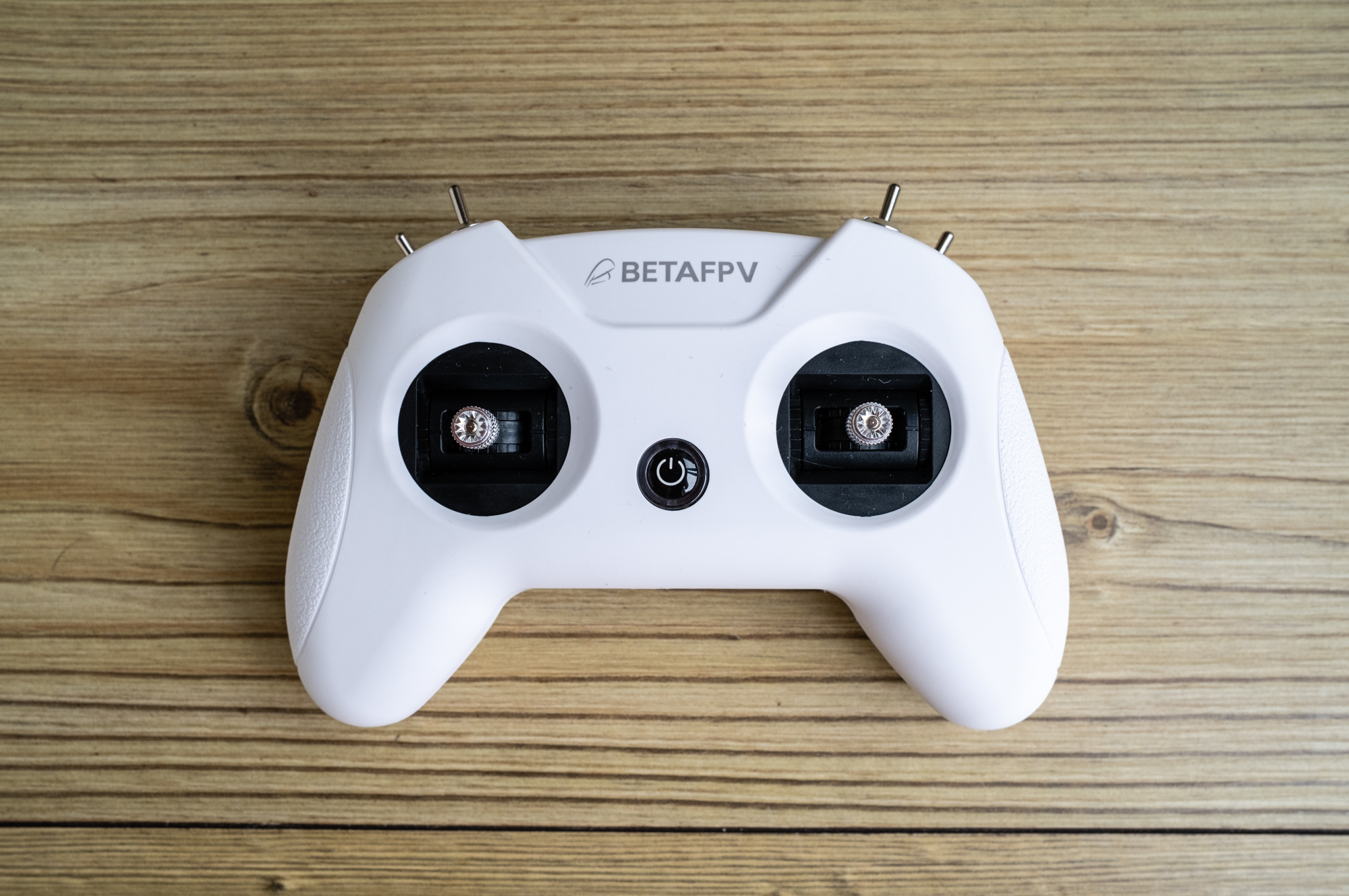
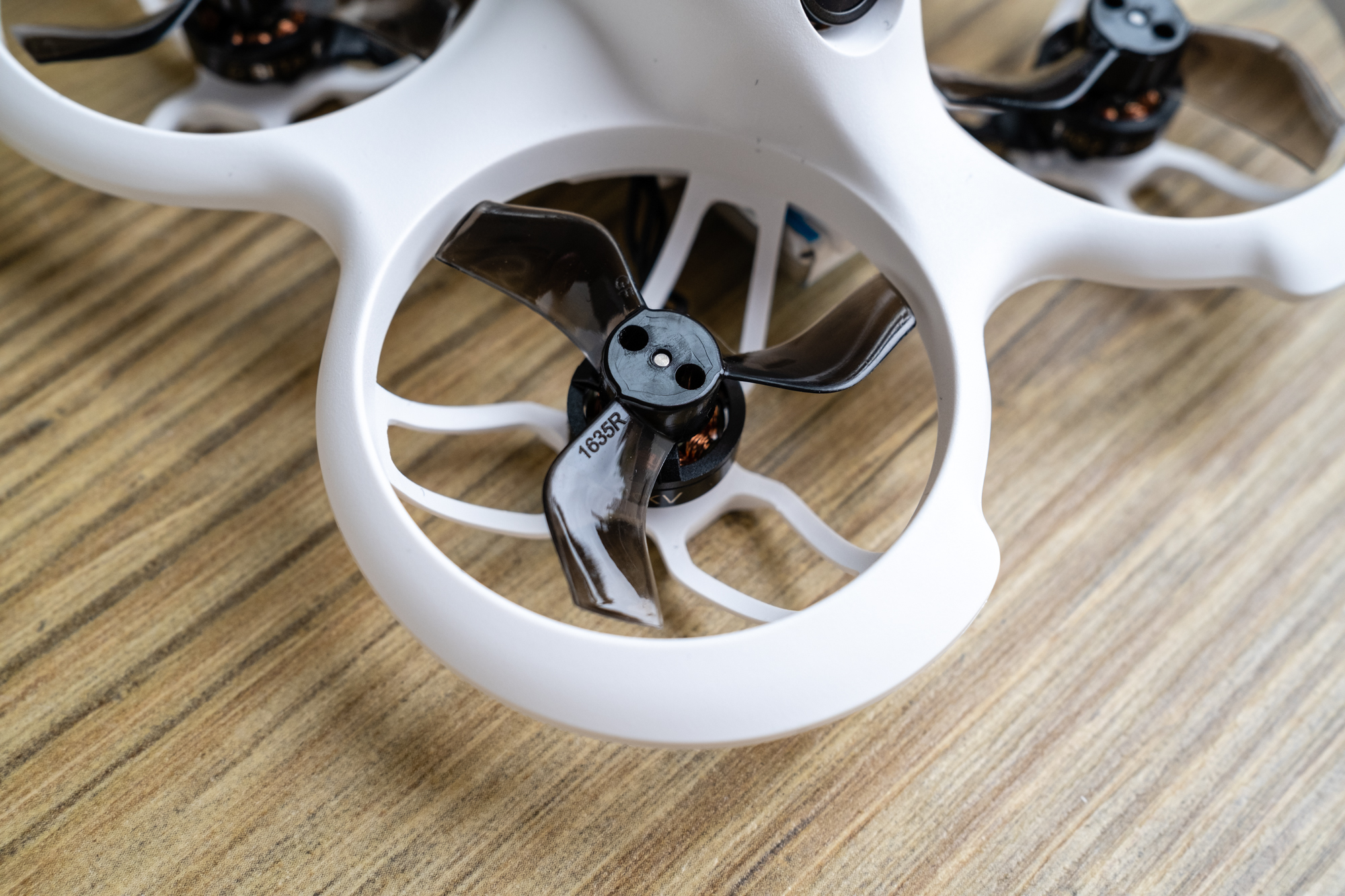
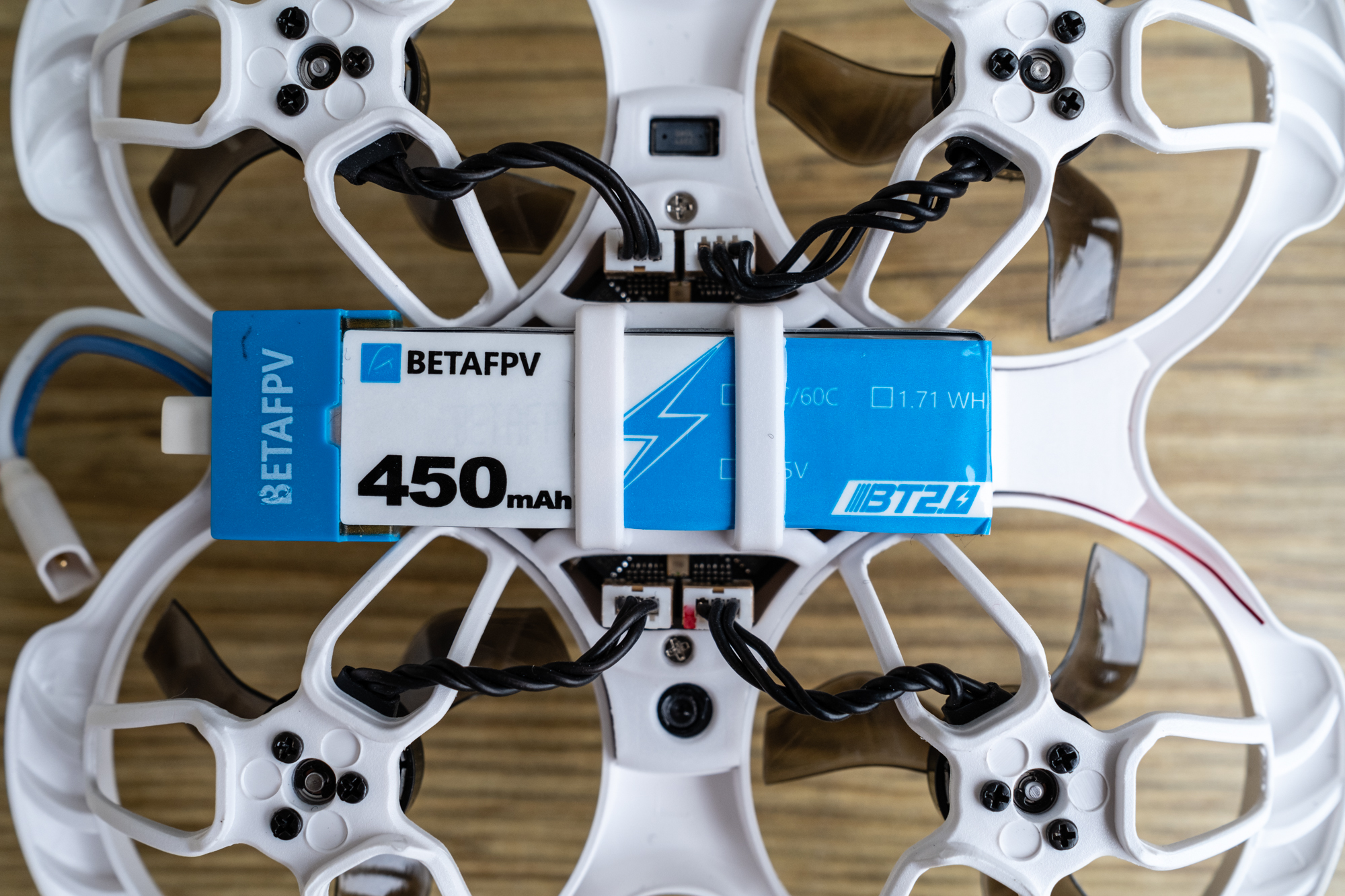
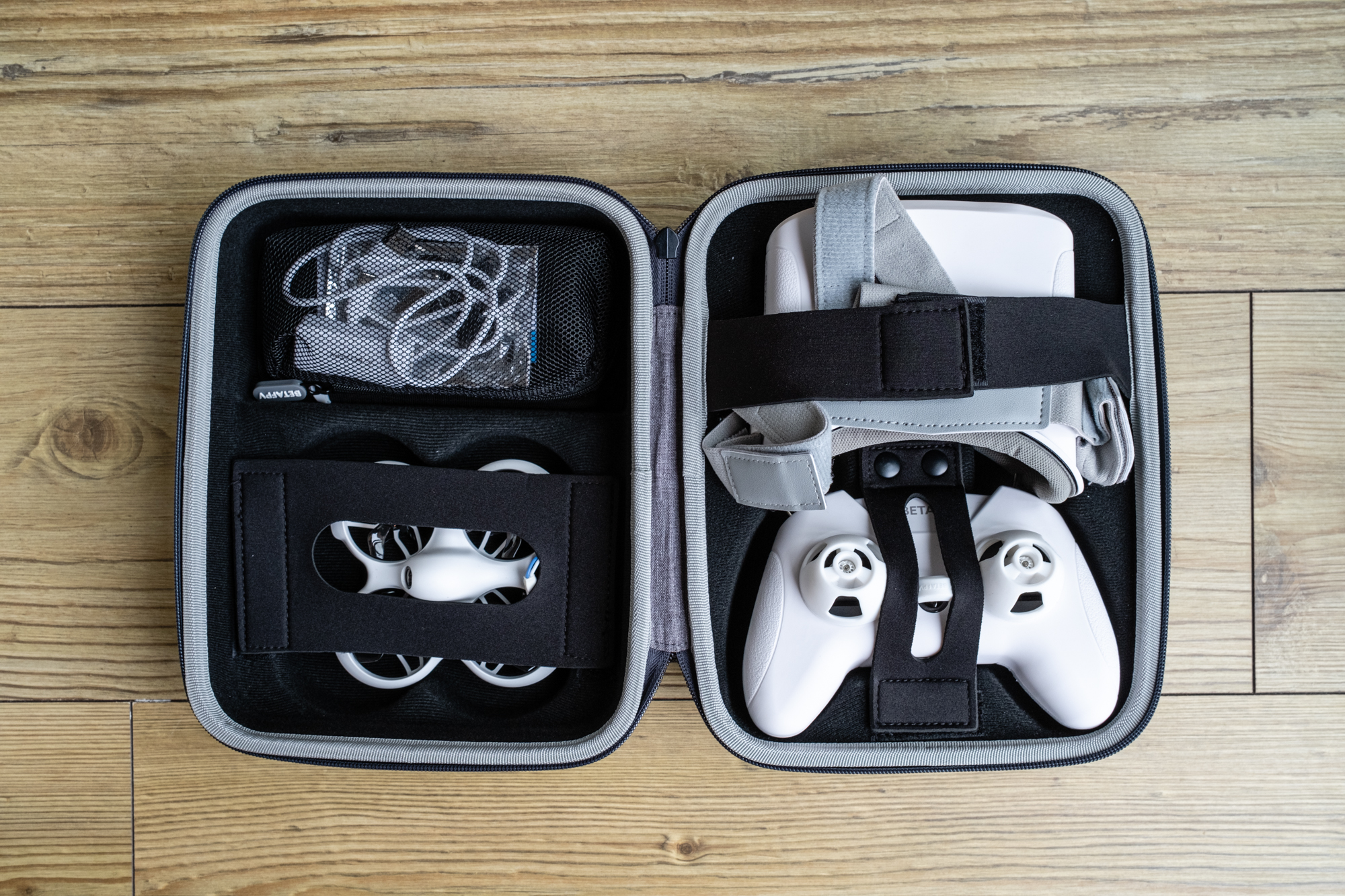
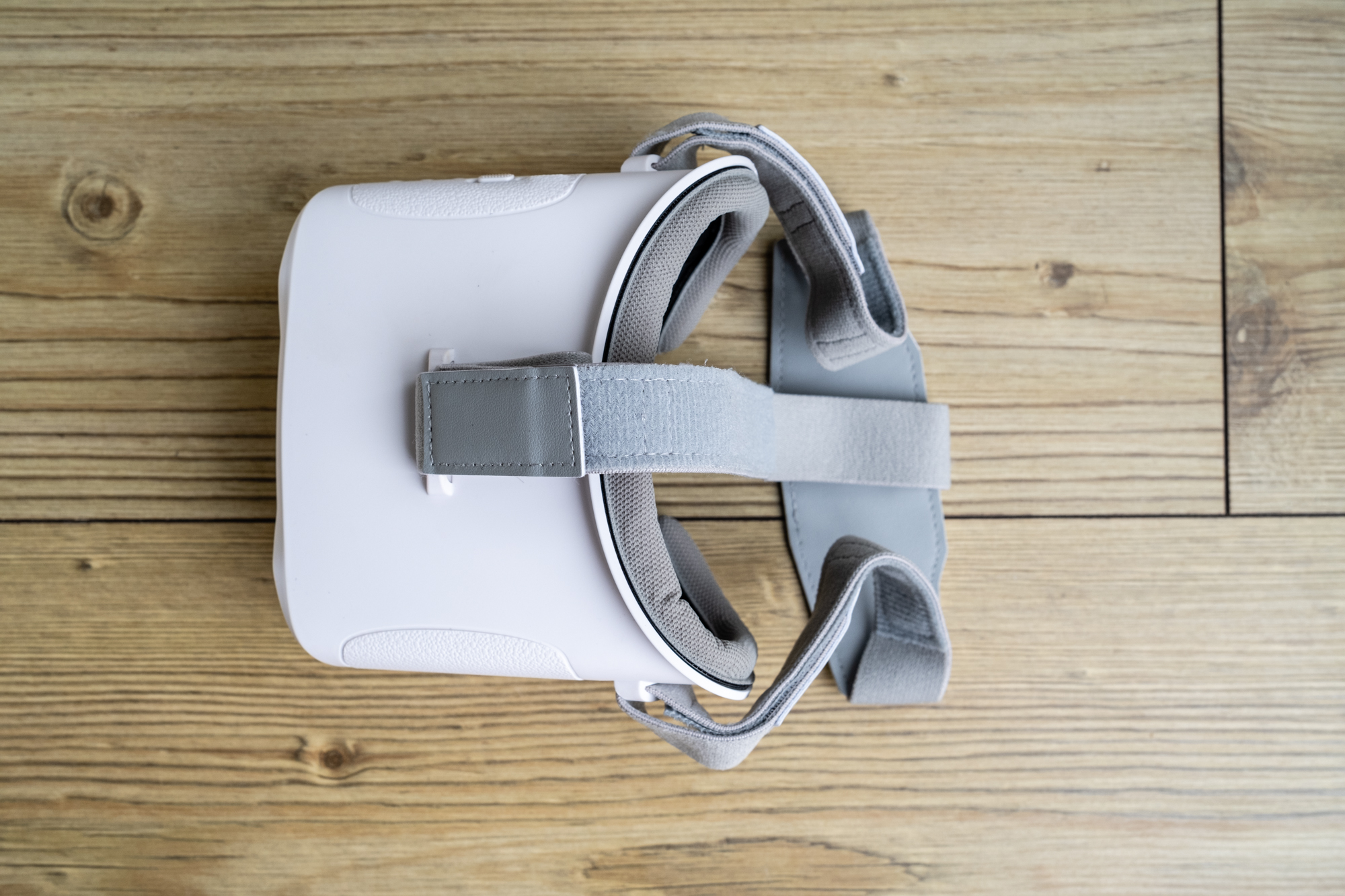
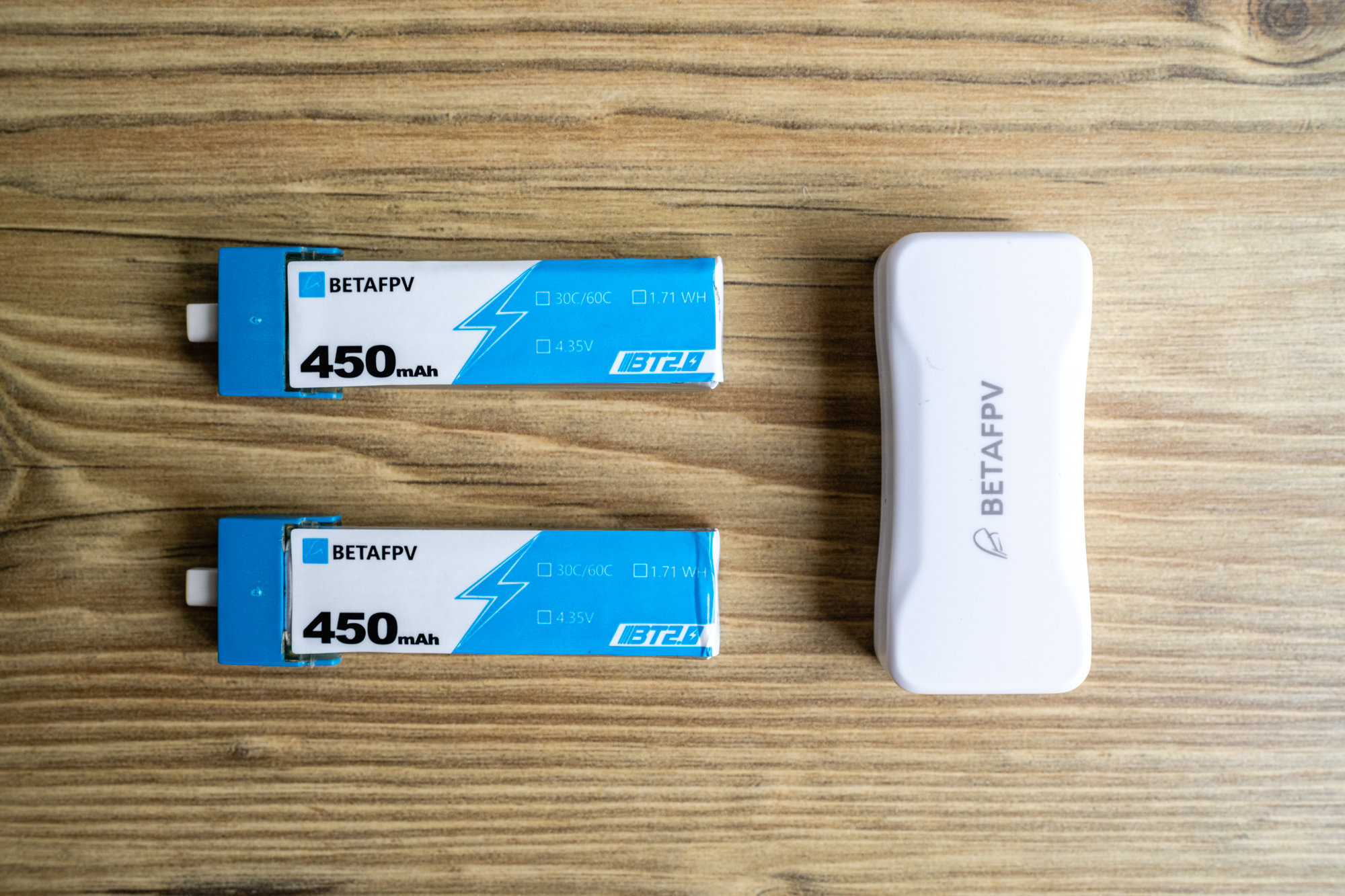
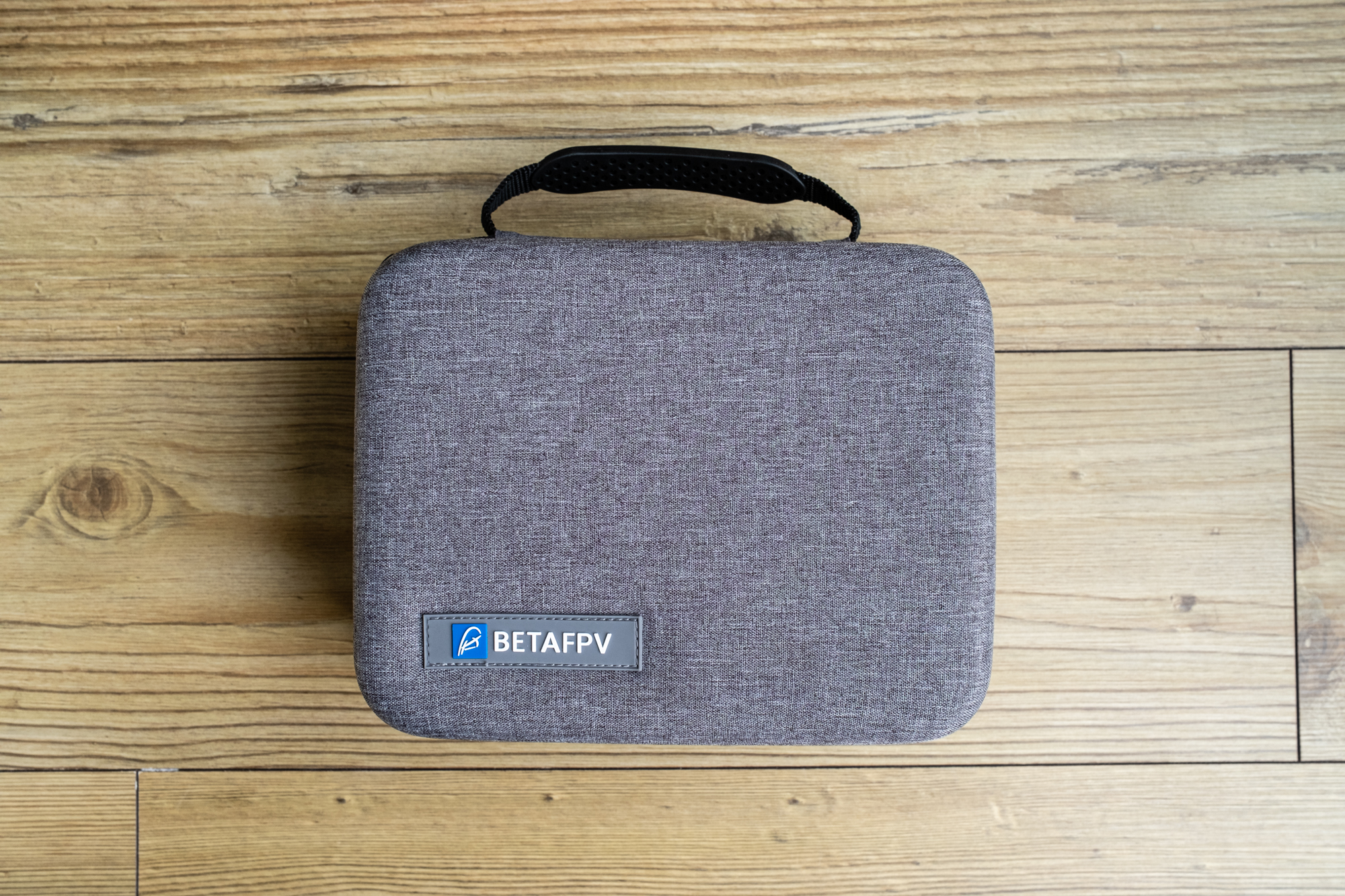
Specifications
Reasons to buy
Reasons to avoid
✅ You're a beginner: If you've never flown a drone before, this could be the perfect option to learn how to.
❌ You want to capture video or stills: This tiny drone is aimed at absolute beginners who are solely focused on learning to fly, so isn't capable of recording photos or video.
🔎 With a low cost and a complete kit with everything you need to get started, the BetaFPV Cetus Pro Kit provides a low-risk entry point to learning how to fly FPV drones when compared to more expensive models. ★★★★
The BetaFPV Cetus Pro Kit is a great option for those looking to take their first steps into FPV and even experienced pilots who would like a small microwhoop for fun. It's not suitable for capturing video, as we explained in our BetaFPV Cetus Pro review, but it is fully geared towards flying and having fun.
The kit comes with everything you need including the drone, FPV goggles, a controller, a carry case, two batteries, a USB charger, a voltage tester and other accessories. Additional batteries can be purchased separately to increase your flight times.
There are also three different speed modes available in three main flight modes: Normal, Sport and Manual. When you're flying in Normal mode, the Cetus Pro makes use of optical flow sensors which help the drone to hold its position and fly over obstacles. It's a good place to start if you're a beginner, and once you get the hang of flying you can switch over to Sport, and then Manual as you become more accustomed to FPV piloting.
Sport mode allows for more control, but it restricts the drone's pitch and roll angle, so it can't be flipped or rolled. When you switch to Manual mode, however, you have complete freedom to enjoy the full potential of the Cetus Pro. Great for experienced pilots, but if you're out of your depth, it's easy to lose control — so don't use it until you're ready!
The Cetus Pro features a tough design that means it's pretty hard to damage, but even if you do you can buy spare parts and it's incredibly easy to fix. Plus, if you crash and the Cetus Pro lands upside down, Turtle Mode allows you to remotely flip the drone remotely and take off again - pretty neat.
The small batteries provide around five minutes of flight time, and although the goggles have a decent 800x480p resolution, it's best to keep the drone relatively close (within an unobstructed range of up to 80m) for a clear video feed.
- Read our full BetaFPV Cetus Pro review
Attributes | Notes |
|---|---|
Design | Built to withstand crashes. |
Functionality | Three flight modes and speeds. |
Performance | Extremely easy to fly. |
Best FPV freestyle drone
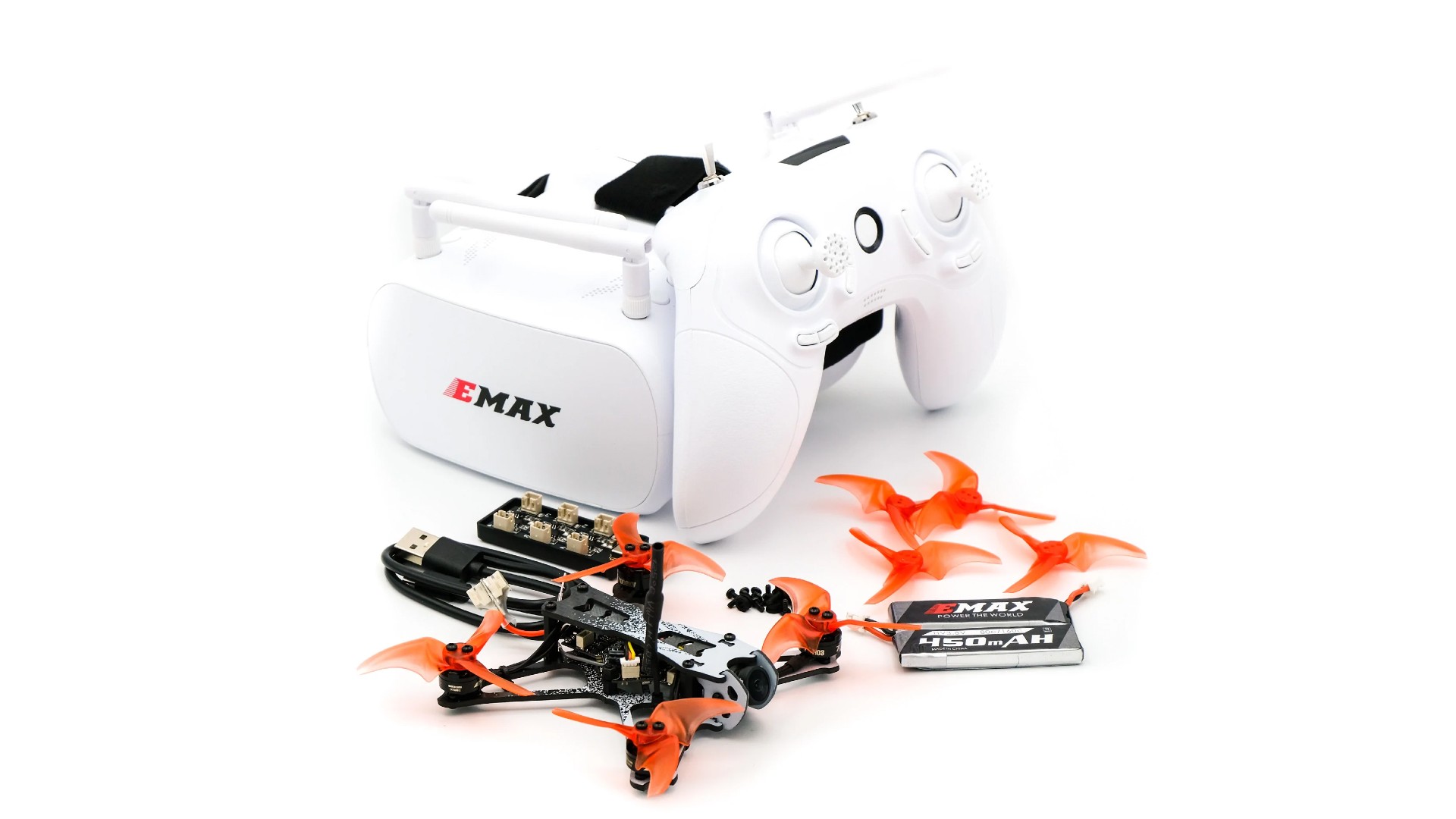
Emax Tinyhawk II Freestyle RTF Kit
Our expert review:
Specifications
Reasons to buy
Reasons to avoid
✅ You want to learn basic freestyle tricks: This drone is focused on freestyle flying, making it a great option for learning some basic tricks.
❌ You want to record video: It can't record video, so keep that in mind if you want to record your freestyle tricks.
🔎 The Emax Tinyhawk II Freestyle RTF Kit provides everything you need to get started in FPV but with a drone focused on freestyle flying and the ability to perform basic tricks. ★★★½
The Emax Tinyhawk II RTF Kit has been superseded by the Tinyhawk III Plus Freestyle, but it's still available for sale and the kit comes in at a great price. The Tinyhawk II is a great option for beginners because it's not too powerful but it does have freestyle credentials, making it beginner-friendly, and the kit comes with everything you need to start flying.
We particularly like that the Emax Tinyhawk II RTF Kit comes with a gaming-style controller which means, if you've ever played a video game, you'll be instantly familiar with how it feels in your hands. It might be a step away from the traditional FPV controller design, but it's a great place to start.
With three flight modes available to help you go from FPV beginner to experienced pilot, The Tinyhawk II is a fun freestyle beginner FPV drone that won't overwhelm you. Air, Angle and the exciting Manual/Acro modes are available to help you grow in this exciting hobby.
Despite its small size, you can purchase 3D printed camera mounts for the Insta360 Go/Go 2, and the drone can fly with these small cameras attached, although the flight times and agility are reduced due to the additional weight. The goggles feature a lower resolution of 480x320p compared to the 800x480p of most of the other analog goggles included in RTF kits in this guide.
Attributes | Notes |
|---|---|
Design | Small and lightweight. |
Functionality | Three flight modes. |
Performance | Lower goggle resolution than other kits in this guide. |
Best FPV Drones Frequently Asked Questions
Video and stills photography is complicated enough but add to that the skill and knowledge required to pilot a flying device that does this makes things even more difficult. We've answered some of your frequently asked questions regarding the best first-person view drones.
What is the best FPV drone?
The DJI Avata 2 is the best FPV drone you can buy right now because it is easy to use, boasts excellent video quality and it can be controlled in multiple ways.
How much does a decent FPV drone cost?
Prices for a good FPV drone range between $140 and $850, depending on the make and model you choose.
Are FPV drones better than traditional drones?
Depending on how you like to pilot, yes. If getting an immersive piloting view while wearing goggles is important to you (such as for perfecting cinematic video or racing drones) then an FPV drone may be a better buy.
What should my first FPV drone be?
For absolute beginners buying their first ever FPV drone we'd recommend the BetaFPV Cetus X. It's a powerful micro whoop kit that ships with everything you need to get started (including goggles).
What is an FPV drone?
An FPV drone is a first-person view drone. It's usually operated using a screen or virtual reality goggles, instead of looking directly at the drone. Traditionally, FPV drones required pilots to assemble them by purchasing individual components and doing some soldering. However, a growing trend is the availability of ready-to-fly (RTF) and bind-and-fly (BNF) kits that come pre-assembled. With these kits, you simply need to charge the batteries or bind the drone with the FPV goggles and controller before taking flight. These kits make FPV flying more accessible, especially for those who may not be very tech-savvy.
How we test FPV drones
FPV drones are typically tested over several days in different locations and environments to test flight performance, flight features, overall handling and the image quality and reliability of the FPV video feed to the goggles. FPV drones typically don’t have built-in cameras for video capture, although some models do capture high-quality video so this is always tested when available.
Drones are flown in Acro/Manual mode to test the connection between the aircraft and the controller, latency between the two, the accuracy of the controls and flight performance in general. And if the drones offer any kind of beginner flight modes with basic safety features, these are tested in an indoor environment due to reduced power and to test the sensitivity of the controls.
The testing we conduct here at Space.com is compliant with local aviation laws and restrictions so all flights are safe and legal. Drone laws vary from region to region, so you must check local laws to ensure that you’re following the guidelines for your country before embarking on your first drone flights.
Recent updates
February 28: We've updated the intro and the strap to accurately reflect the models in this guide, we've linked reviews to models where possible and updated the quick list so it's easier to read.
Join our Space Forums to keep talking space on the latest missions, night sky and more! And if you have a news tip, correction or comment, let us know at: community@space.com.
Get the Space.com Newsletter
Breaking space news, the latest updates on rocket launches, skywatching events and more!
James is an award-winning freelance landscape and portrait photographer, as well as a highly experienced photography journalist working with some of the best photography magazines and websites with a worldwide audience. He’s also the author of The Digital Darkroom: The Definitive Guide to Photo Editing. www.jamesaphoto.co.uk
- Chris McMullenContributing Writer
- Kimberley LaneContributing writer
